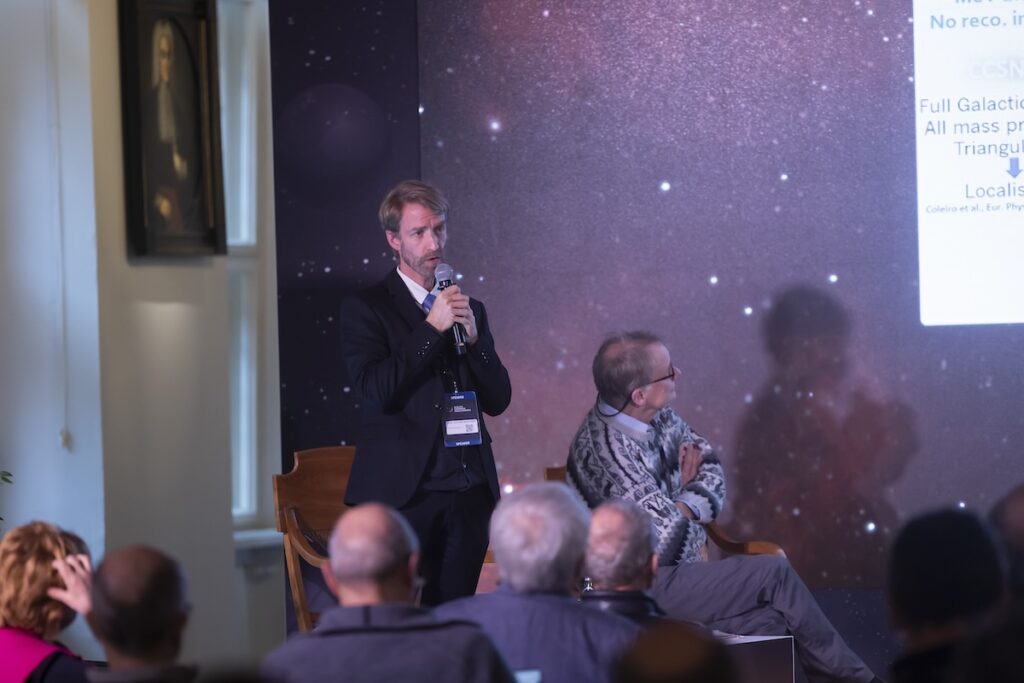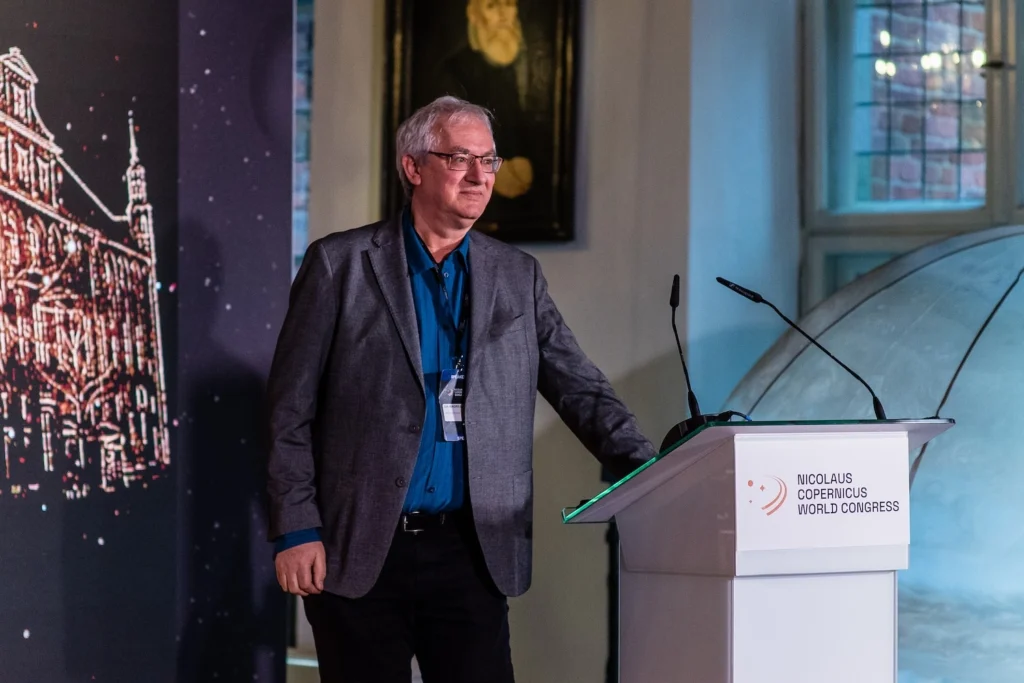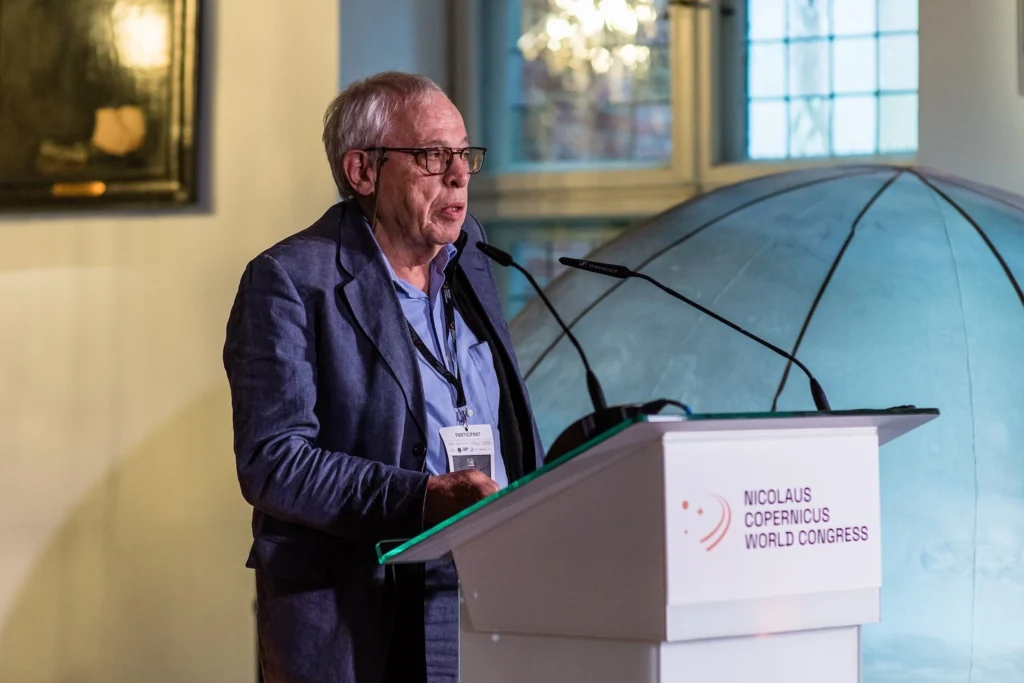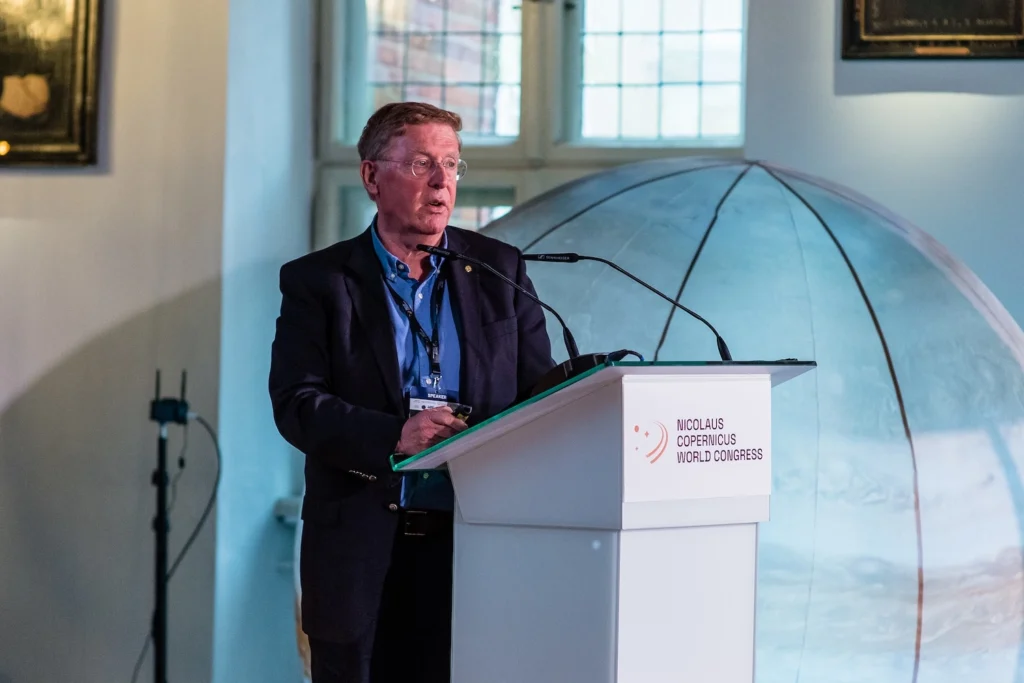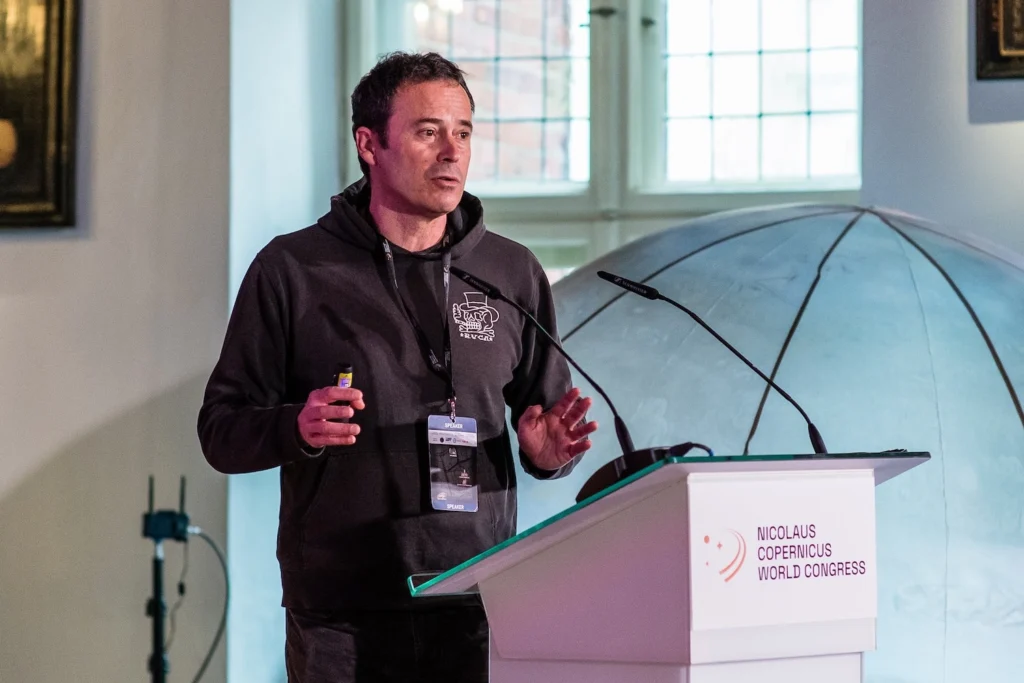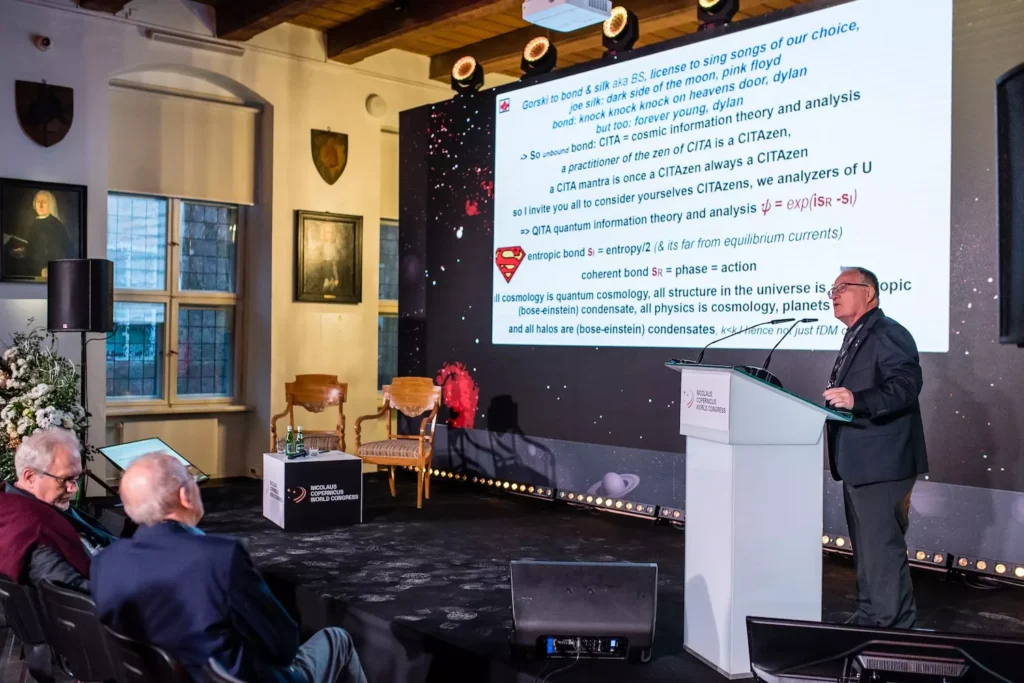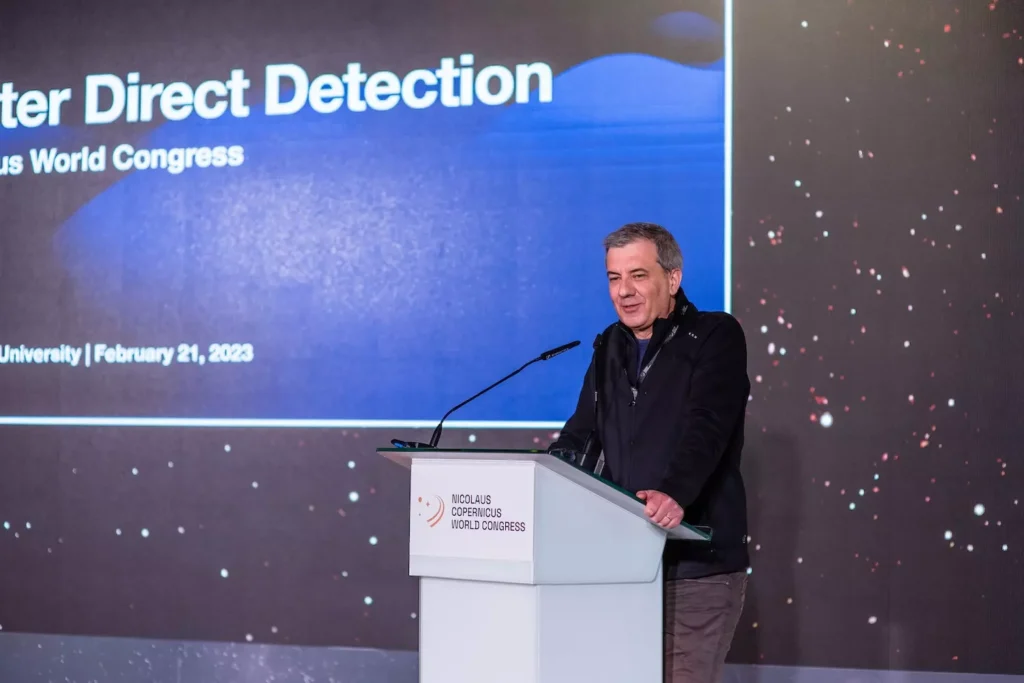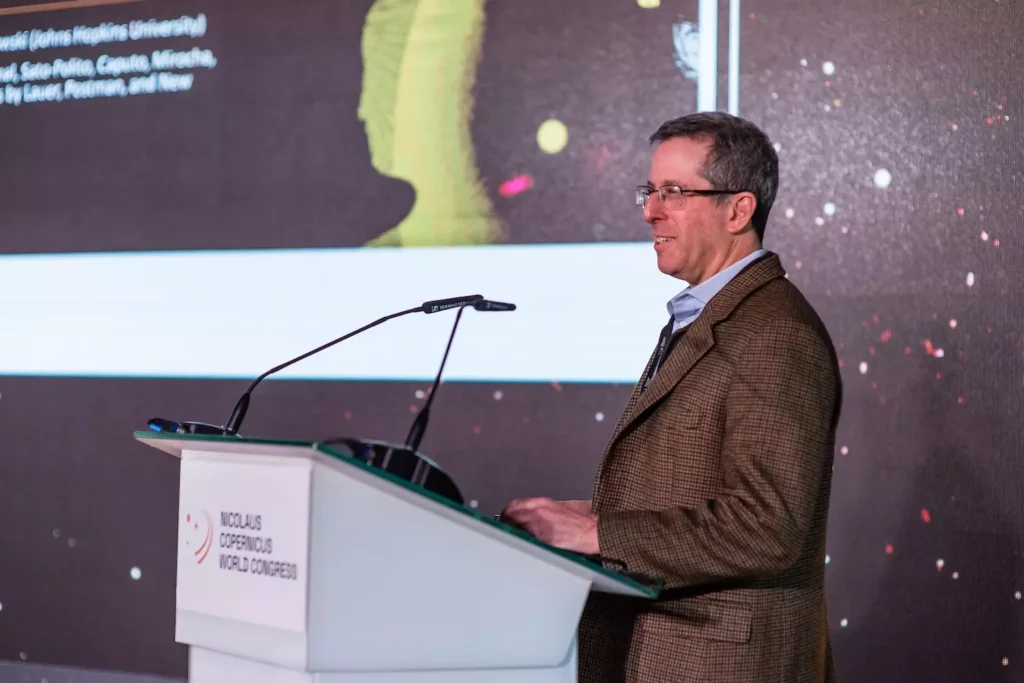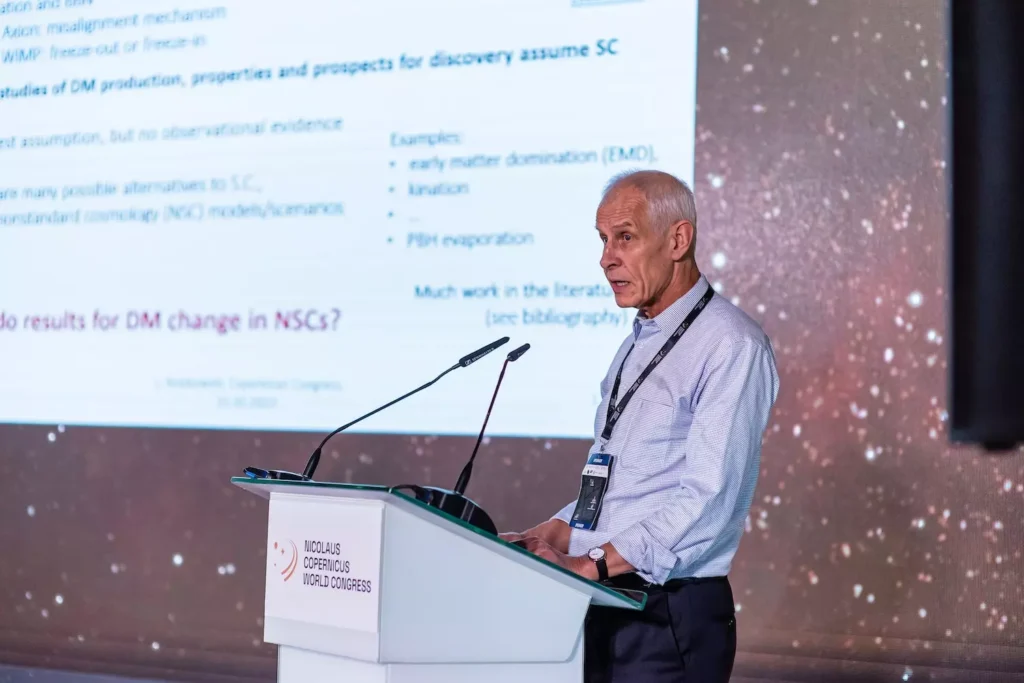Dies Natalis Copernici
Inaugural Lecture by Nobel Prize Laureates
organized jointly with the Regional Museum of the City of Toruń
Prof. P. James E. Peebles
Prof. Michel G. É. Mayor
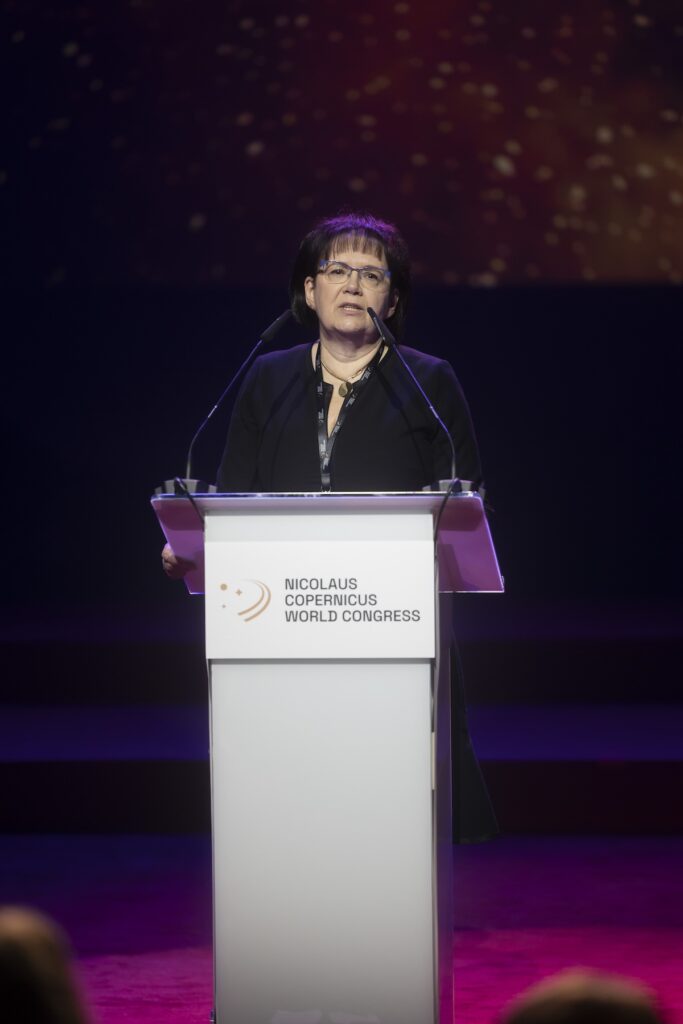
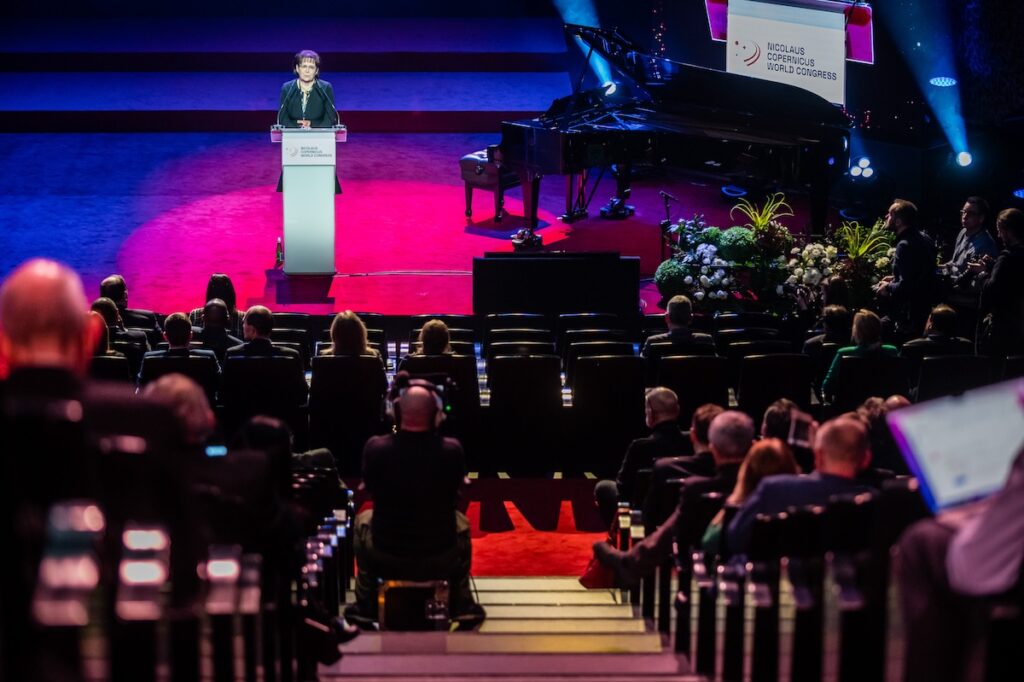
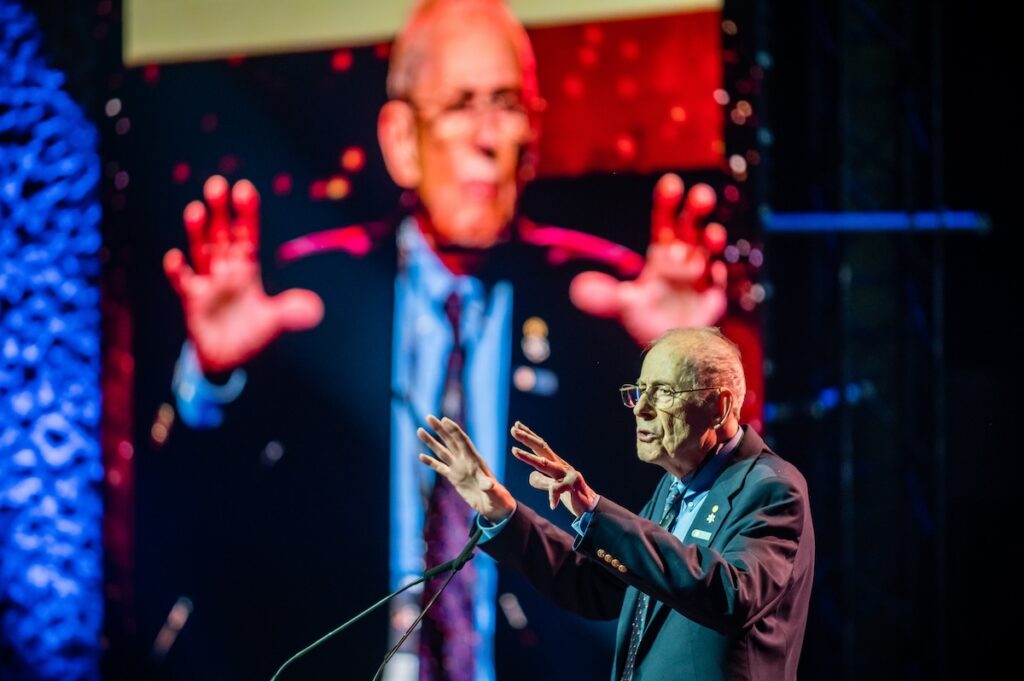
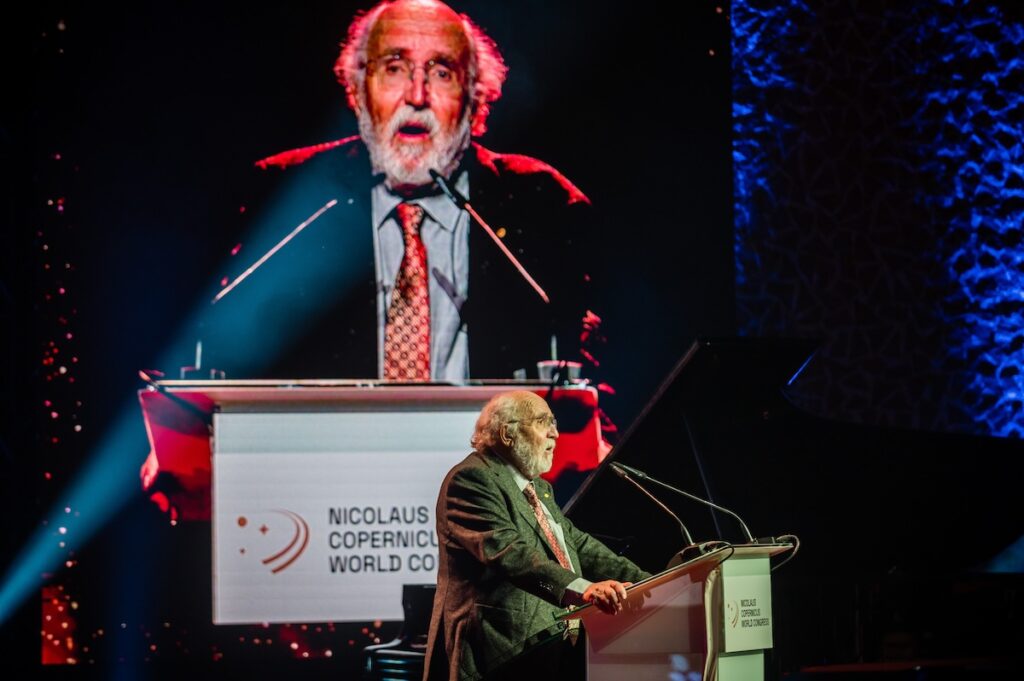
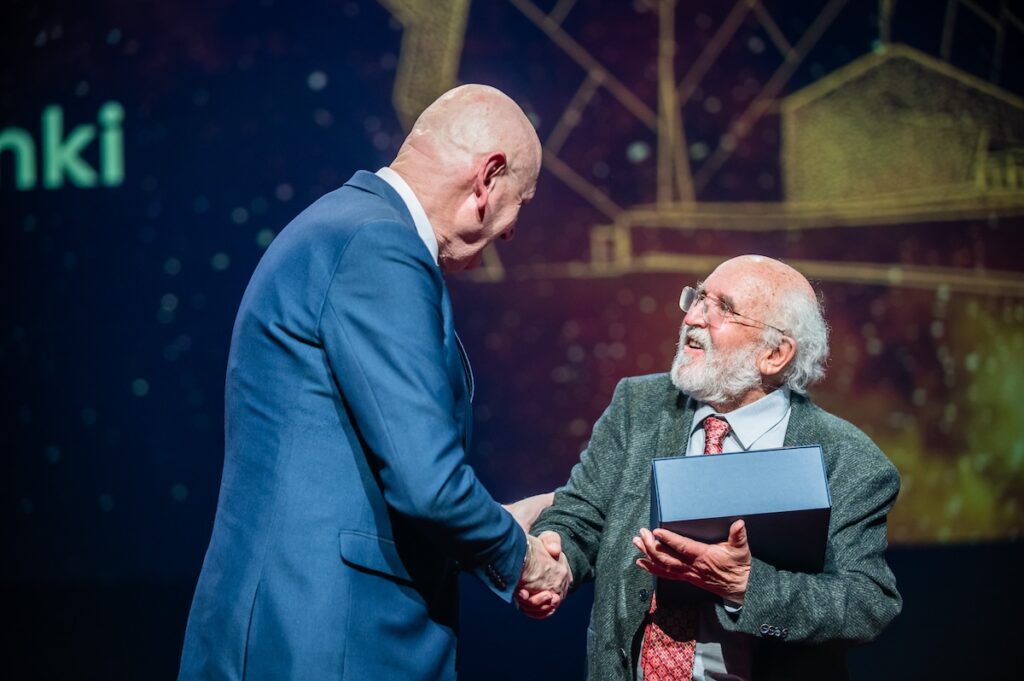
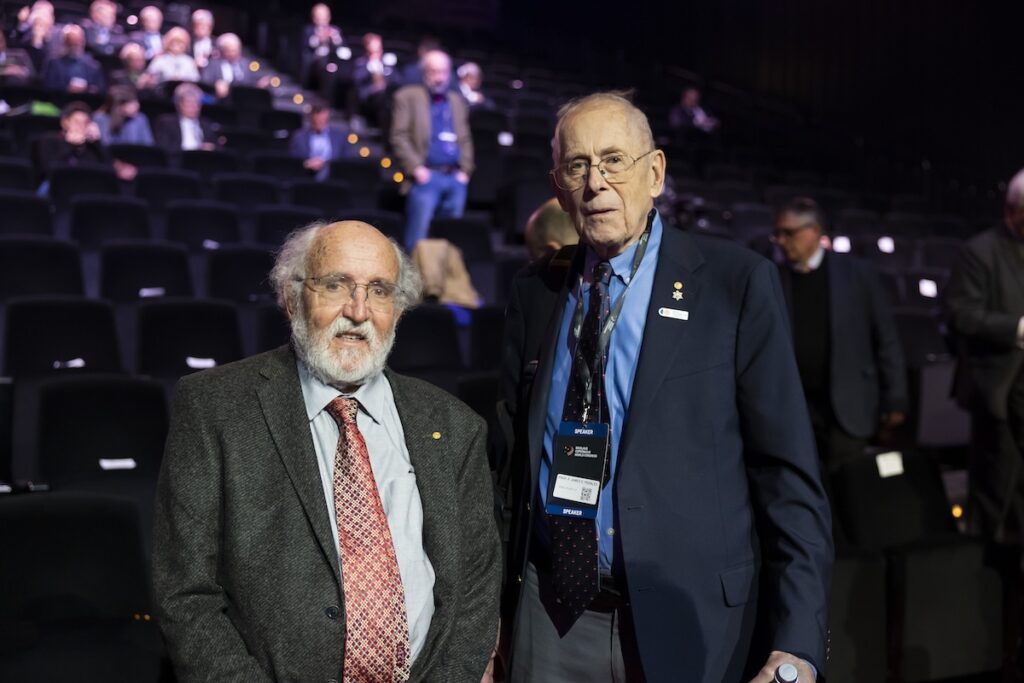
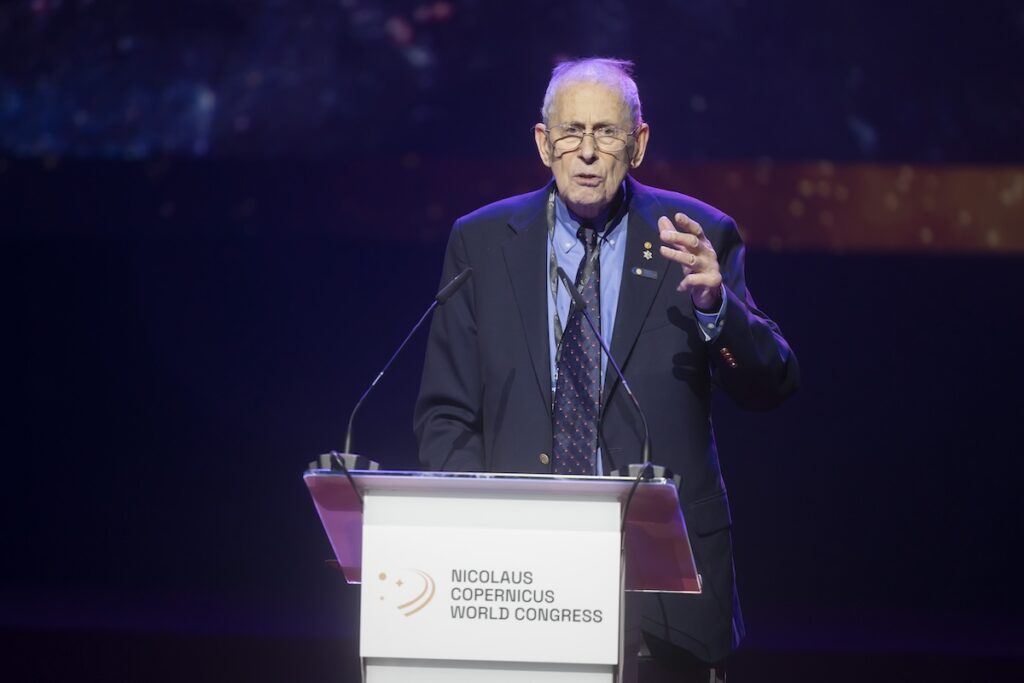
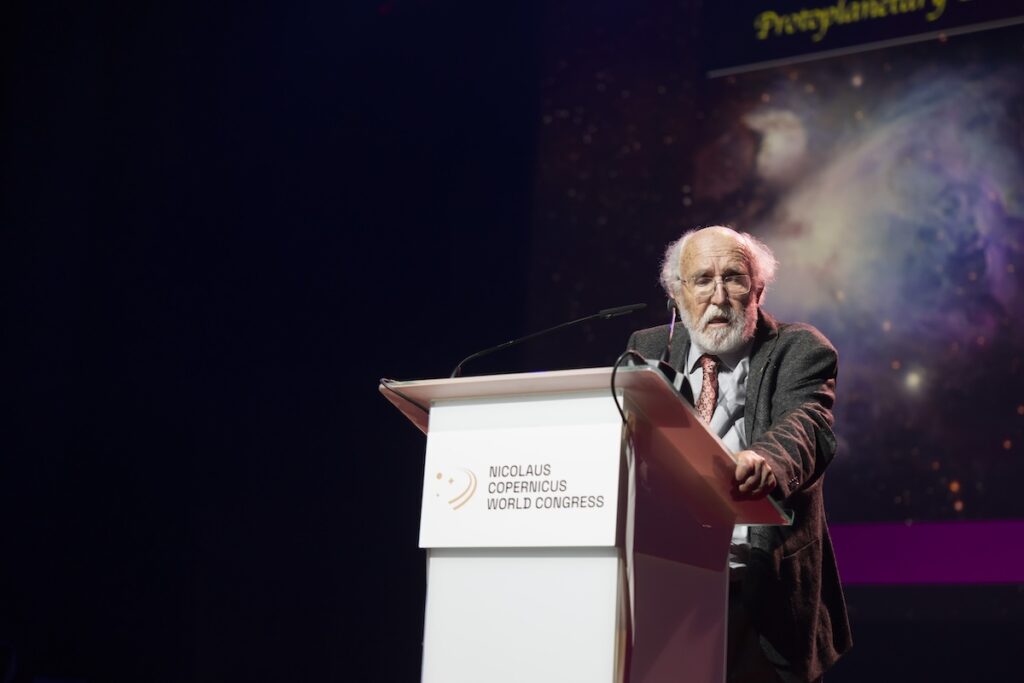
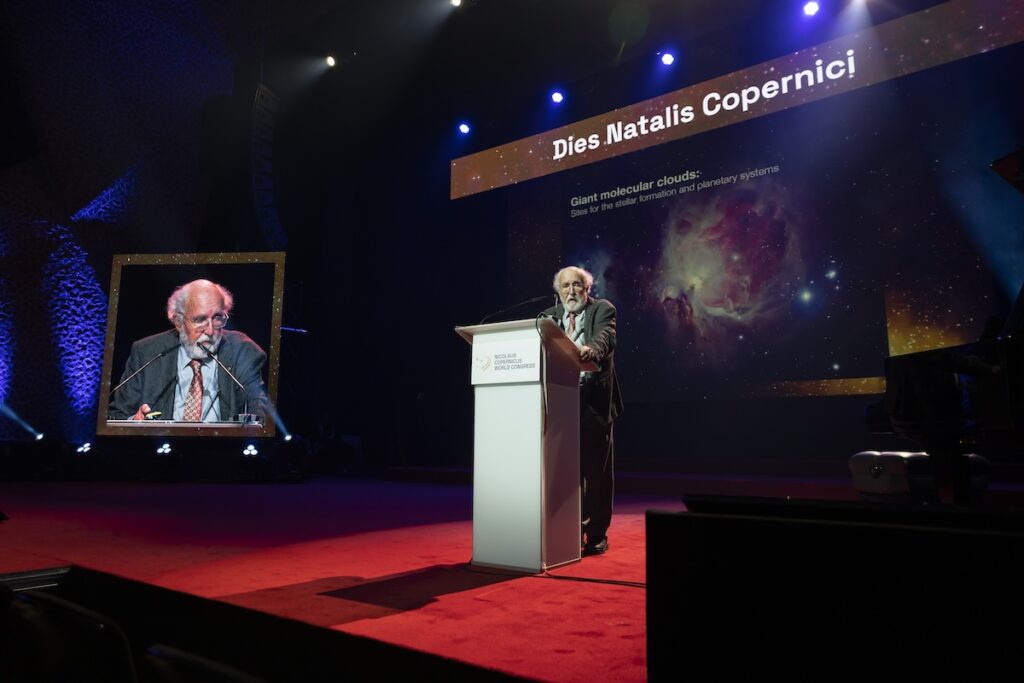
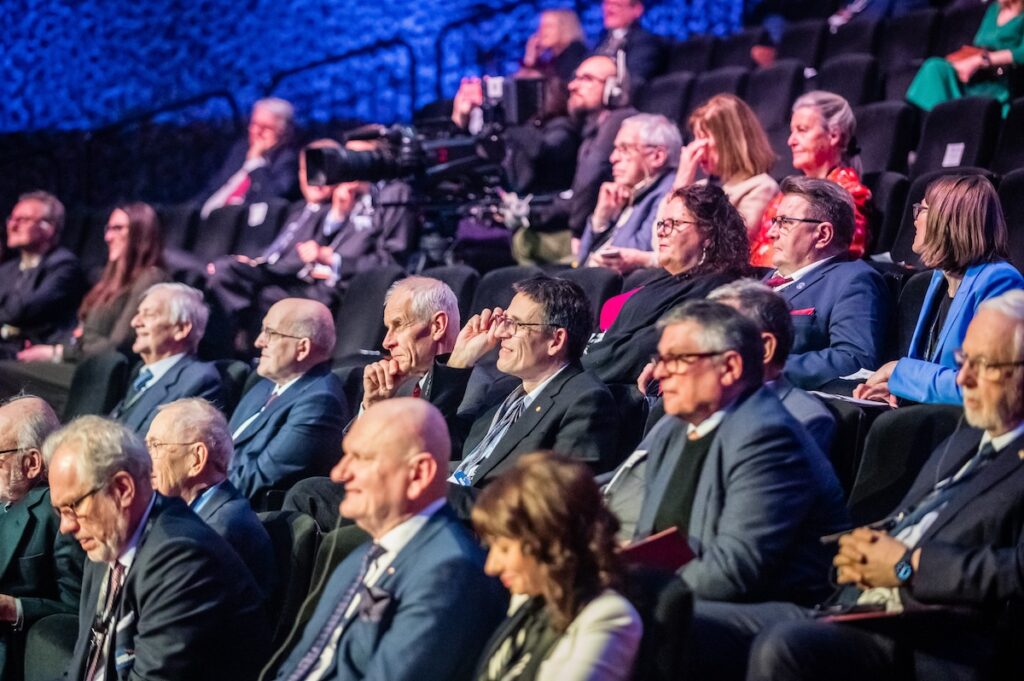
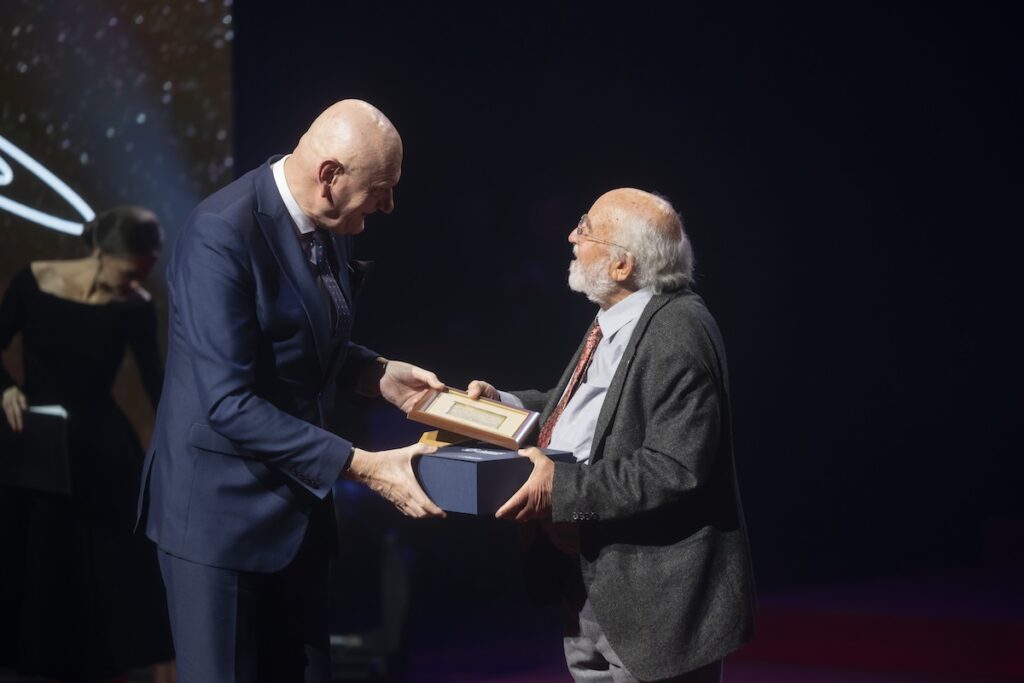
Day 2 – February 20, 2023
Lectures by Nobel Prize Laureates
Astronomy / Natural Sciences
Host:
Prof. Krzysztof M. Górski, Ph.D., D.Sc.
Participants:
Prof. Barry C. Barish
Prof. Arthur B. McDonald
Prof. Didier P. Queloz
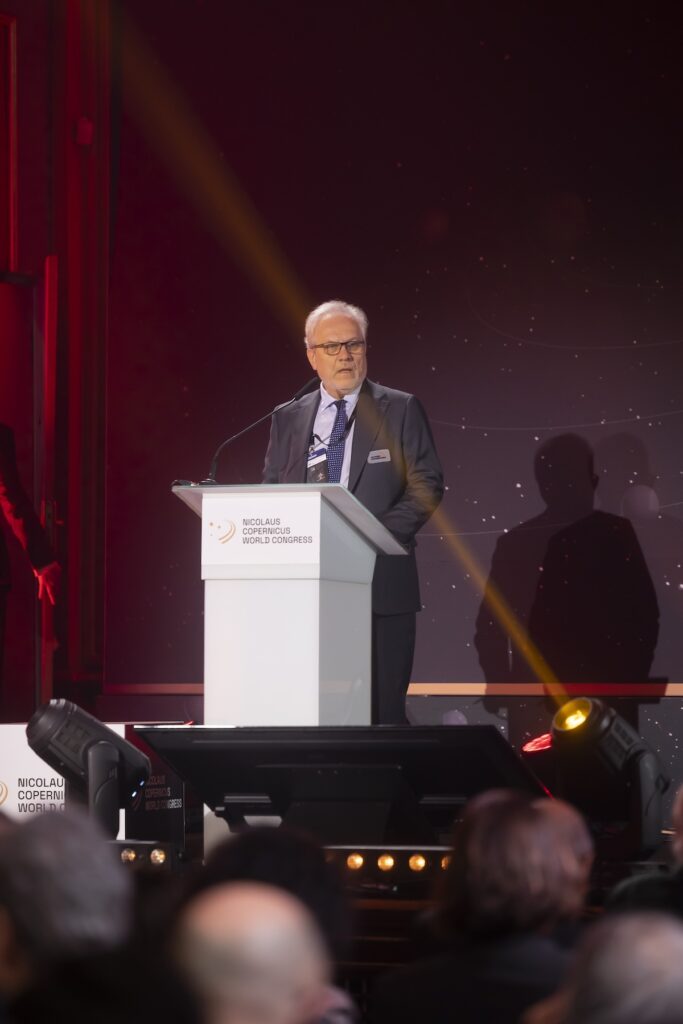
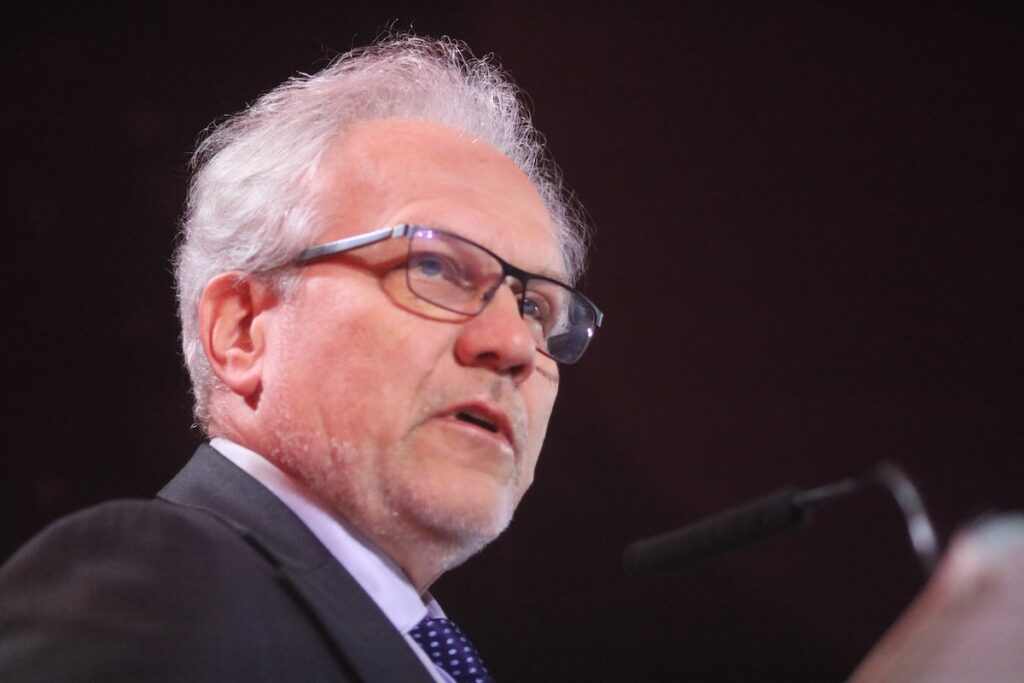
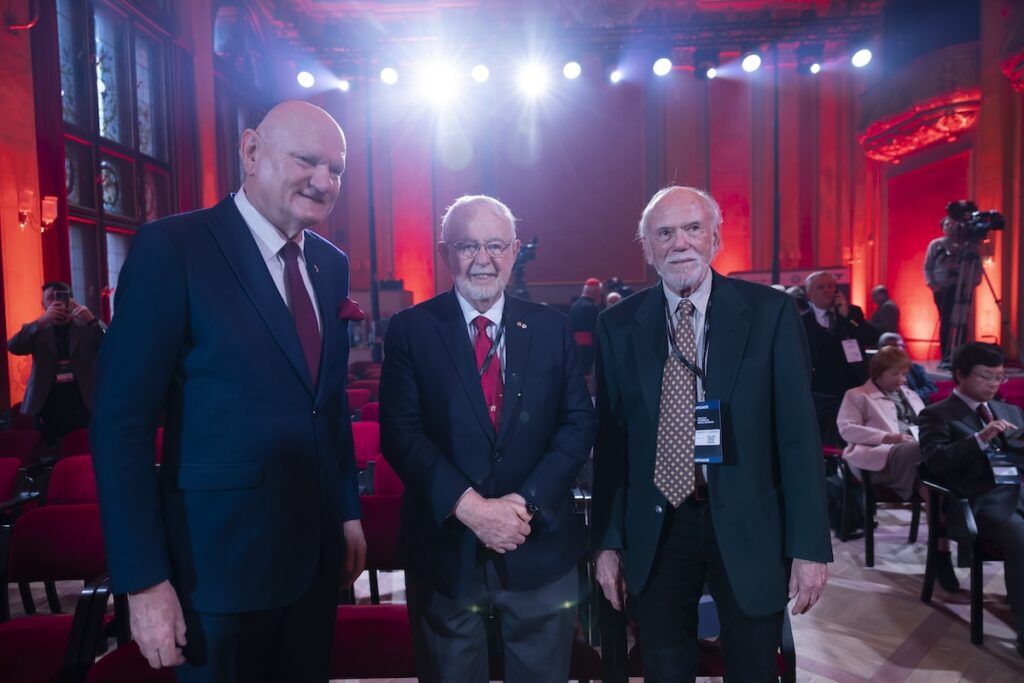
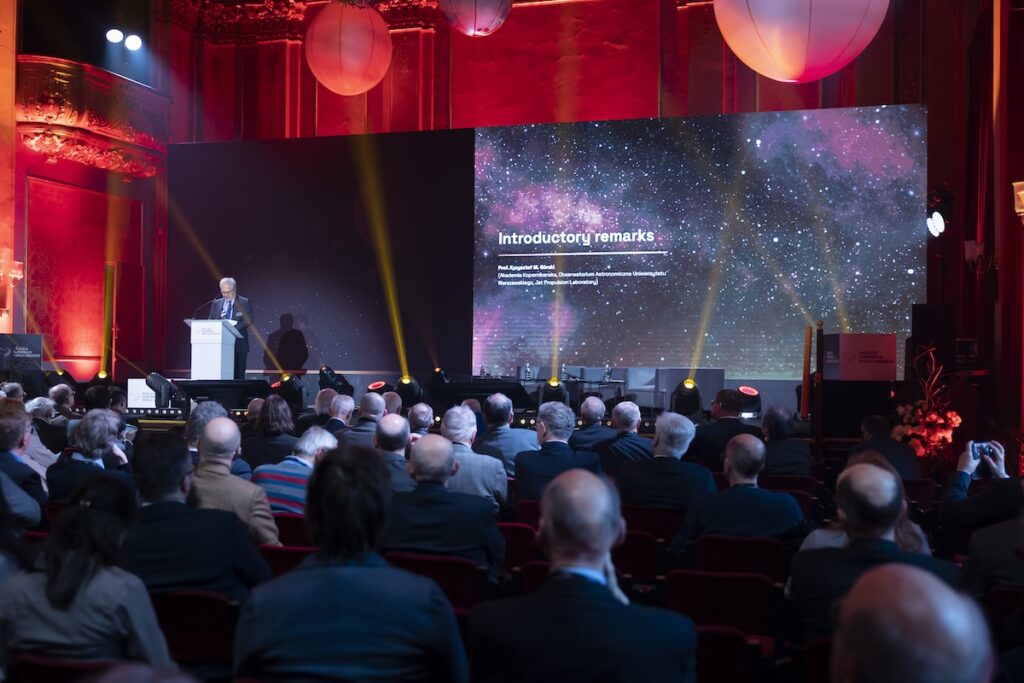
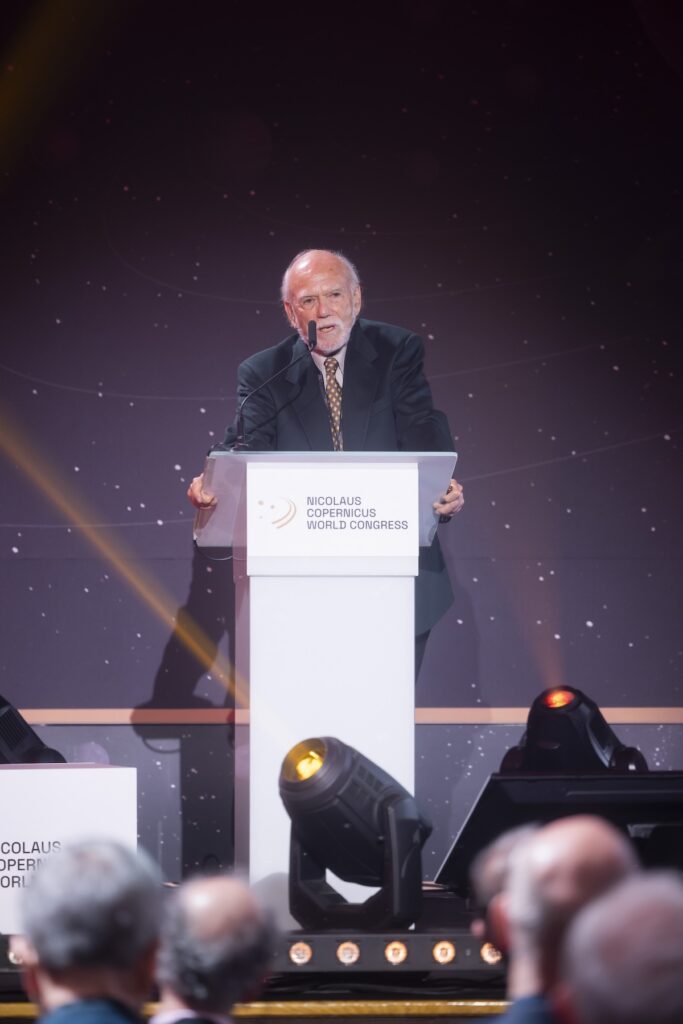
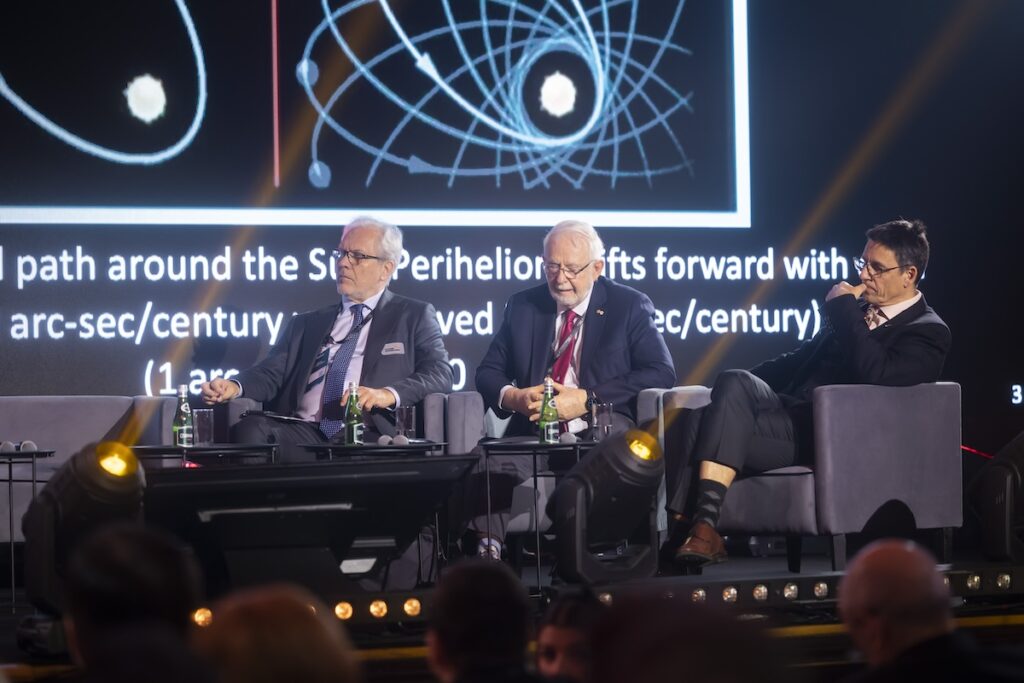
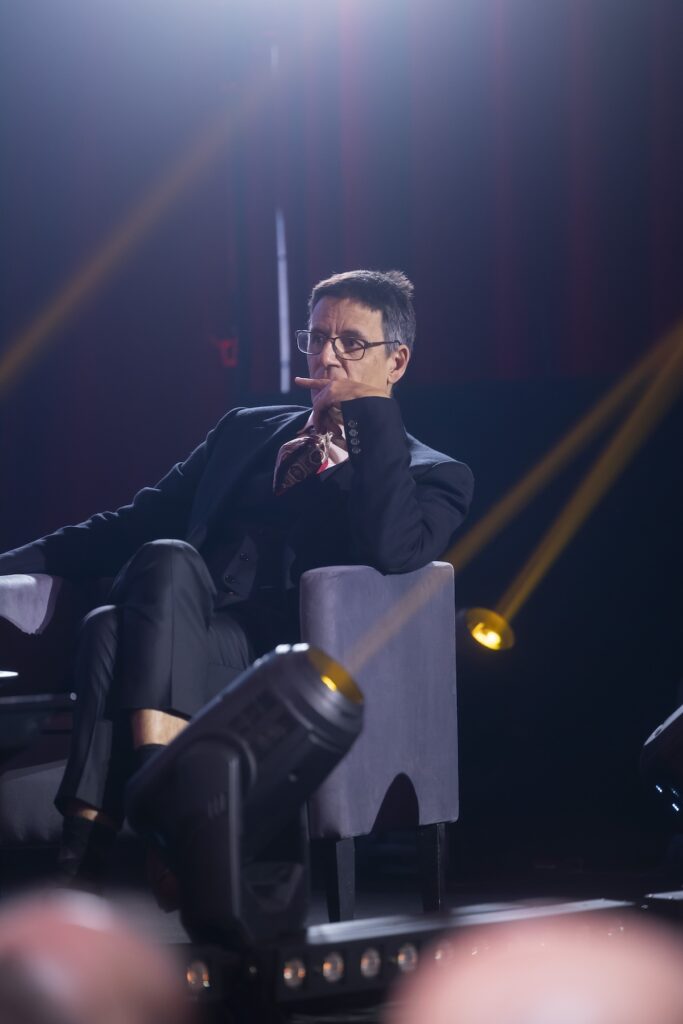
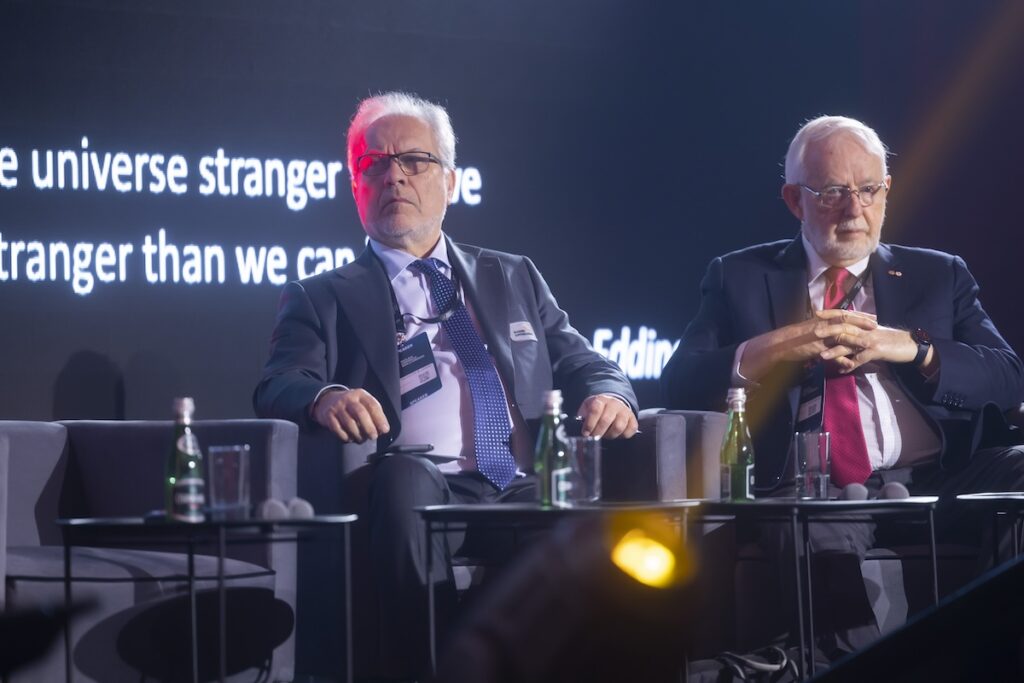
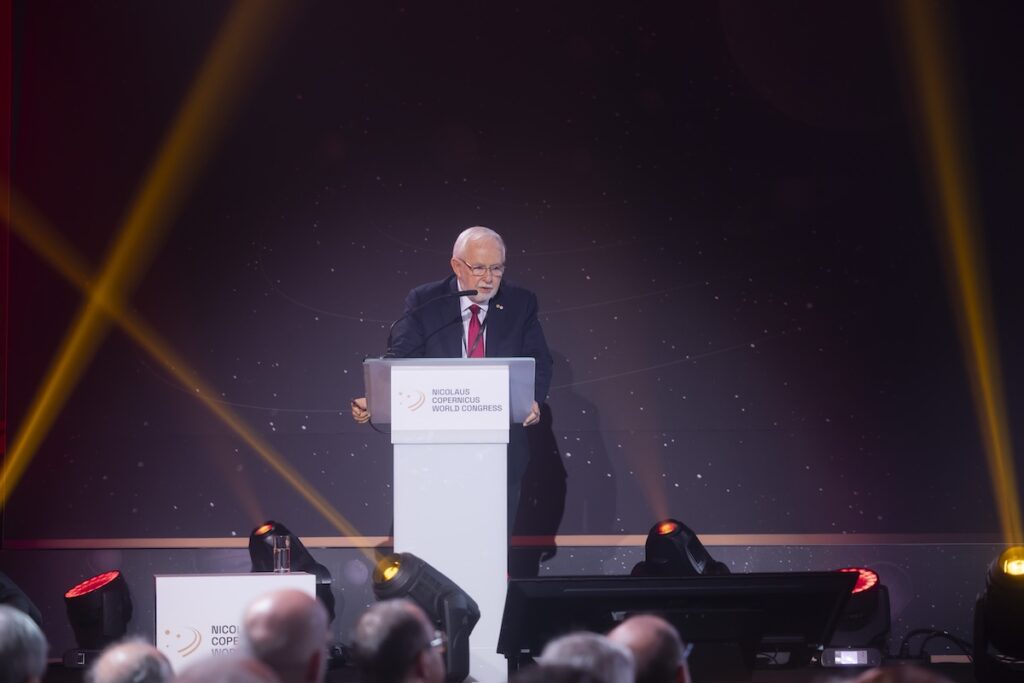
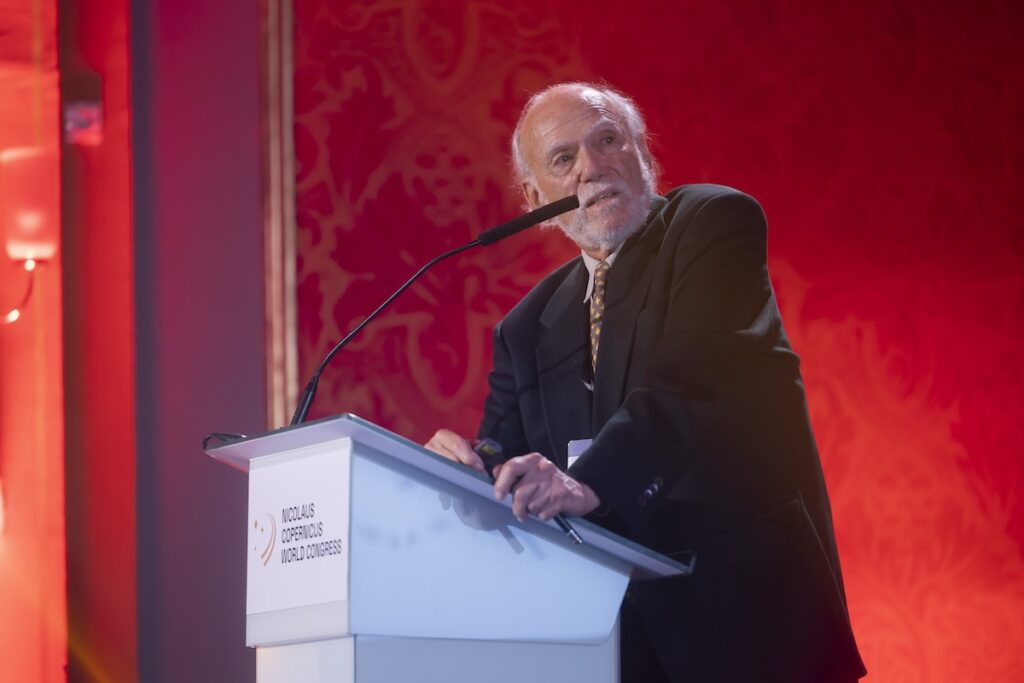
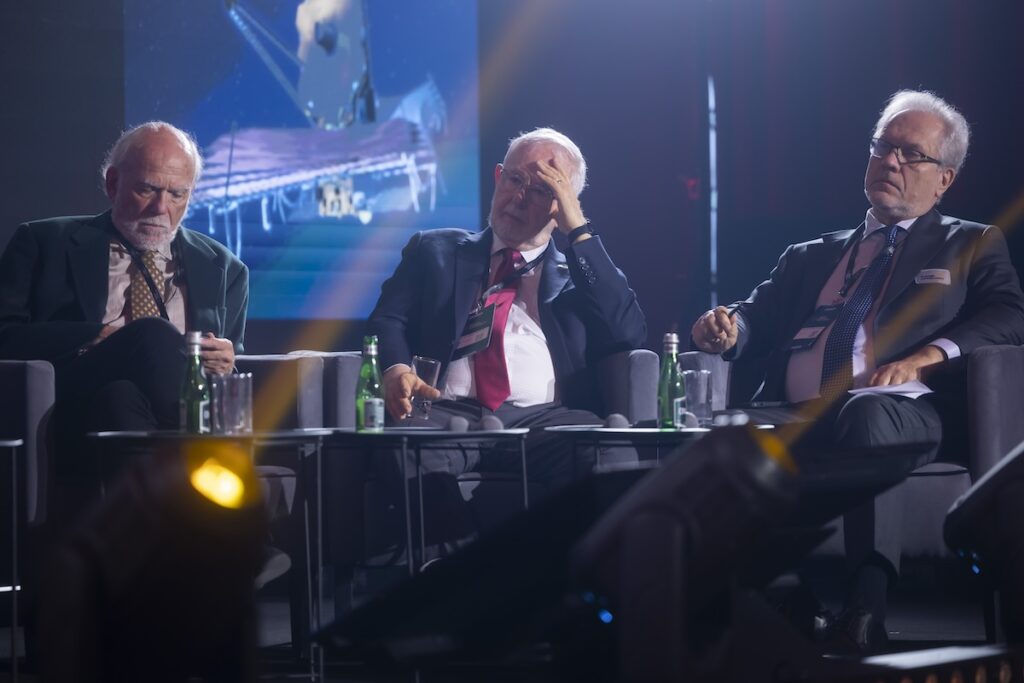
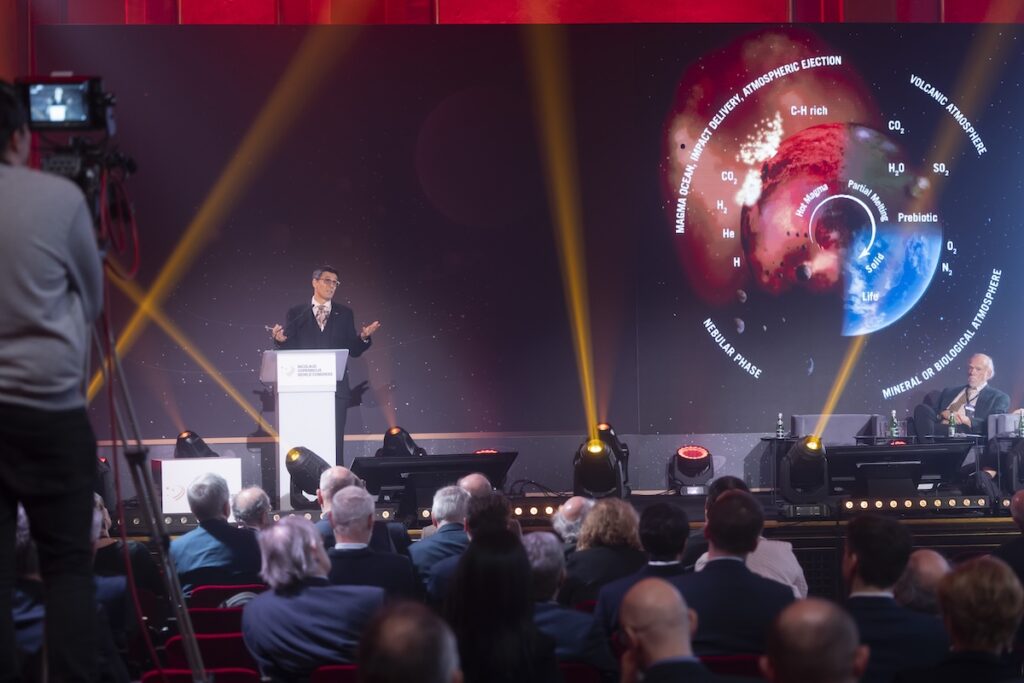
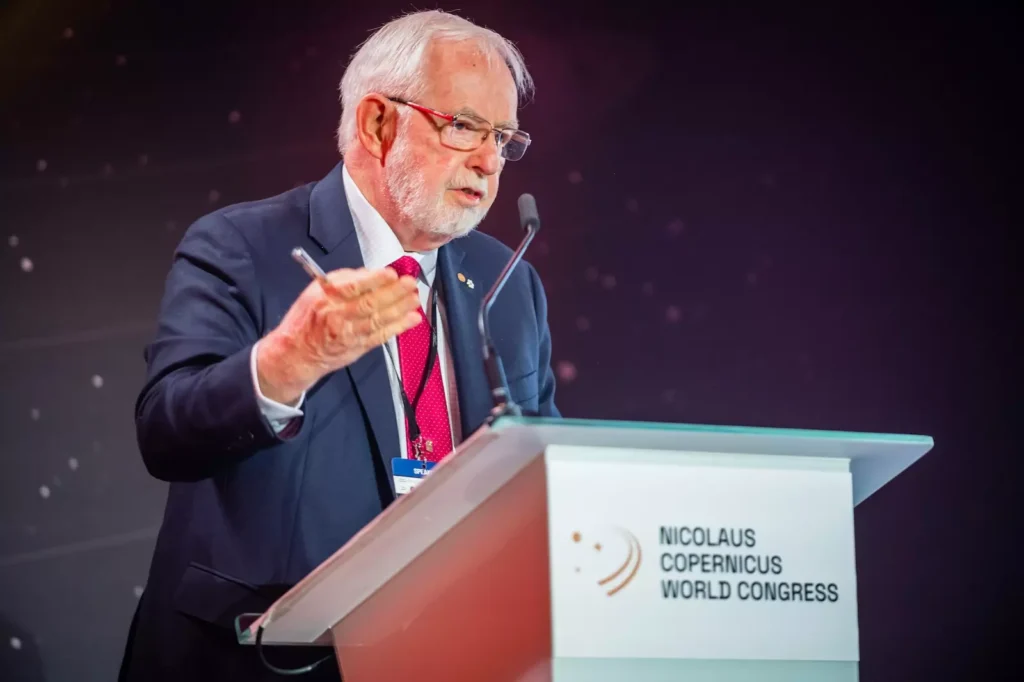
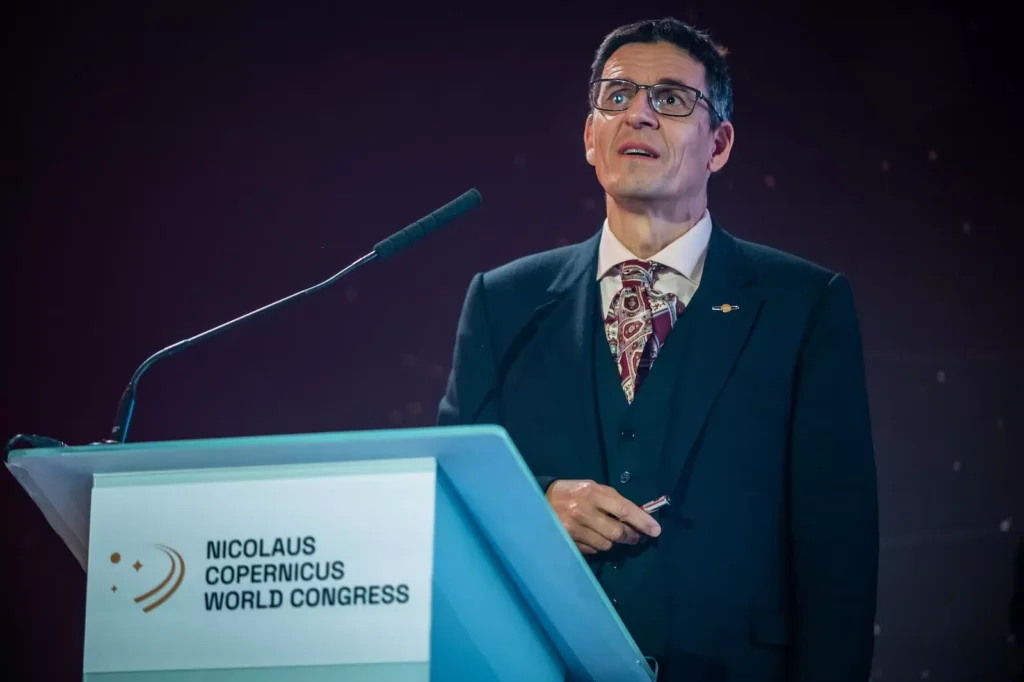
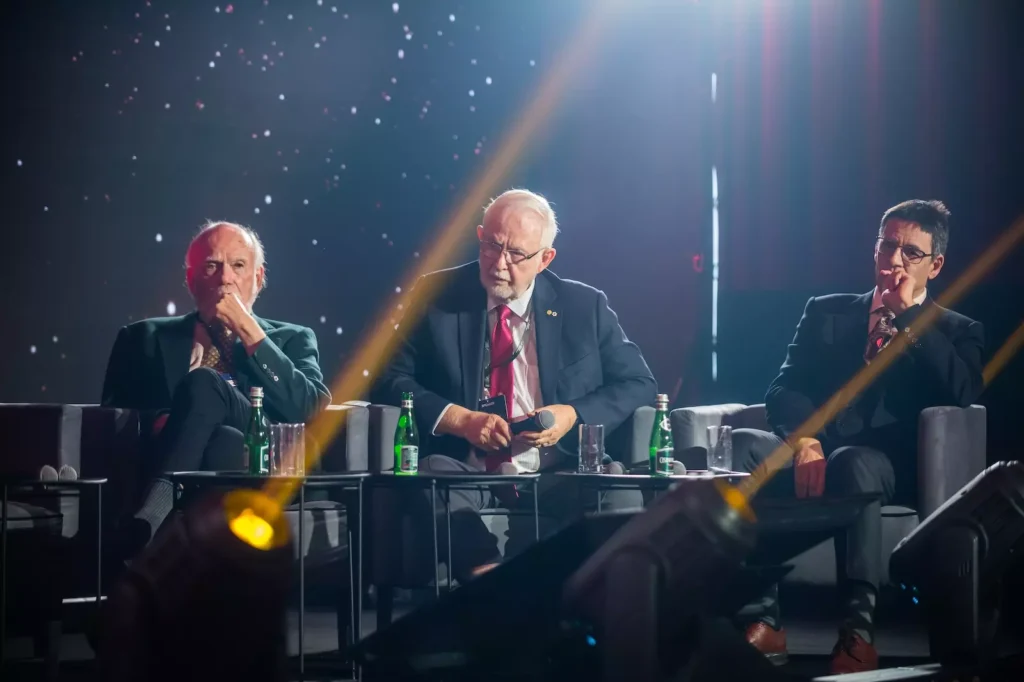
Session No. 1
Astronomy / Natural Sciences
Host:
Prof. Beatriz Barbuy
Prof. Joseph Silk
Institut d’Astrophysique de Paris, Johns Hopkins University
Brief Speeches:
Prof. Marek Sarna
Prof. Willy Benz
Dr. Bruno Leibundgut
Prof. Günther Gustav Hasinger
European Space Agency, Director of Science
Prof. Michel Spiro
CERN, CEA, and IYBSSD – International Year of Basic Sciences for Sustainable Development
Dr. Andreas Haungs
Karlsruhe Institute of Technology, Astroparticle Physics European Consortium
Lectures:
Prof. Gianfranco De Zotti
University of Padova
Prof. Michael Perryman
University College Dublin
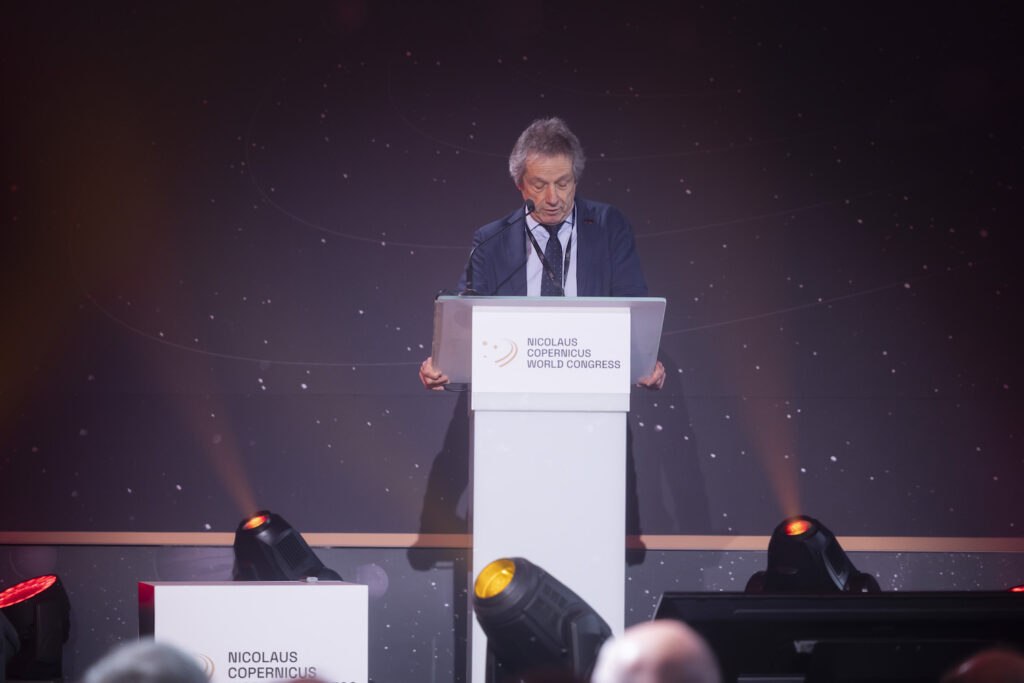
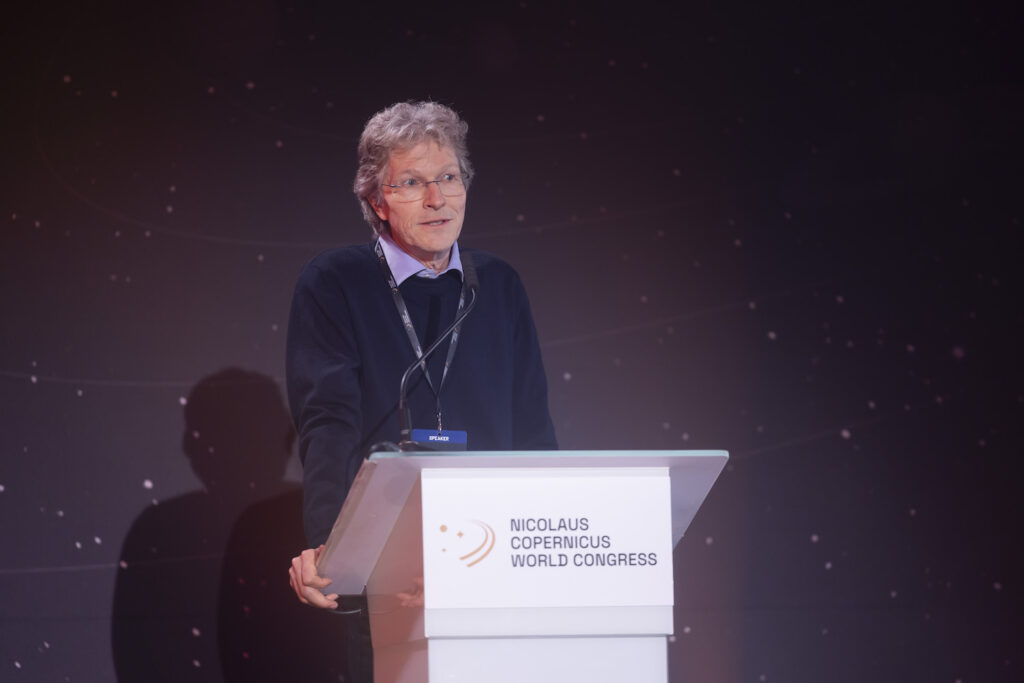
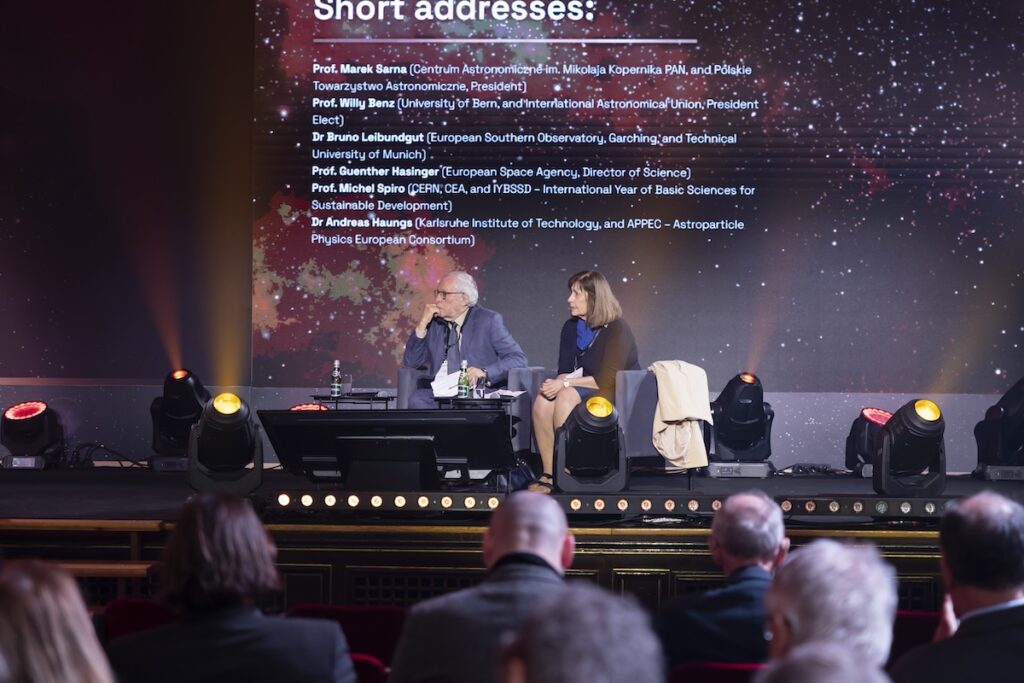
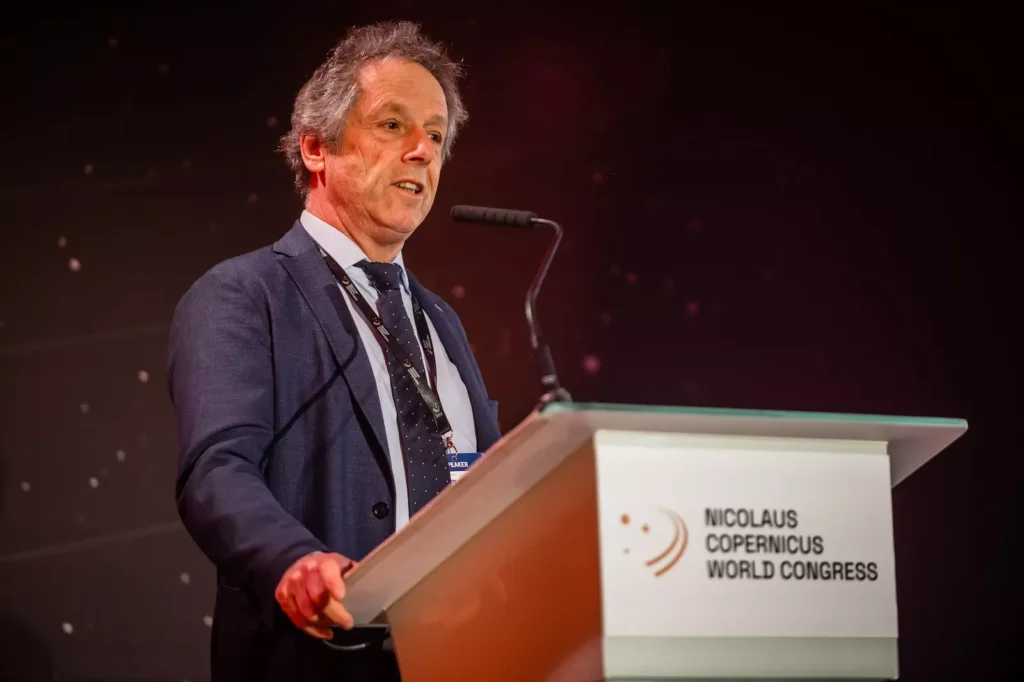
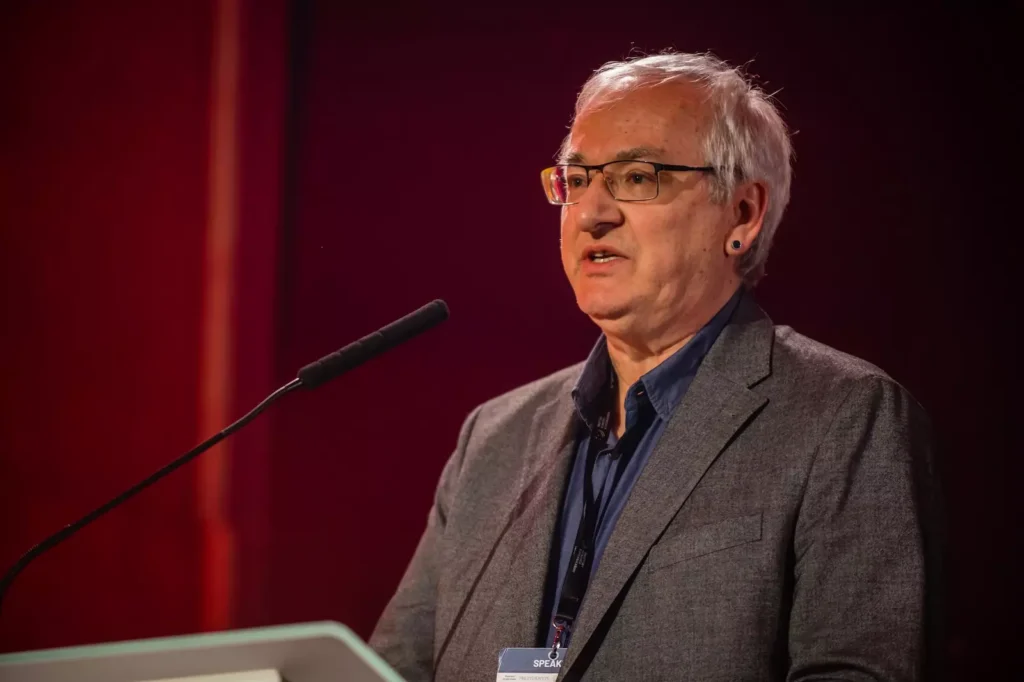
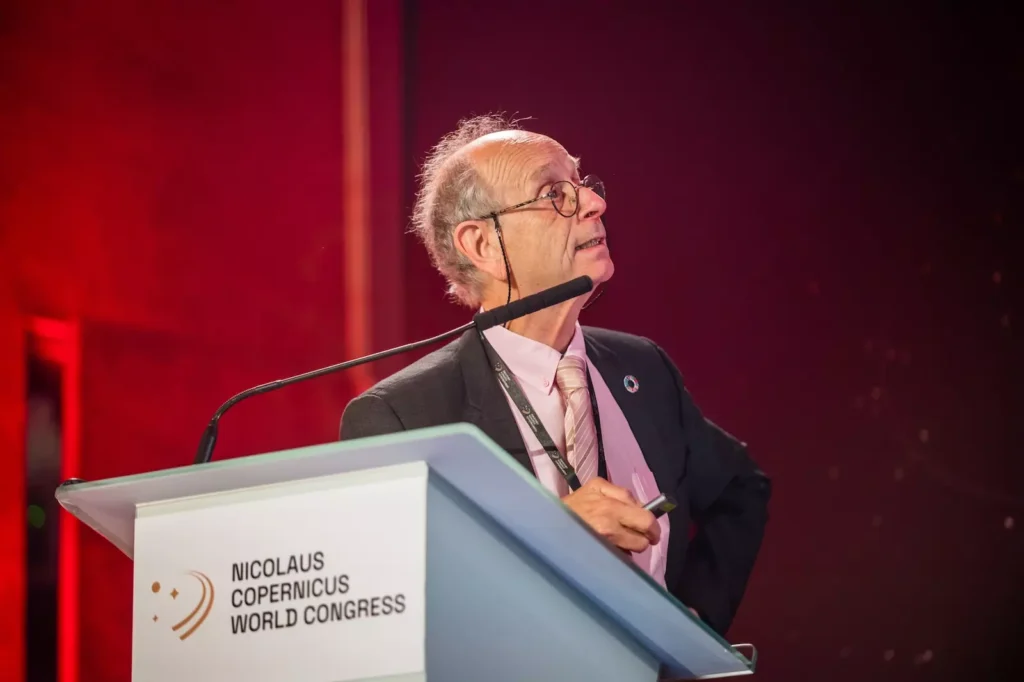
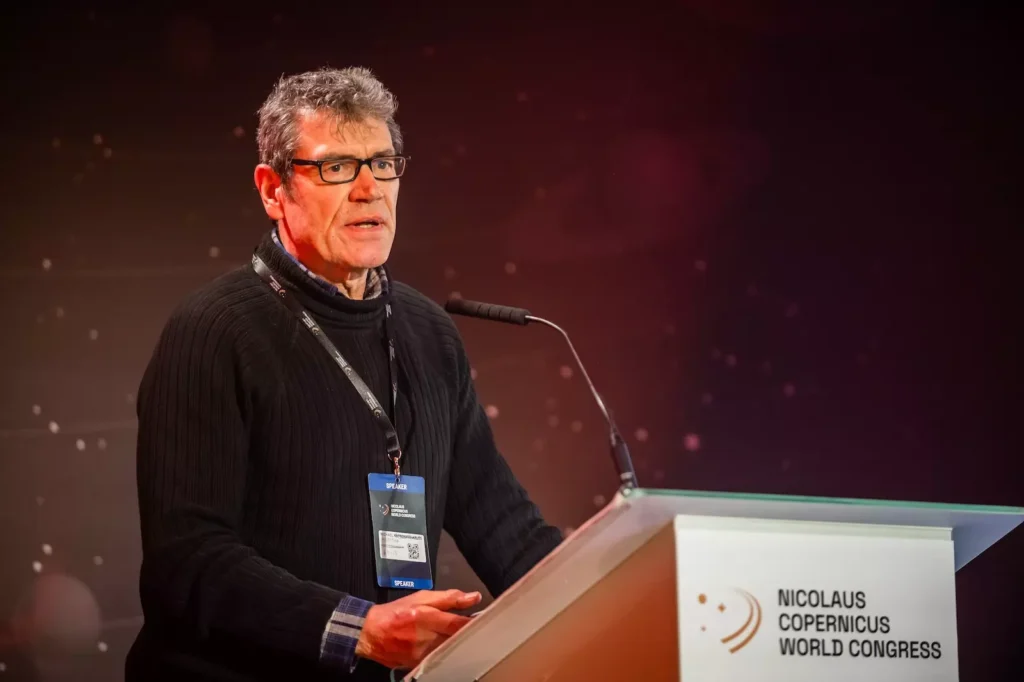
Session “Universe Nearby” – Part I
Participants:
Prof. Andrzej Udalski
Dr. Piotr Orleański
Prof. Yasushi Suto
Tokyo University
Dr. Gražina Tautvaišienė
Vilnius University
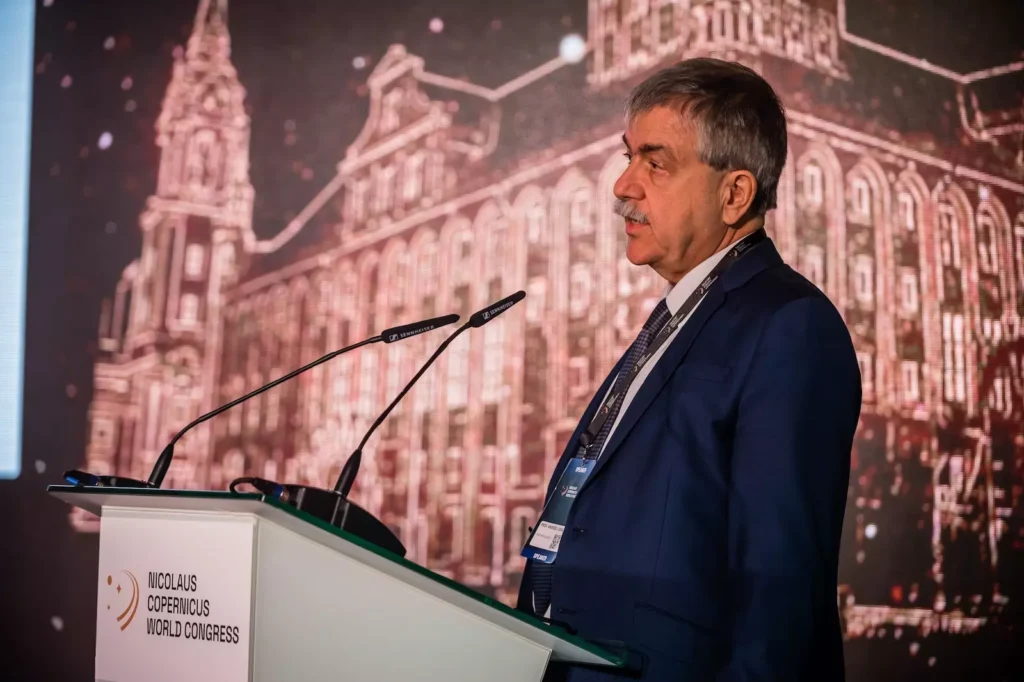
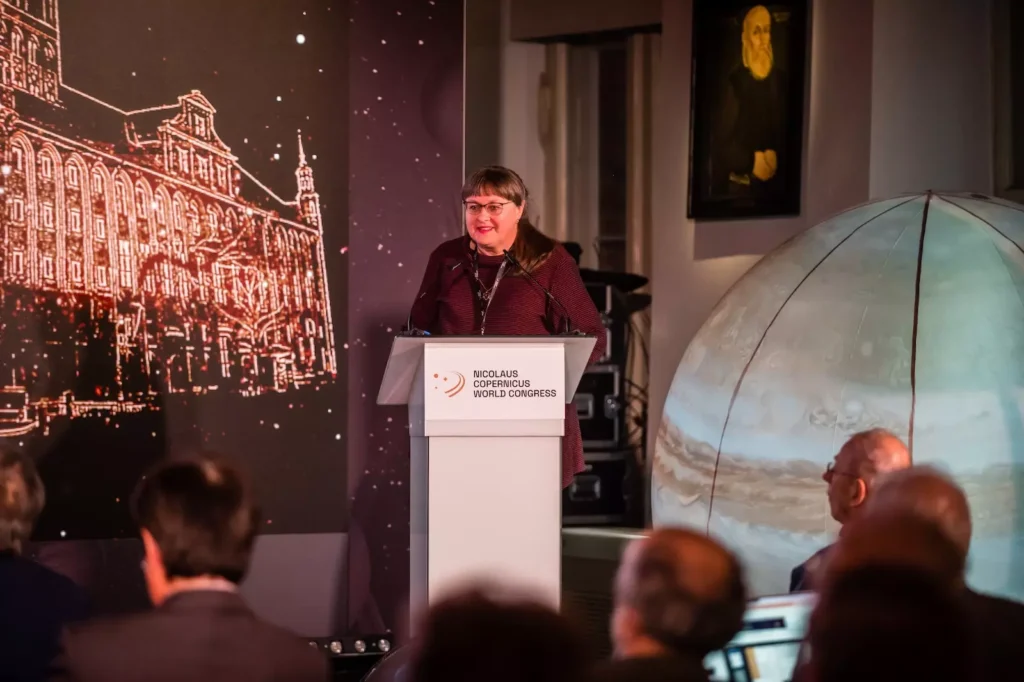
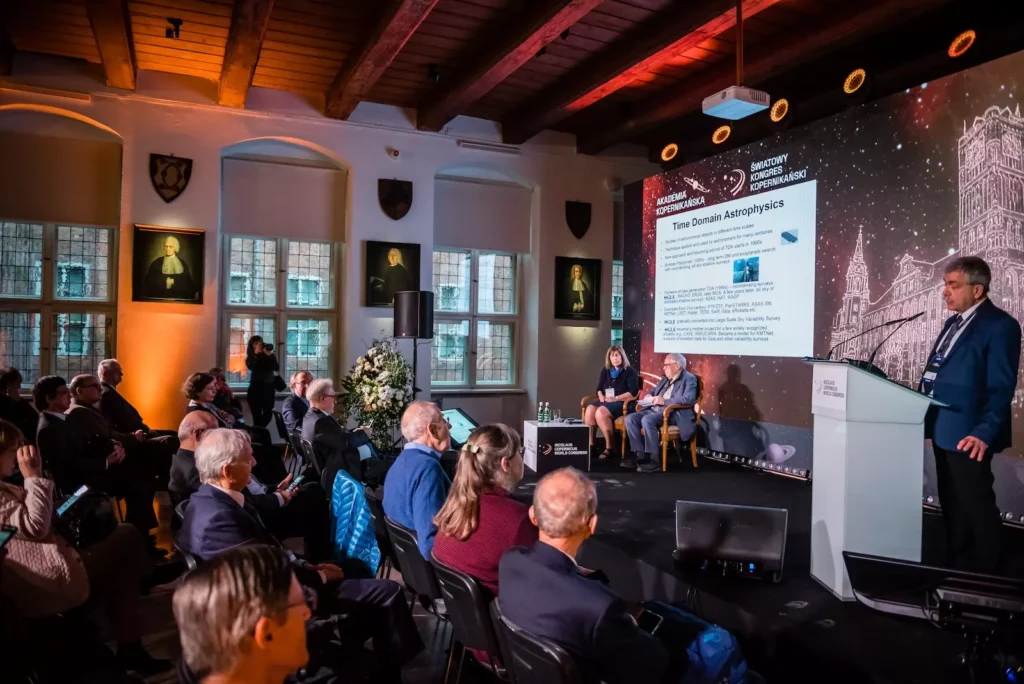
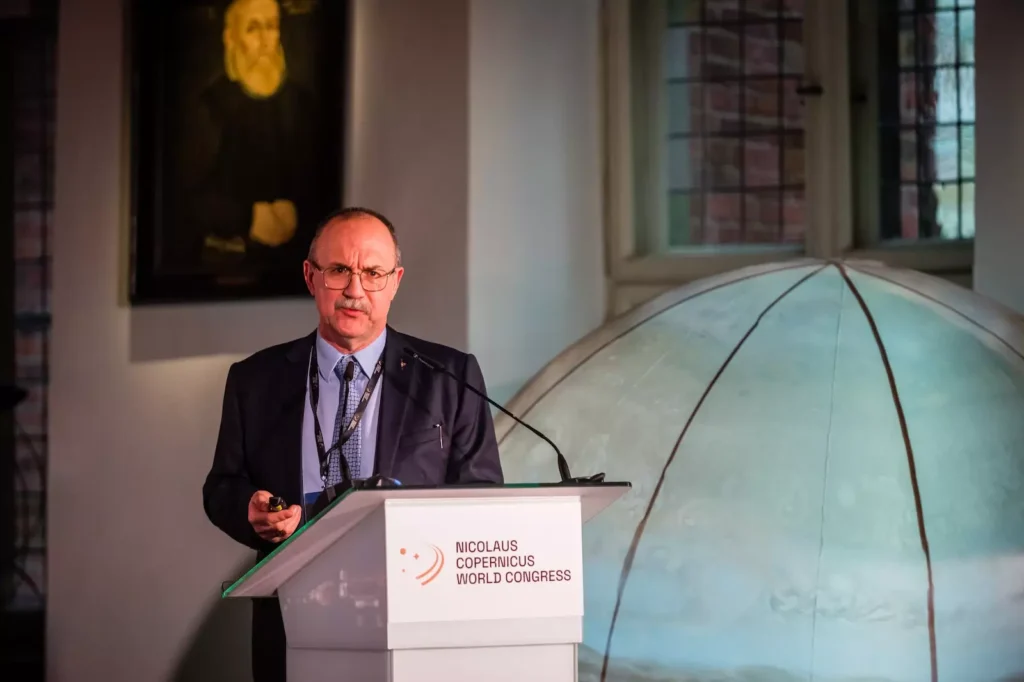
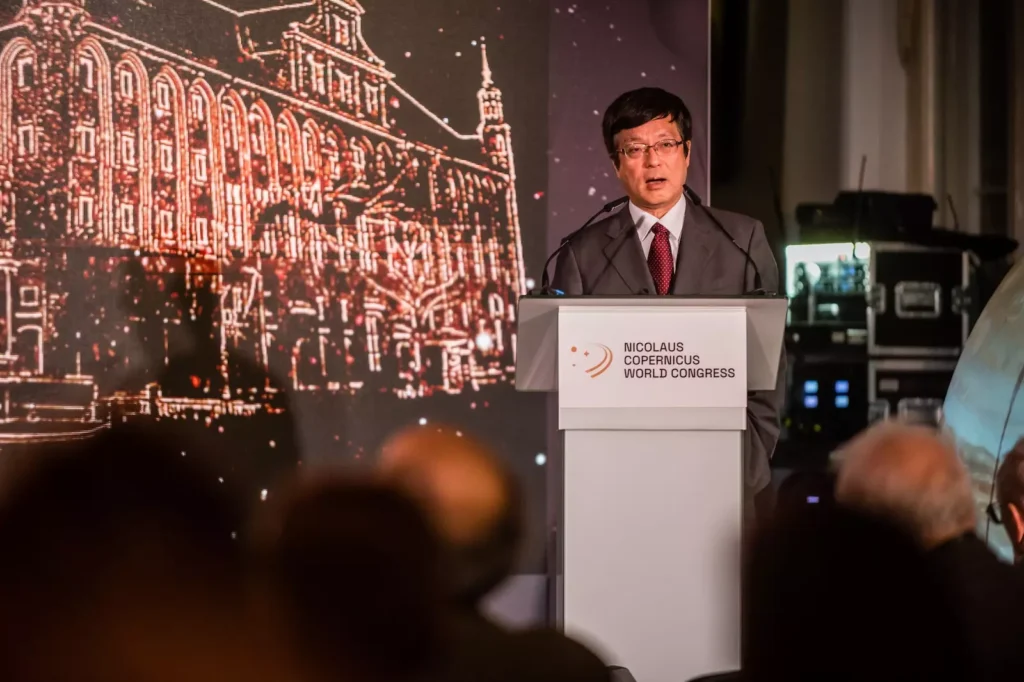
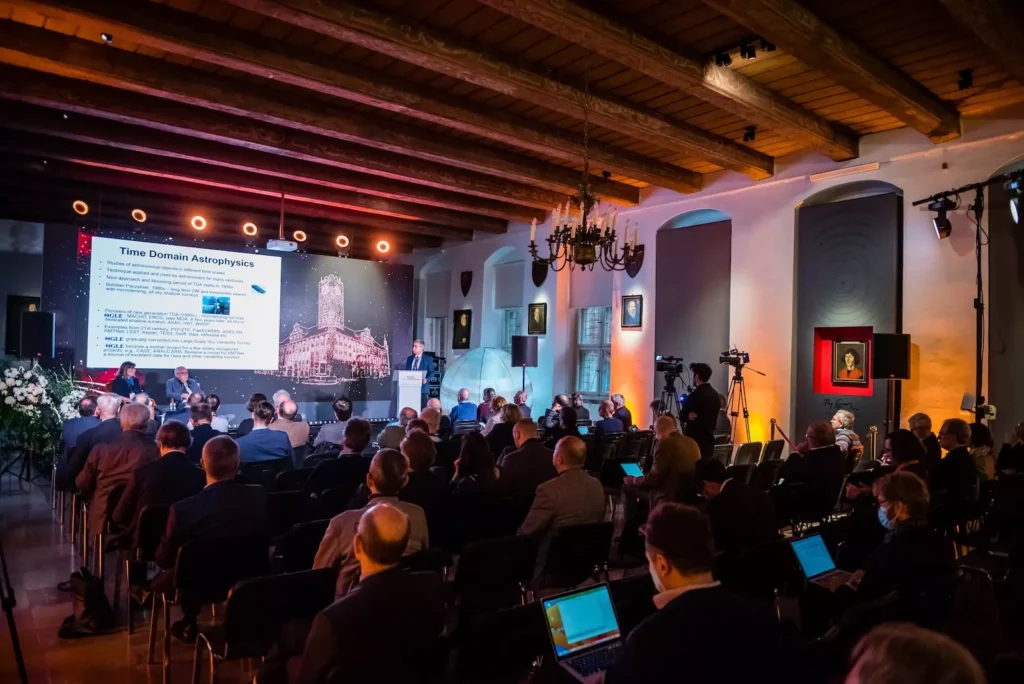
Nobel Prize Laureates Panel Discussion
They discussed the role of science in today’s world and current international challenges.
Host:
Prof. Krzysztof M. Górski
Participants:
Prof. Barry C. Barish
Prof. Michel G. É. Mayor
Prof. Arthur B. McDonald
Prof. P. James E. Peebles
Prof. Didier P. Queloz
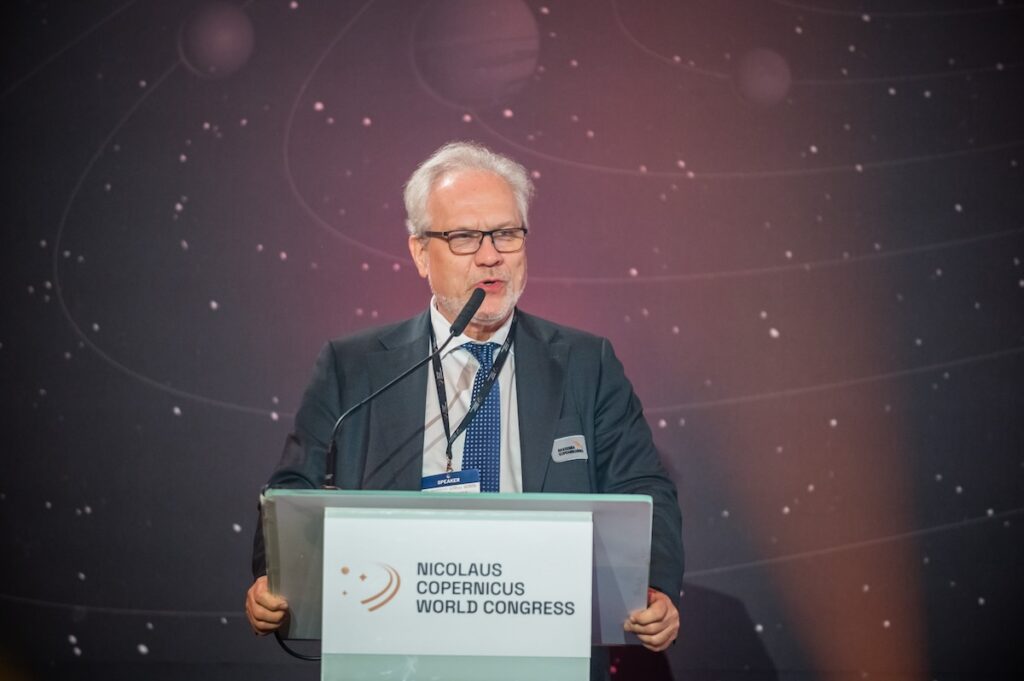
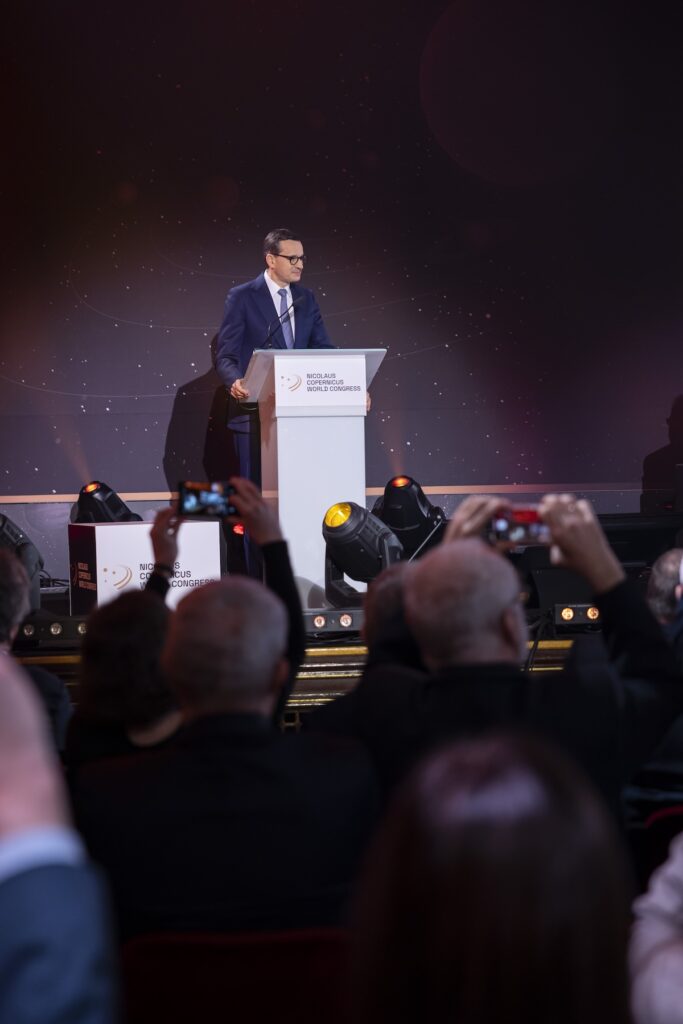
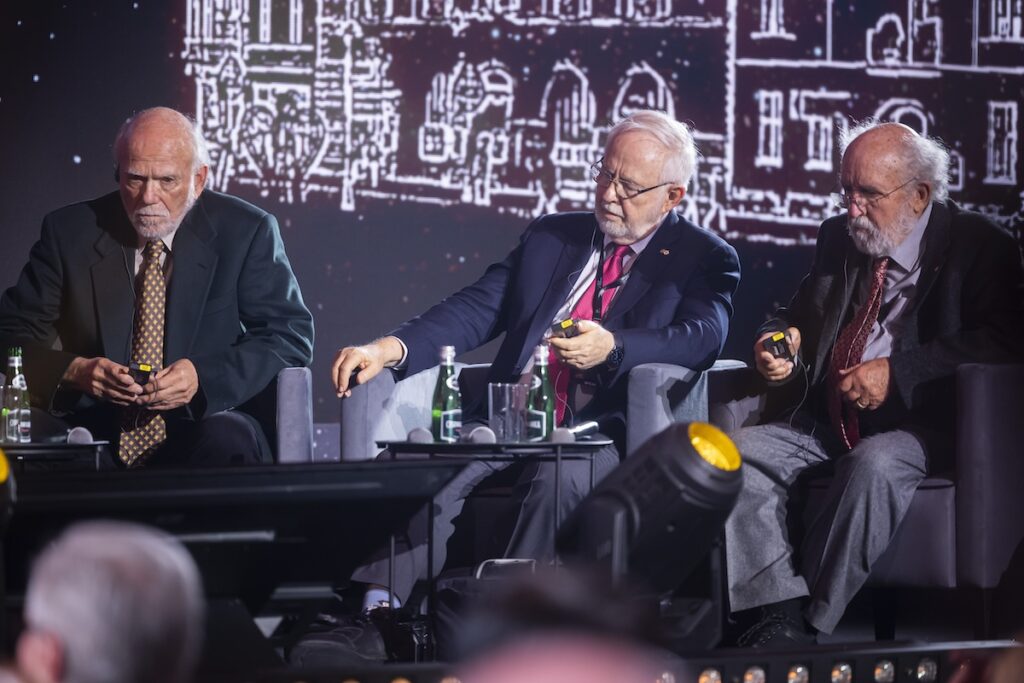
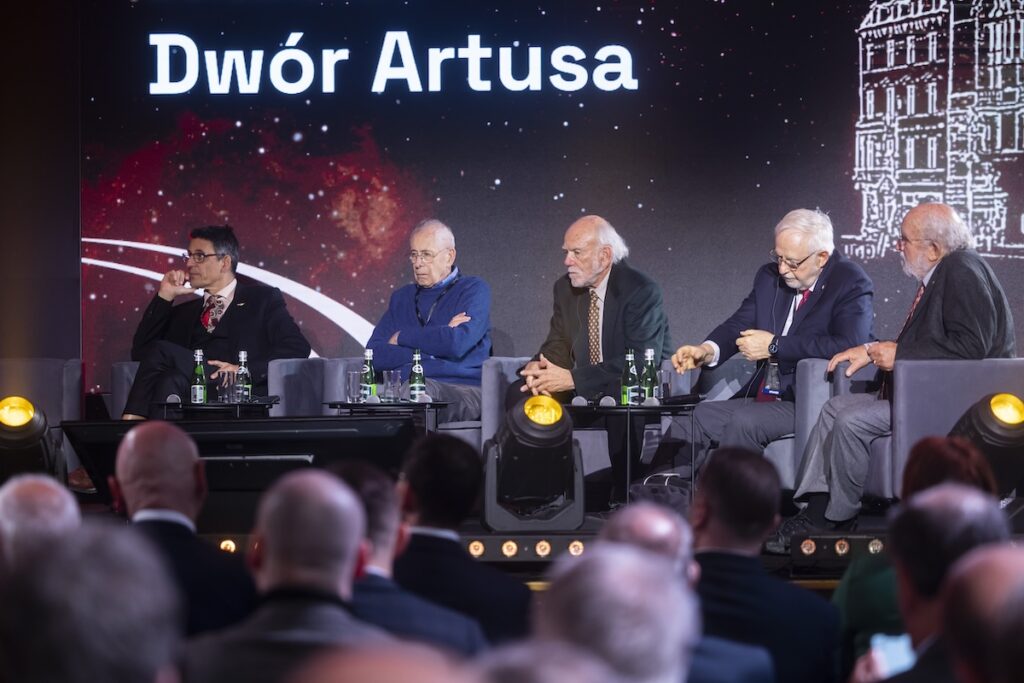
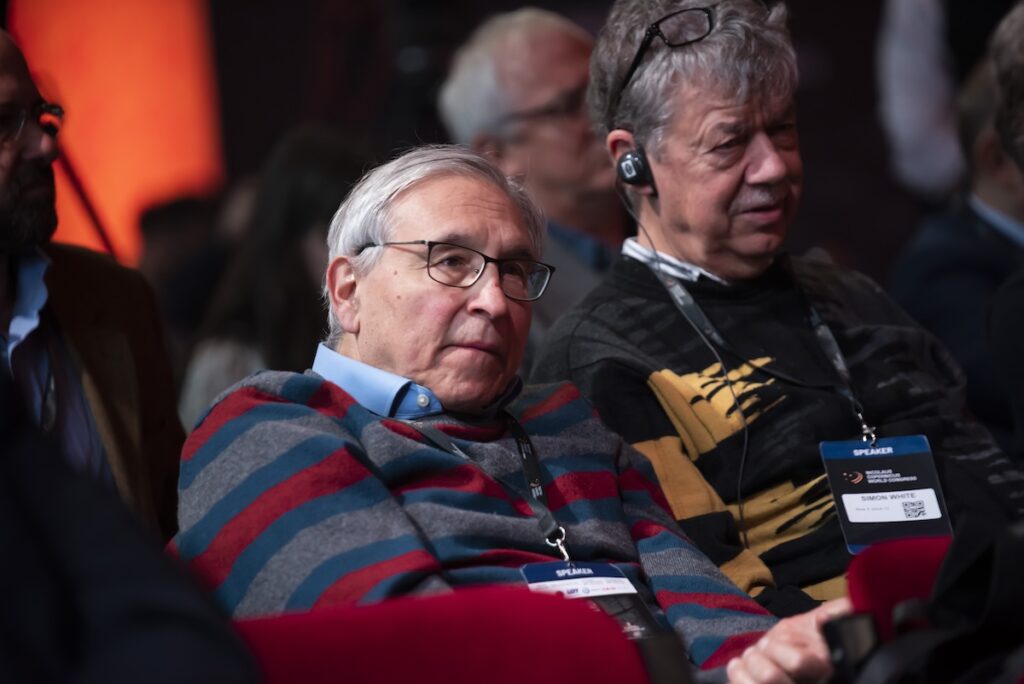
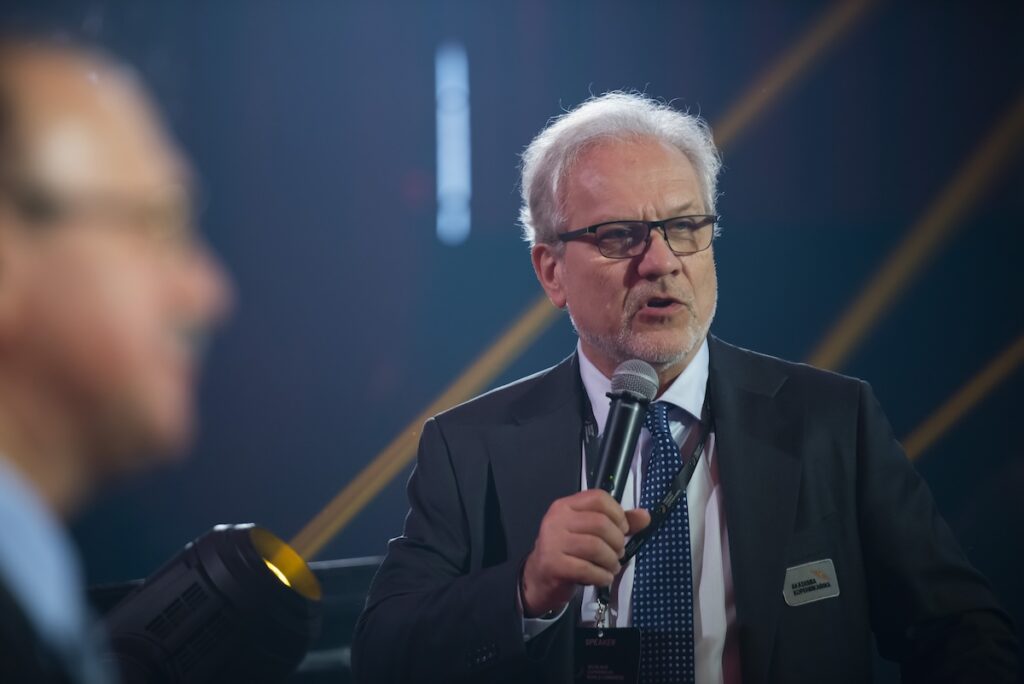
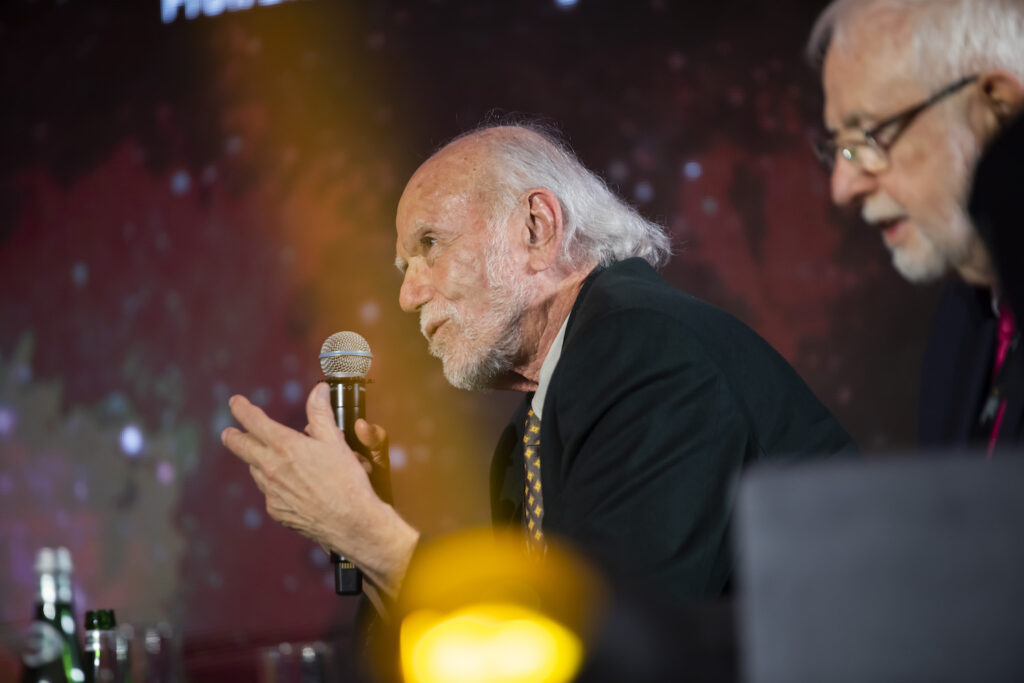
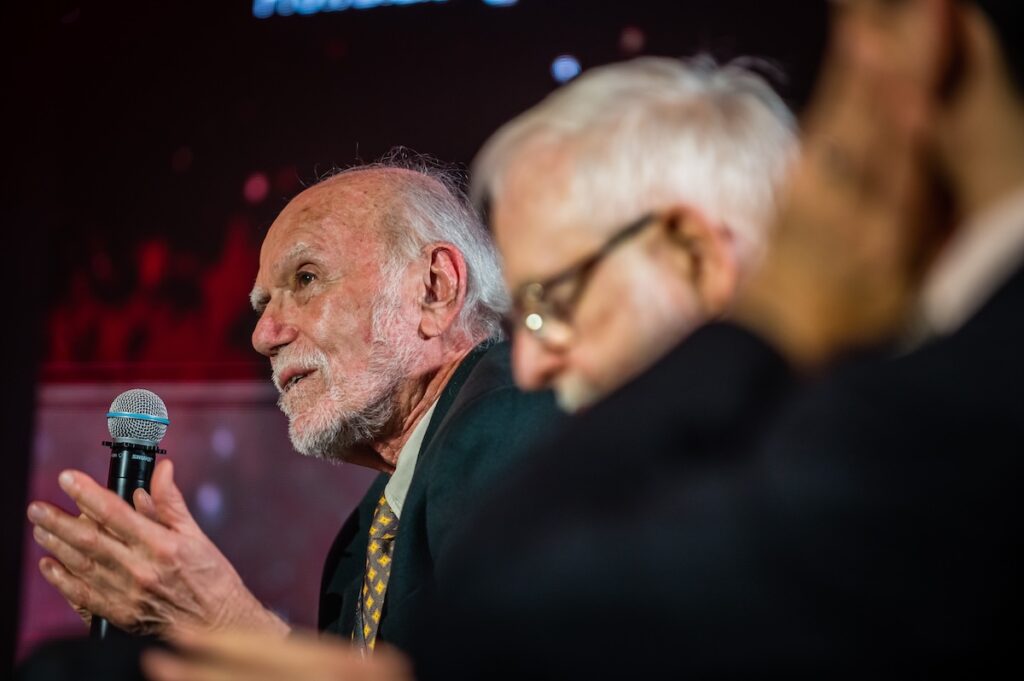
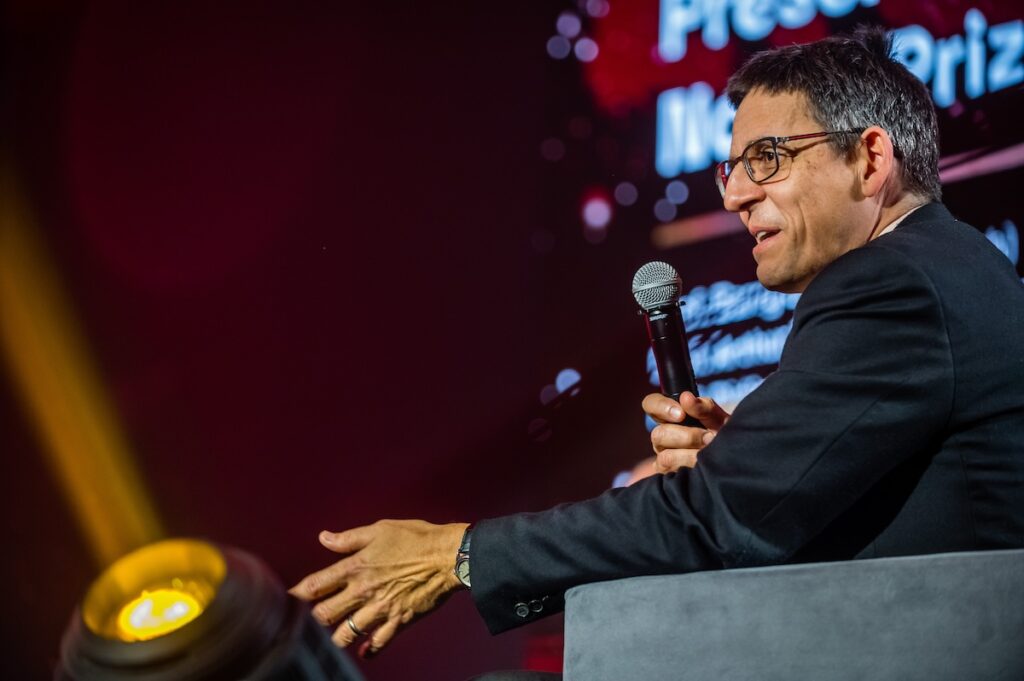
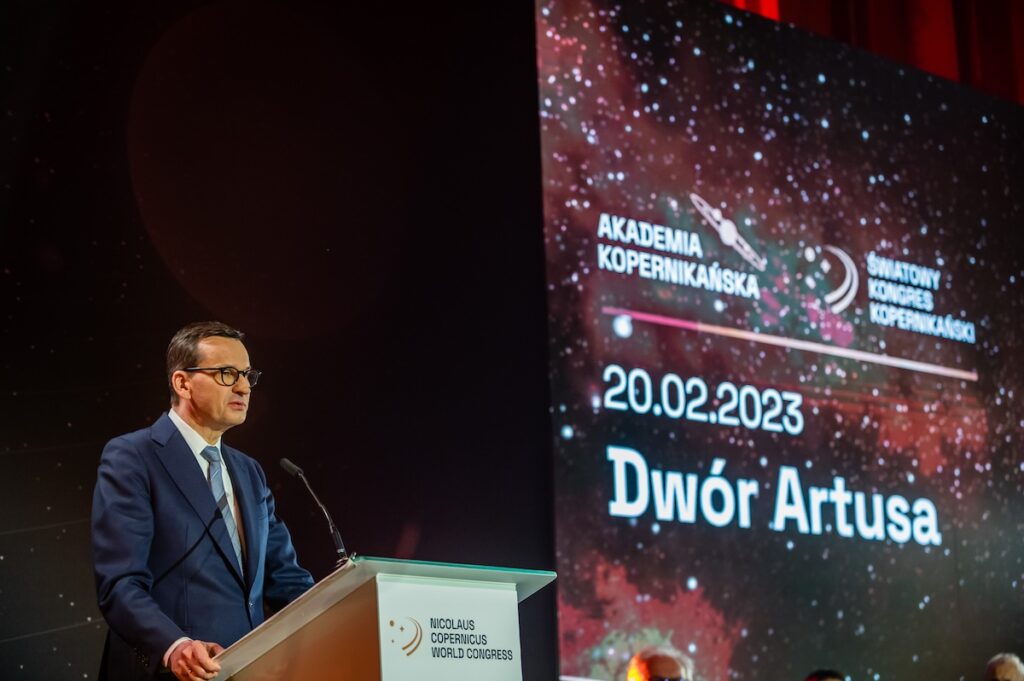
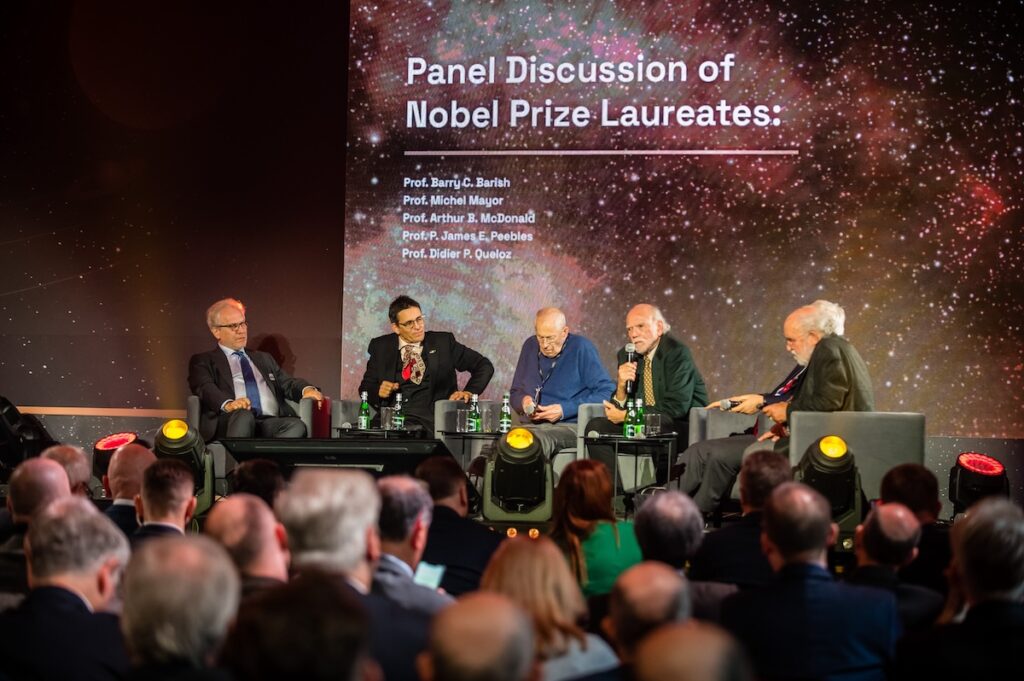
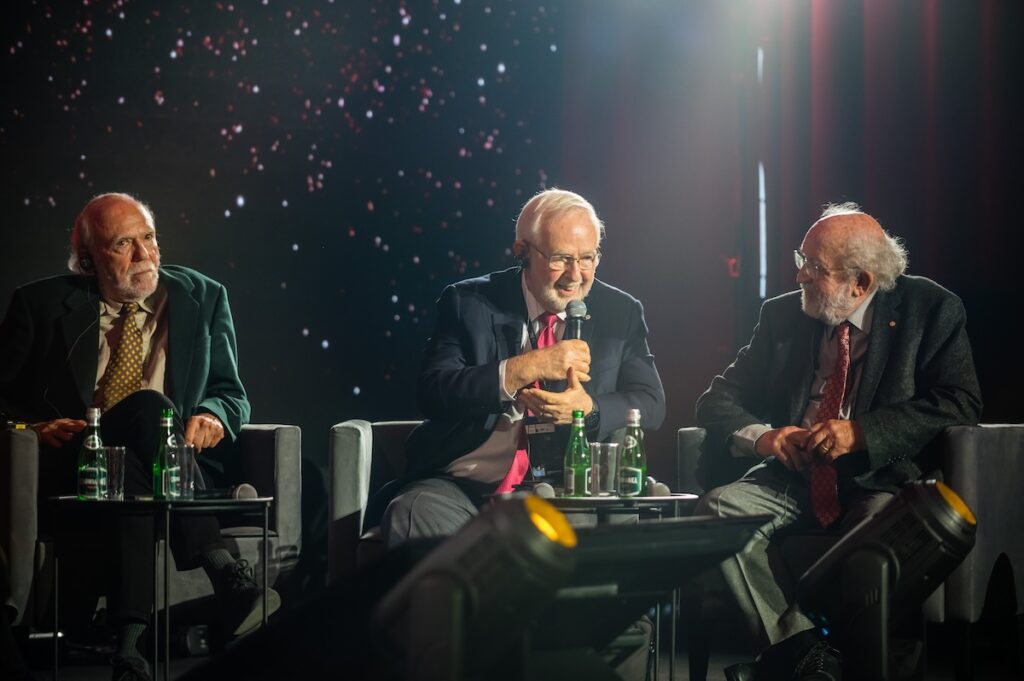
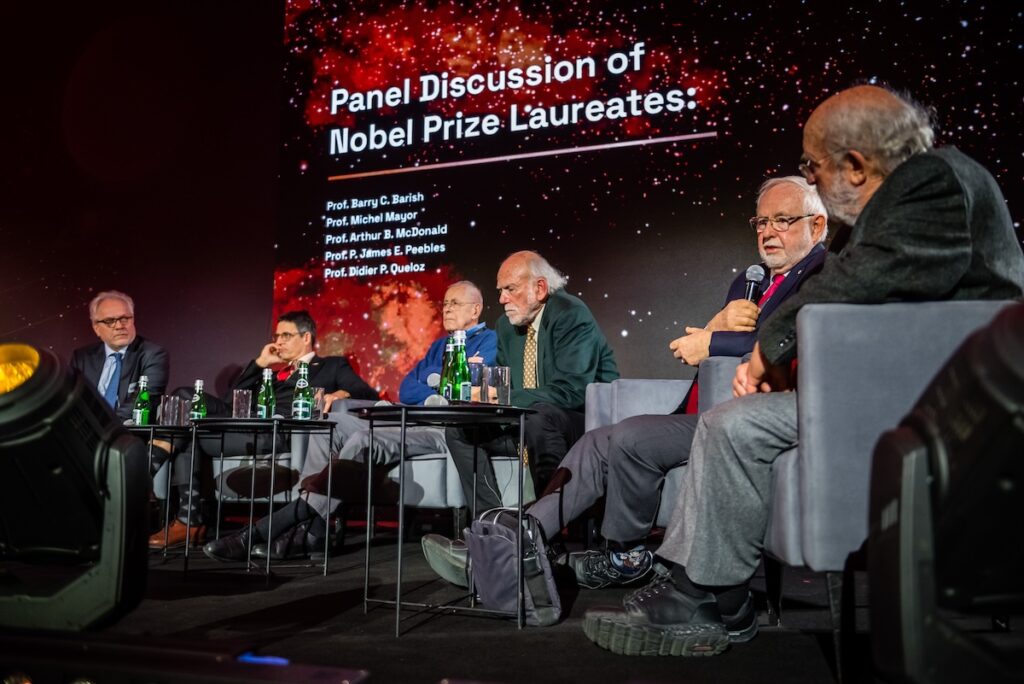
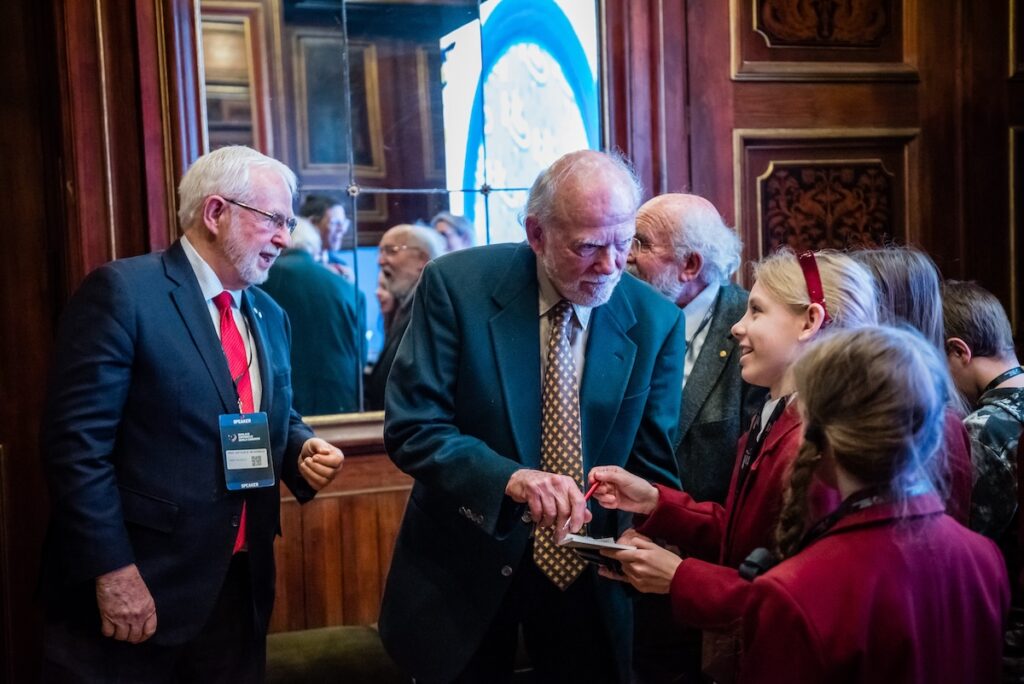
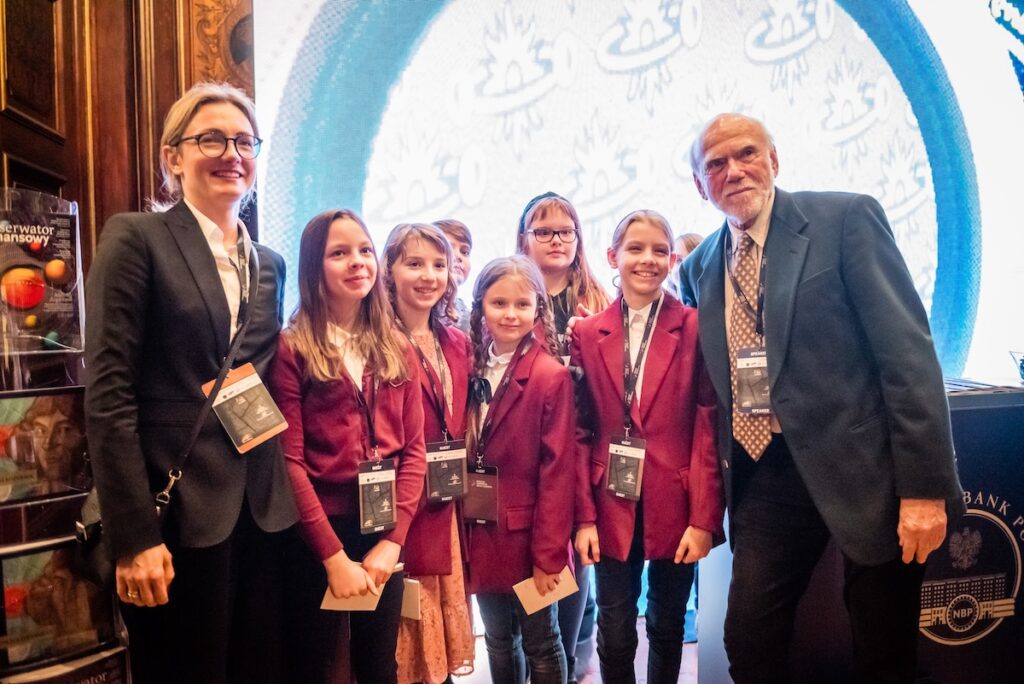
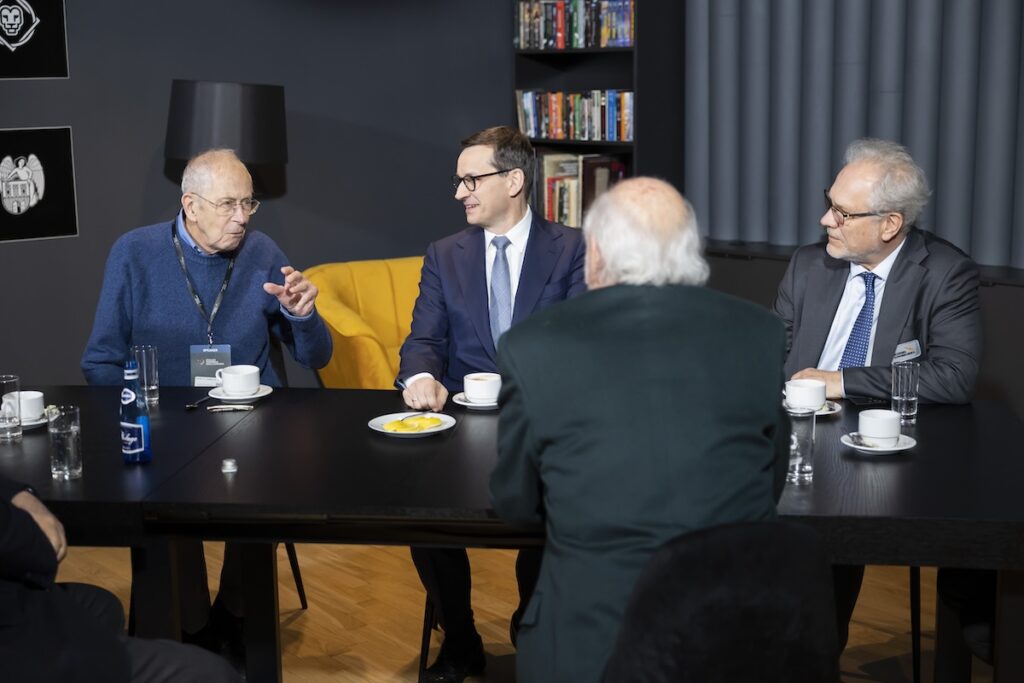
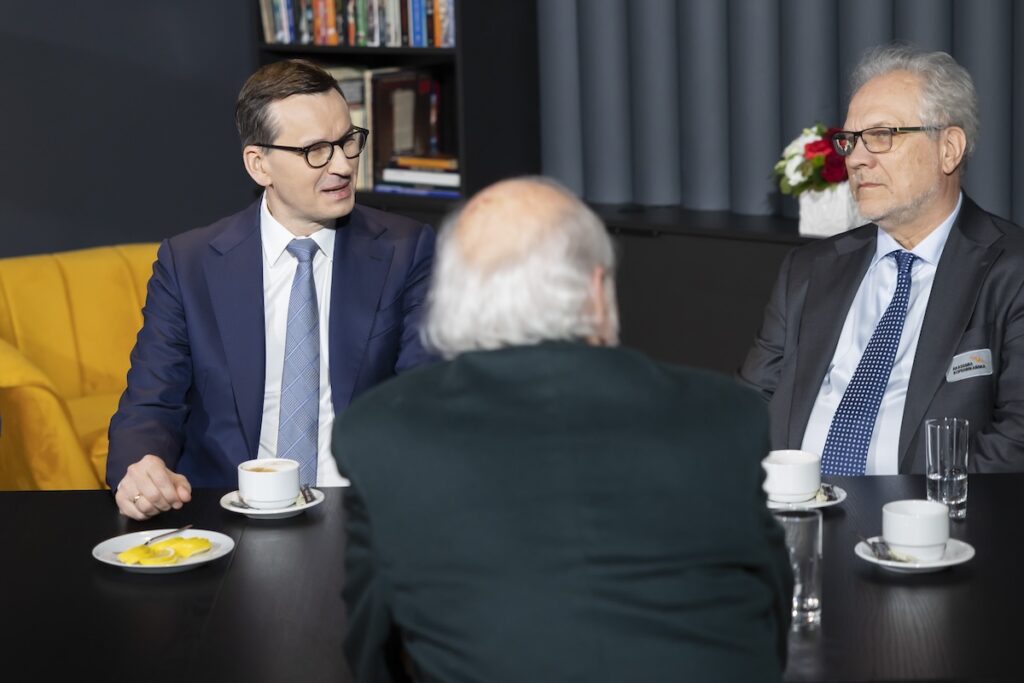
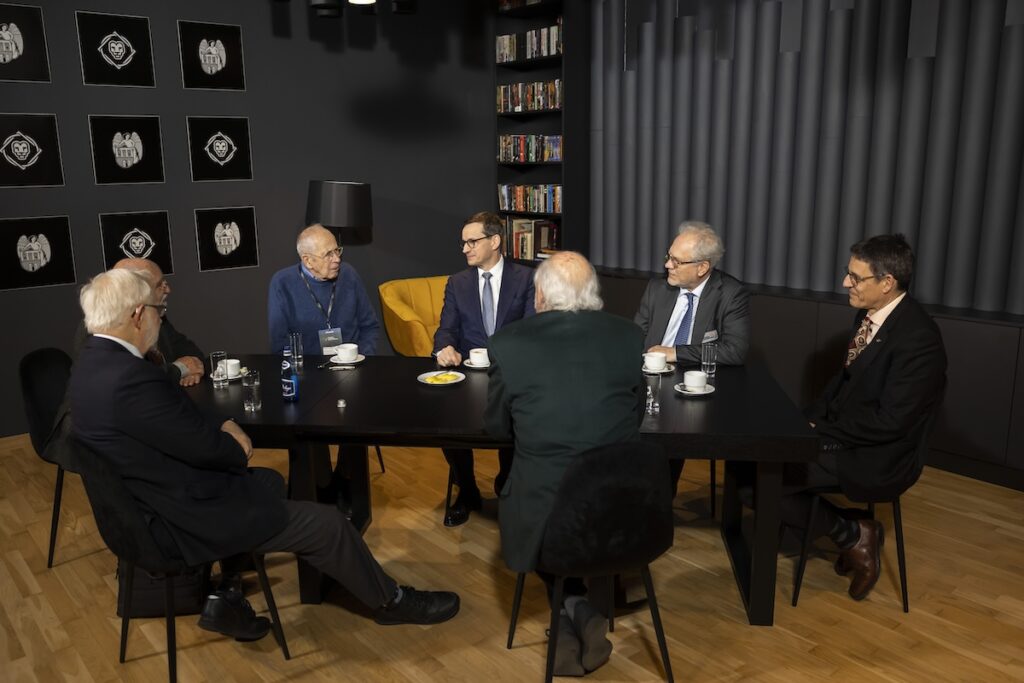
Session “Universe Nearby” – Part II
Participants:
Dr. Dorota Skowron
Dr. Przemek Mróz
Prof. Ingunn Kathrine Wehus
Prof. Tsvi Piran
The Hebrew University of Jerusalem, The Racah Institute of Physics
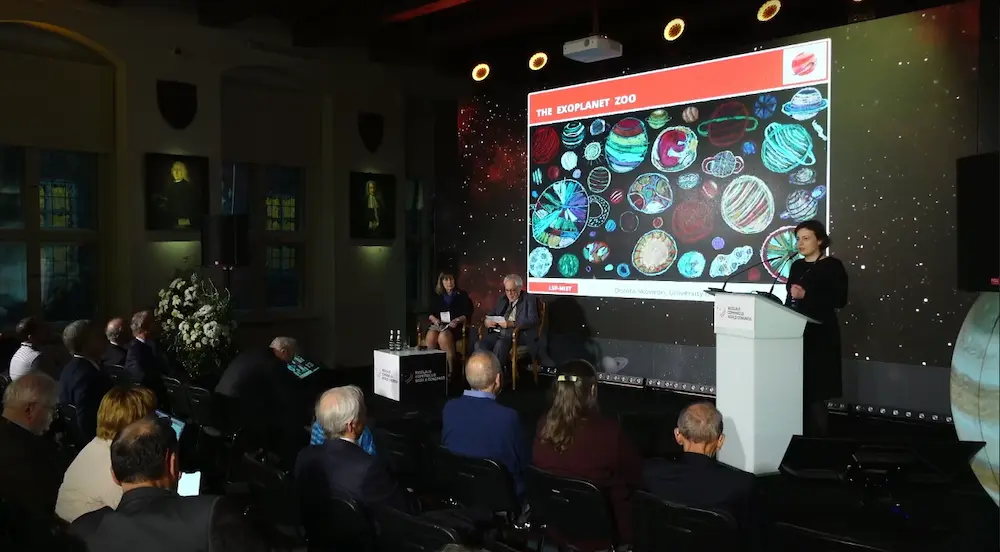
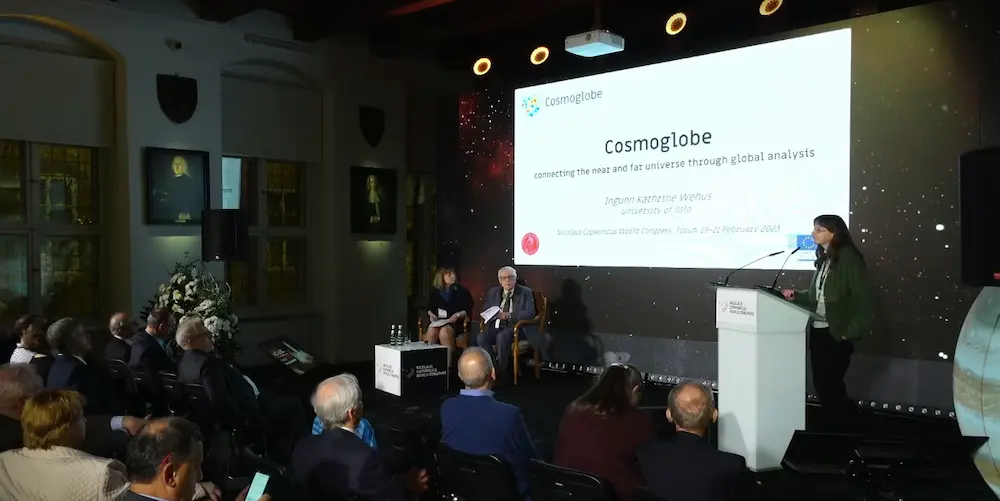
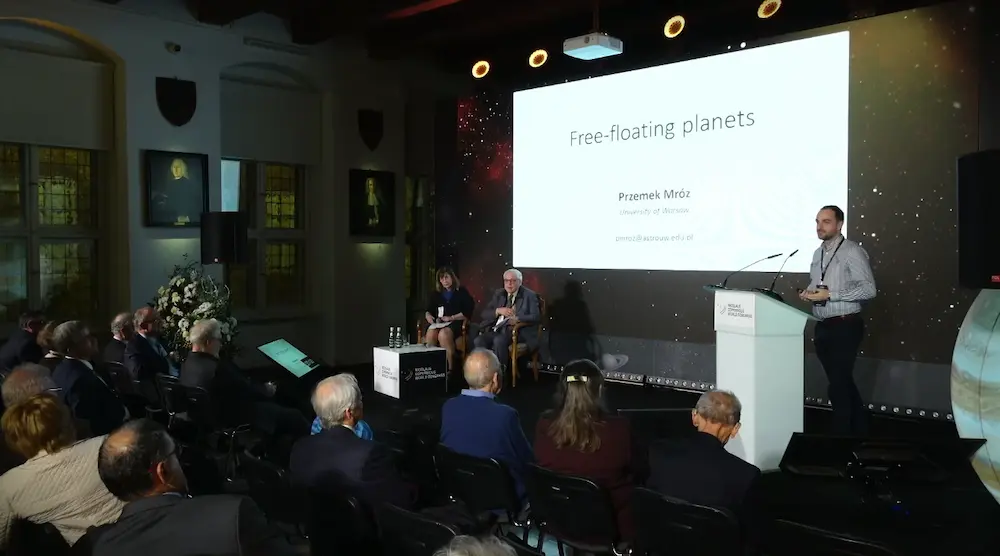
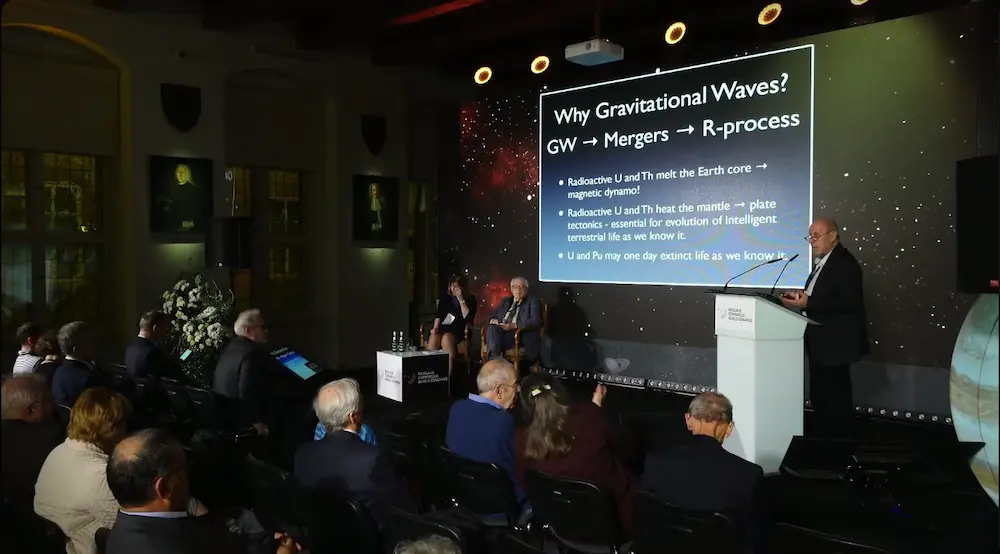
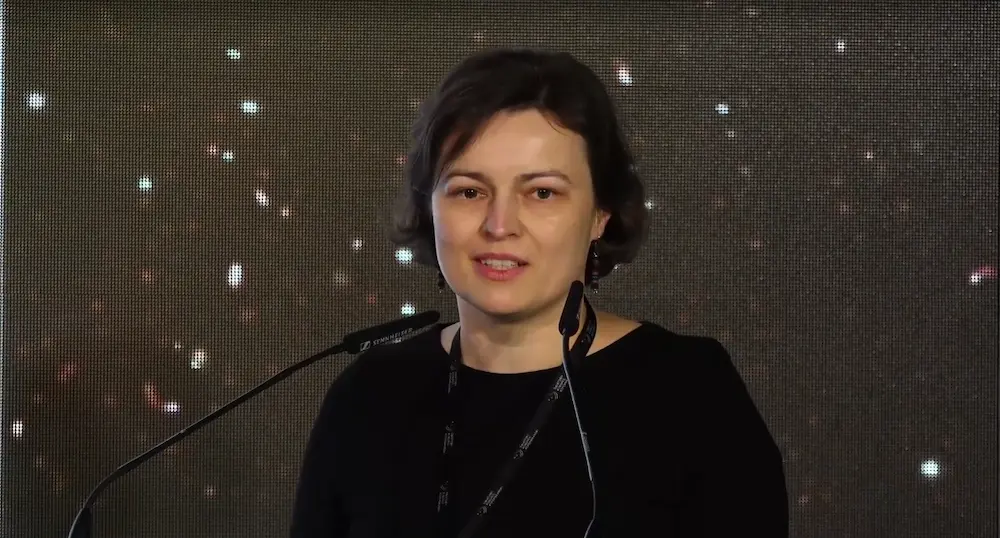
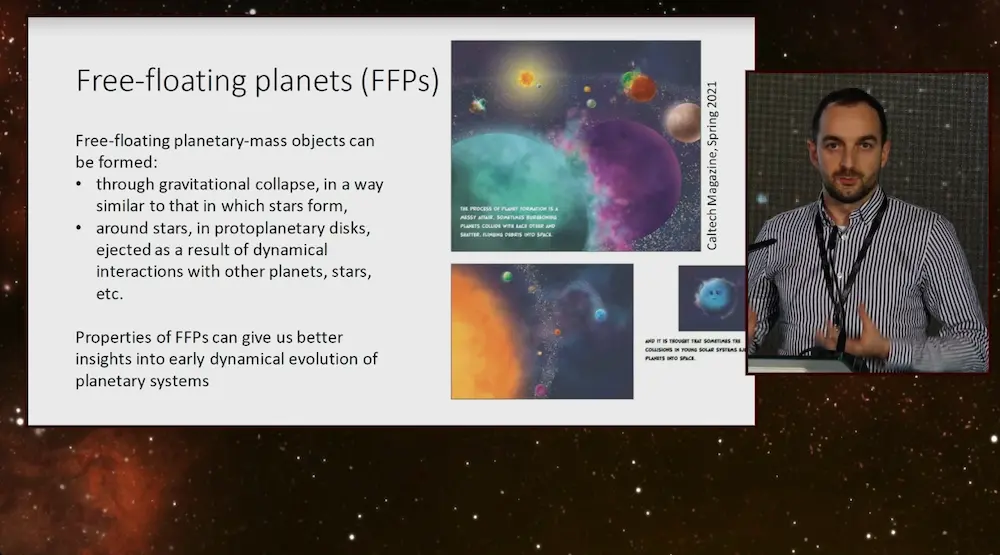
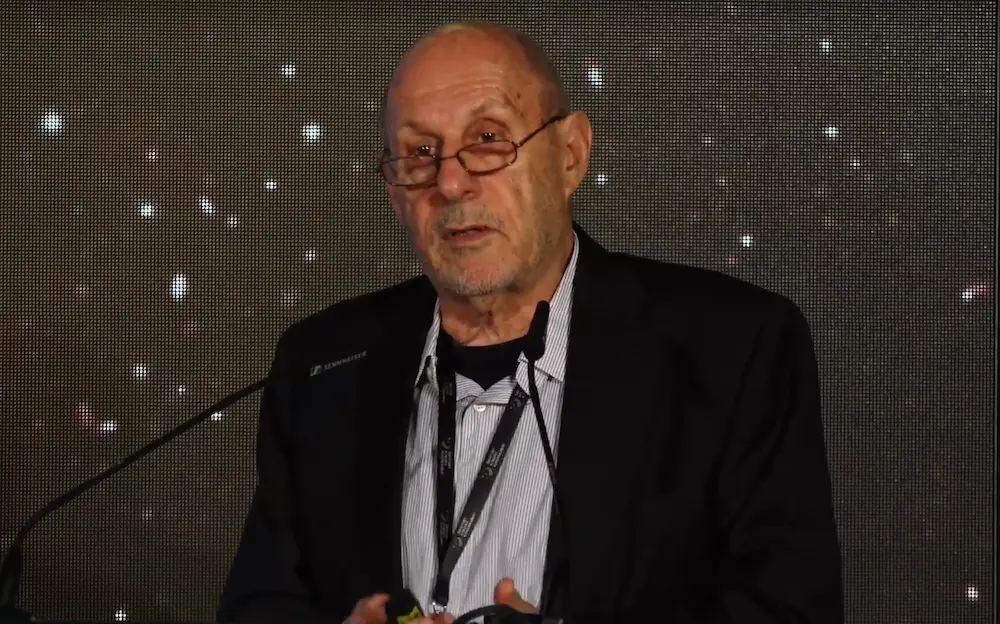
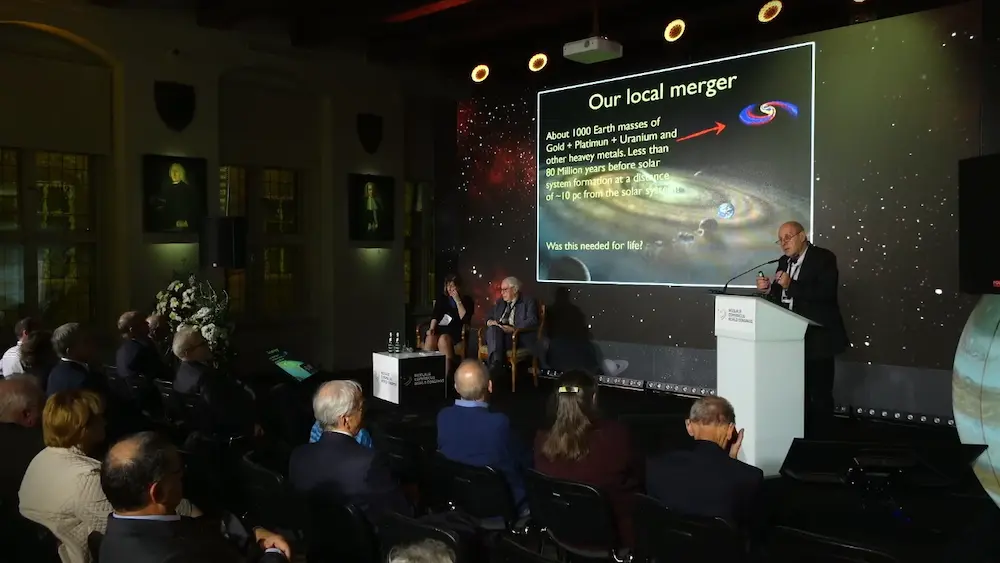
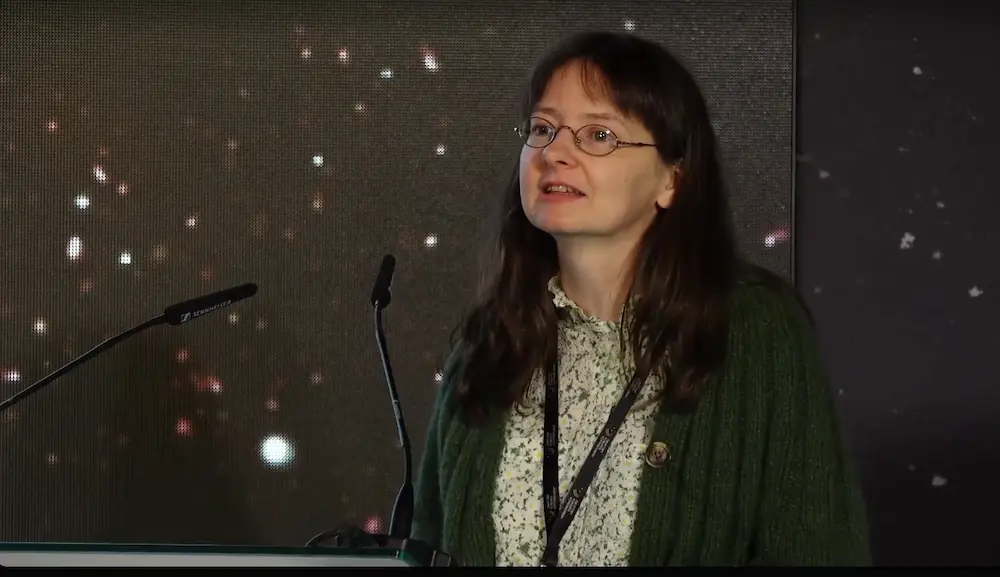
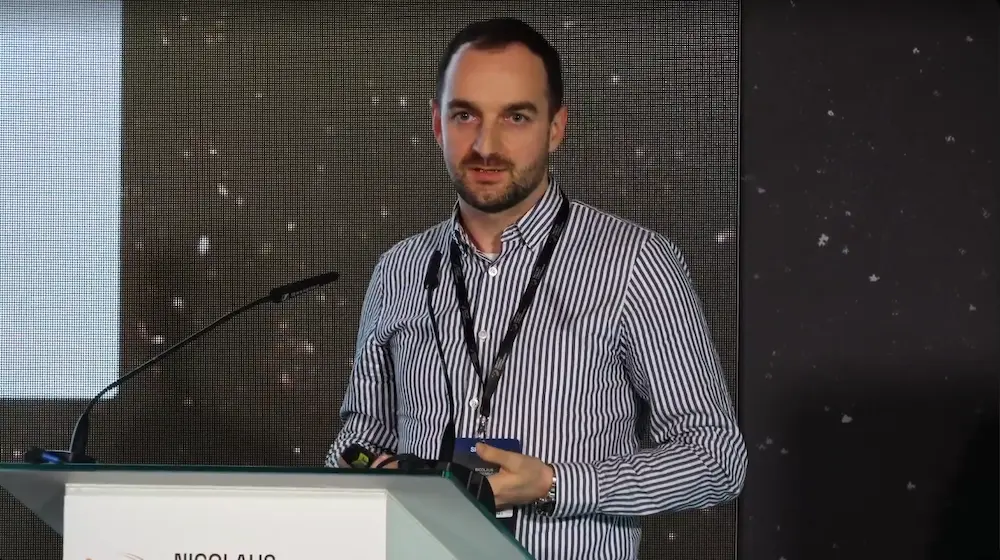
Session No. 2 “Consistency (?) of the Near and Far Universe Probes”
Astronomy / Natural Sciences
Hosts:
Dr. Graça Rocha
Jet Propulsion Laboratory, Pasadena
Prof. Marc Kamionkowski
Johns Hopkins University, Baltimore
Participants:
Prof. George Efstathiou
University of Cambridge
Dr. Bruno Leibundgut
European Southern Observatory, Technische Universität München
Prof. Grzegorz Pietrzyński
Dr. Bartłomiej Zgirski
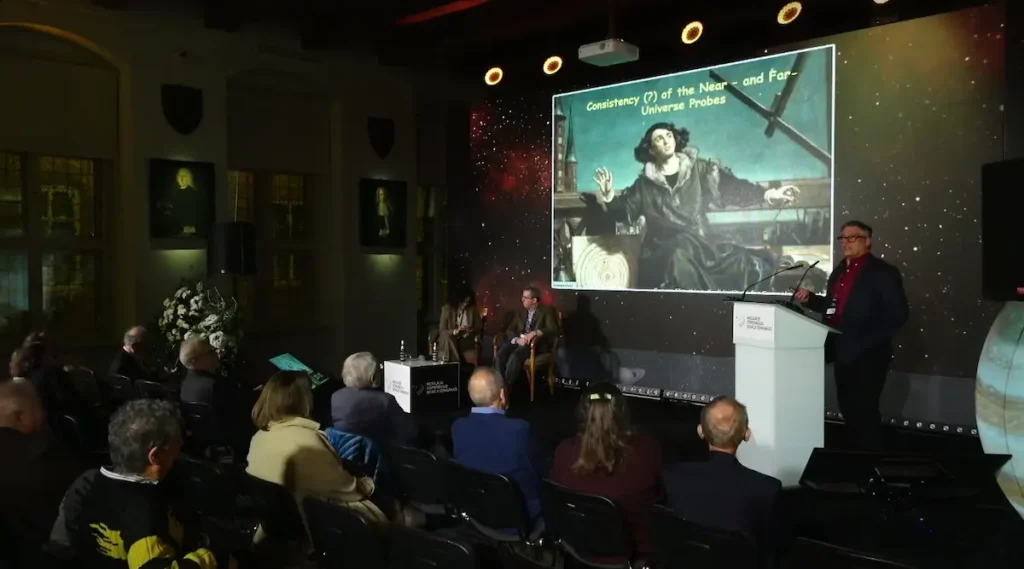
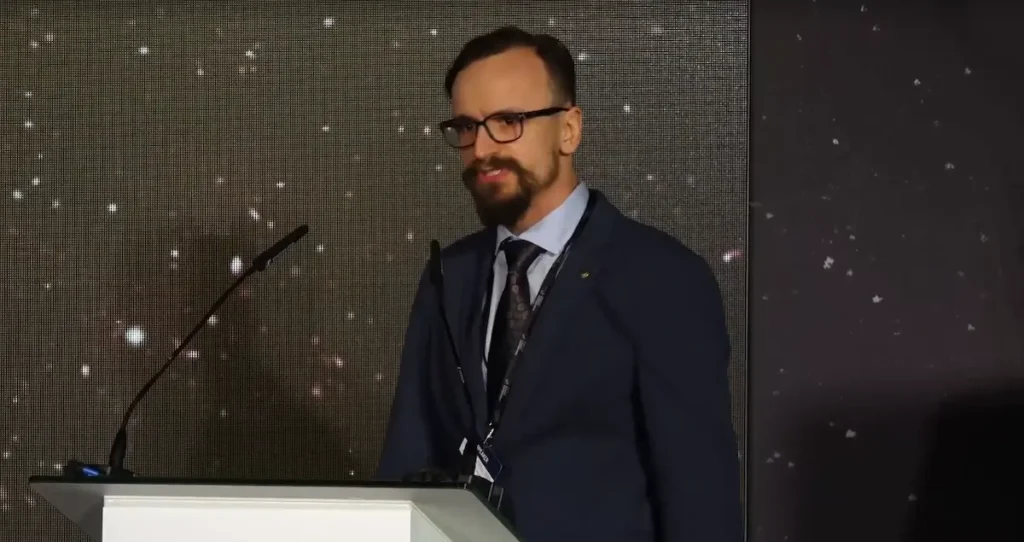
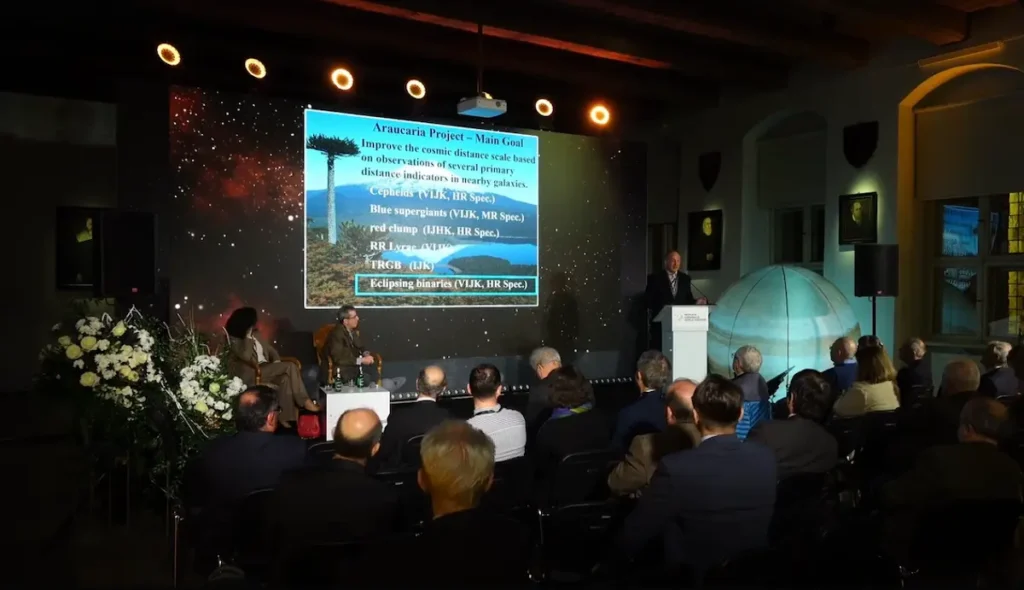
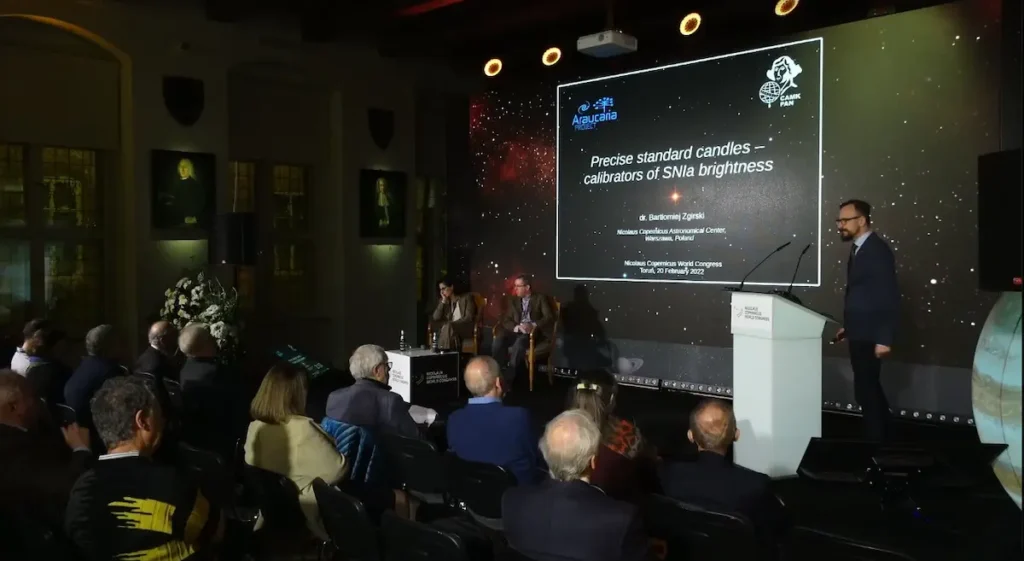
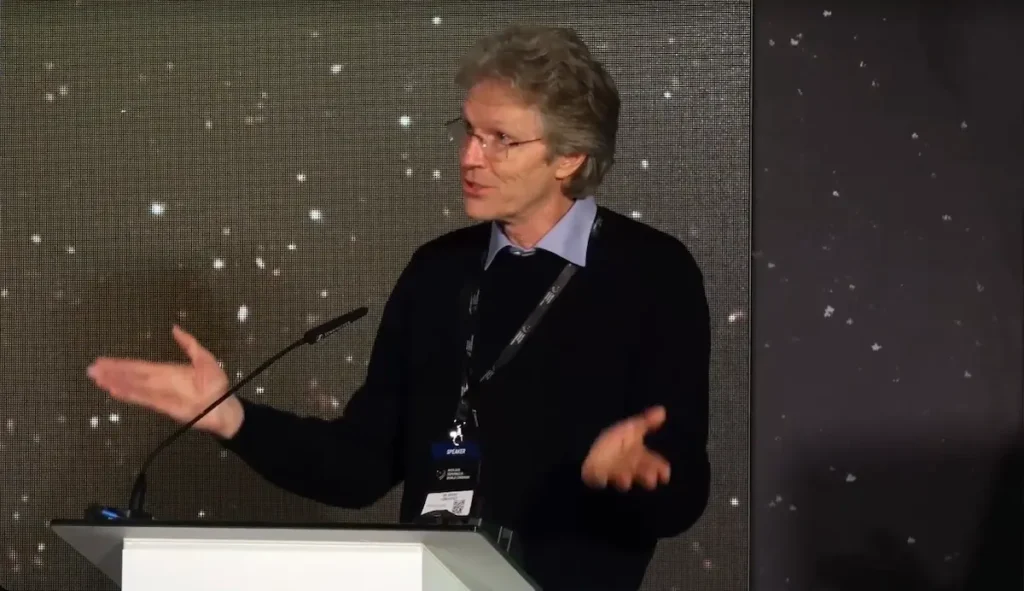
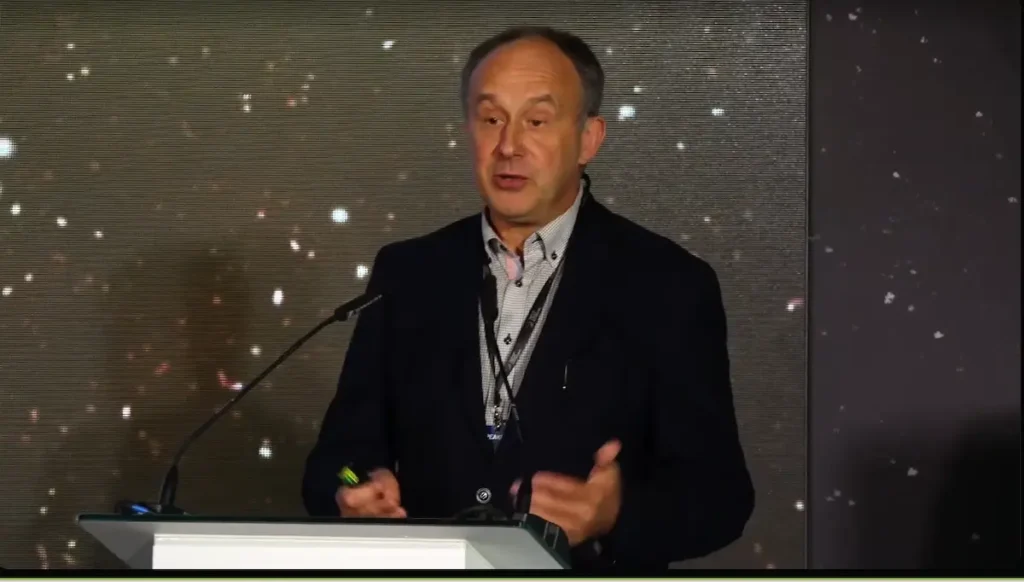
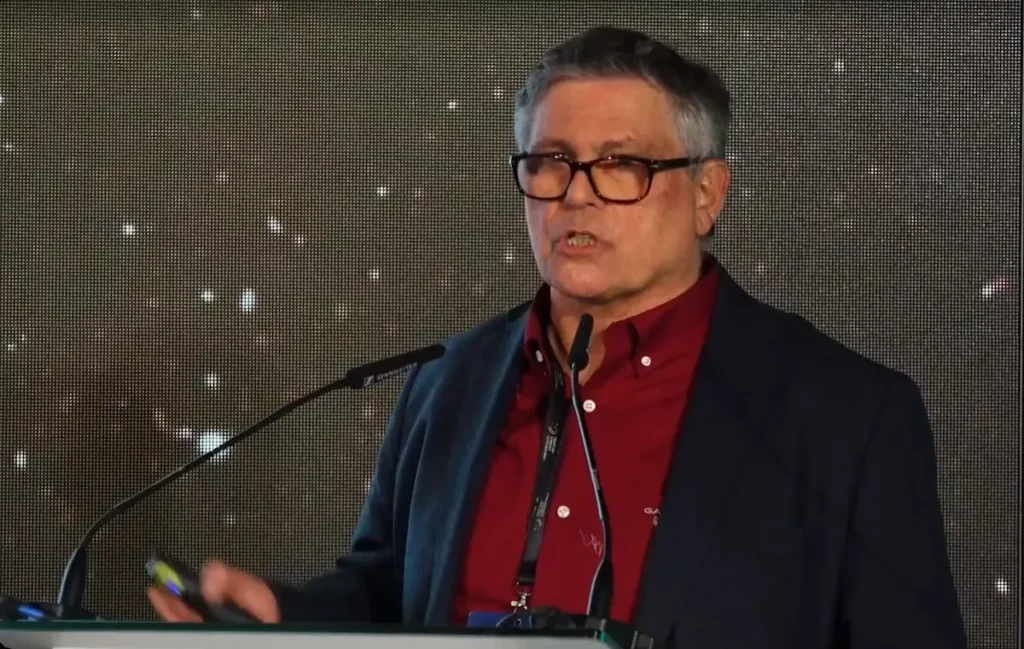
Session No. 3 “Universe – the Far – side”
Astronomy / Natural Sciences
Hosts:
Dr. Nabila Aghanim
Institut d’Astrophysique Spatiale, CNRS, Universite Paris Sud
Prof. Simon D.M. White
Max-Planck Institute for Astrophysics, Garching
Participants:
Prof. Anthony Challinor
Director, Kavli Institute for Cosmology, Cambridge
Prof. Rien van de Weijgaert
Kapteyn Institute, University of Groningen
Prof. Douglas Scott
University of British Columbia
Prof. Benjamin Wandelt
Sorbonne University, Institute Lagrange de Paris
Dr. Nabila Aghanim
Institut d’Astrophysique Spacial, French National Centre for Scientific Research, Universite Paris Sud
Prof. Rashid Sunyaev
Director Emeritus of the Max-Planck Institute for Astrophysics in Garching
Prof. dr Günther Gustav Hasinger
European Space Agency, Director of Science
Prof. Simon D. M. White
The Max Planck Institute for Astrophysics in Garching
Prof. Carlos S. Frenk
Durham University
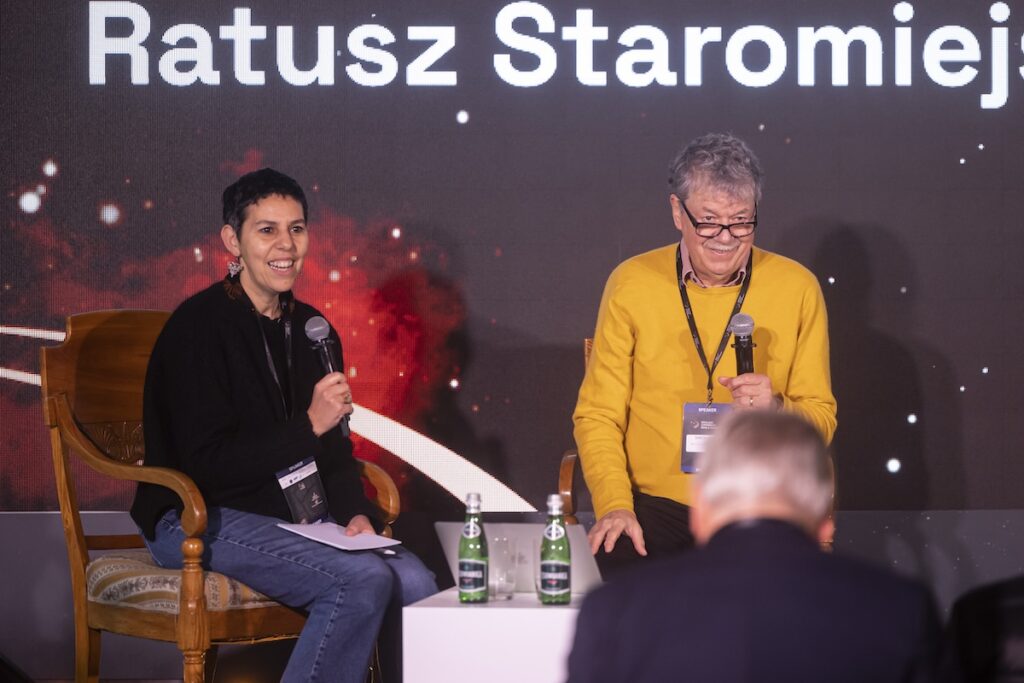
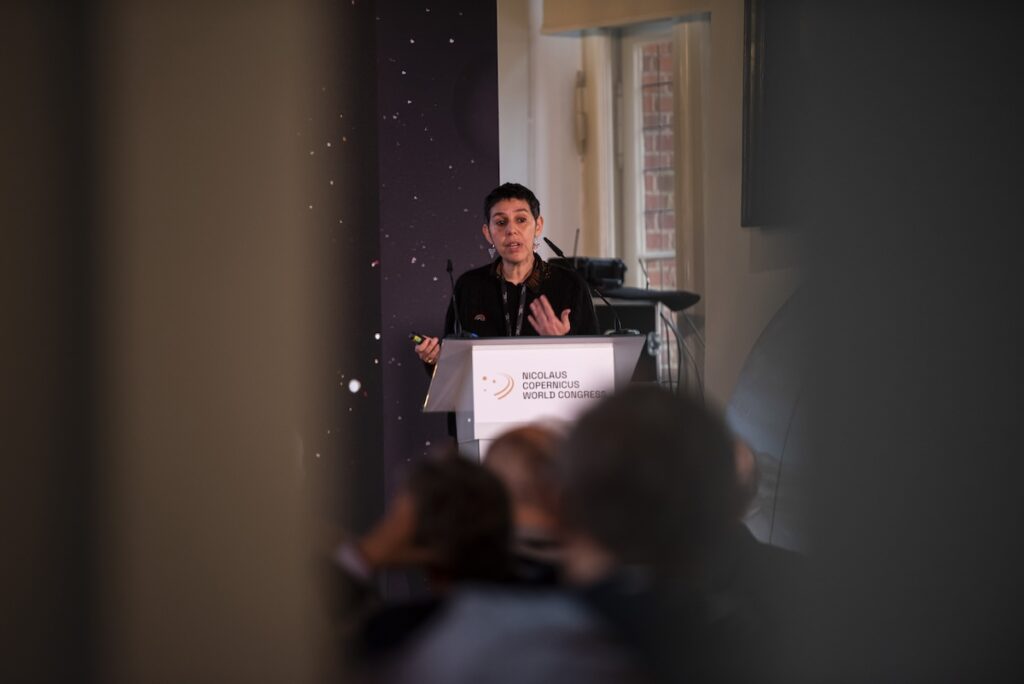
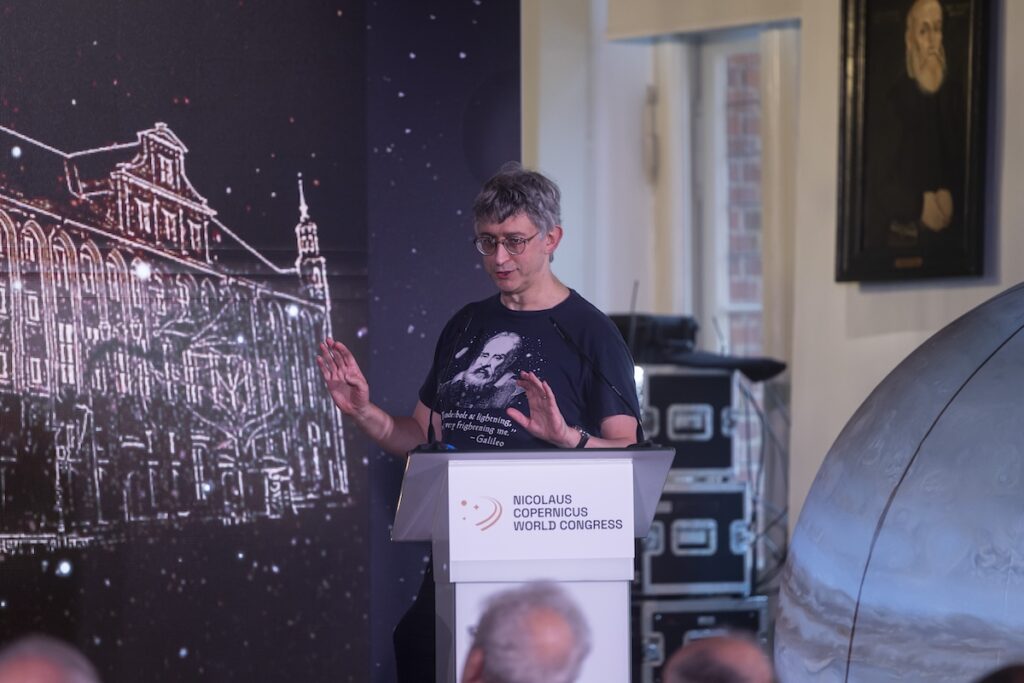
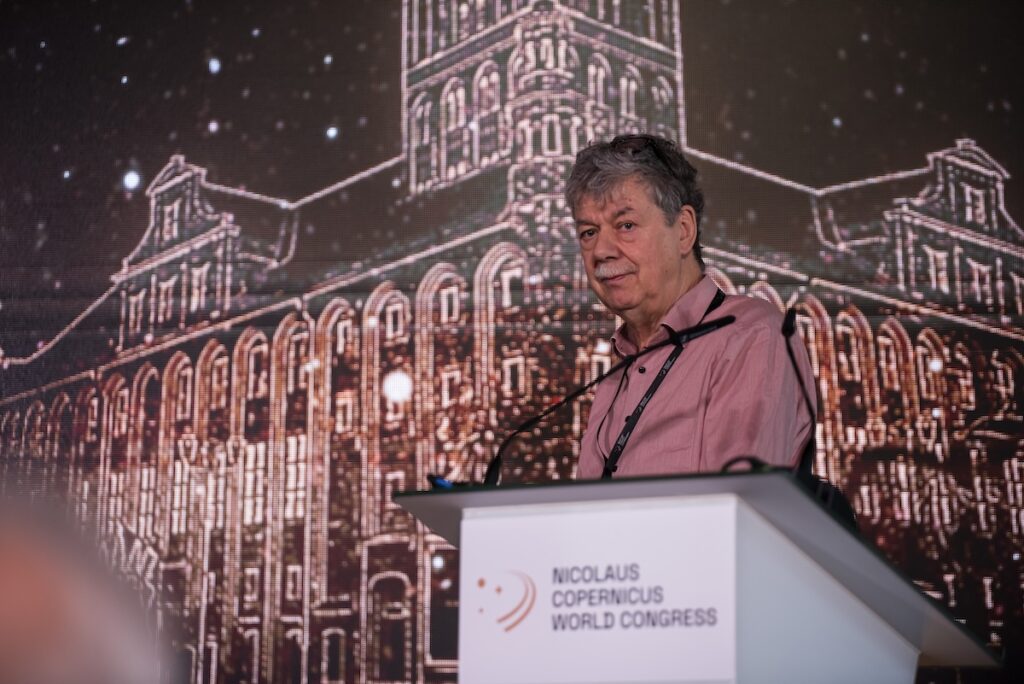
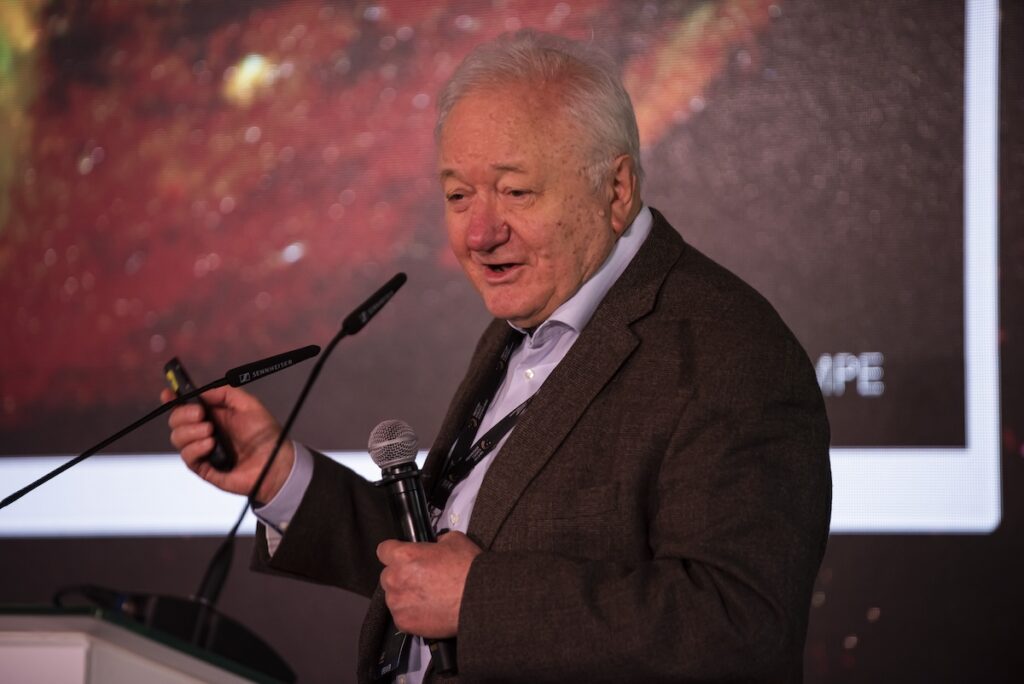
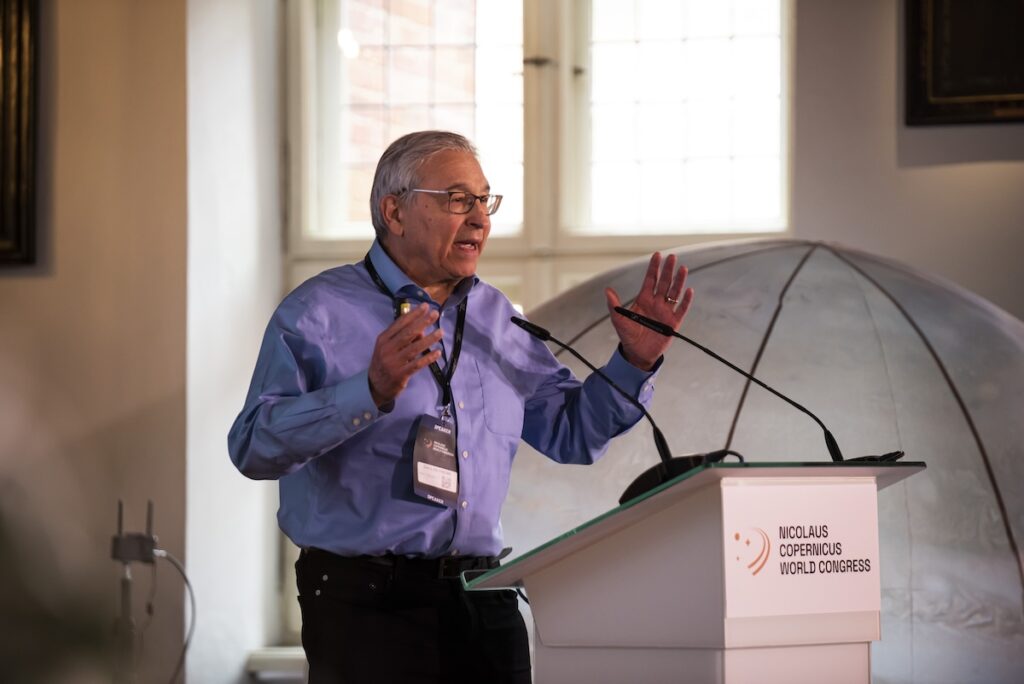
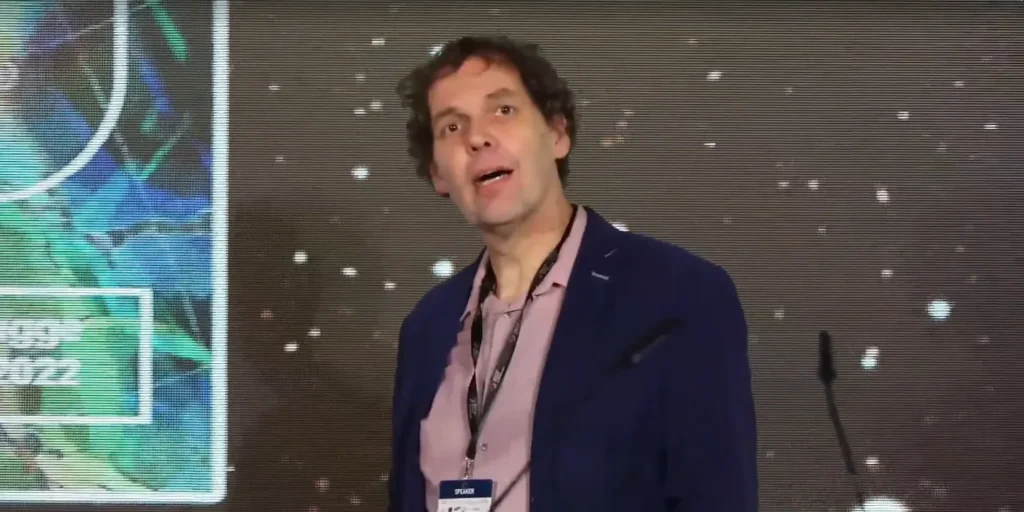
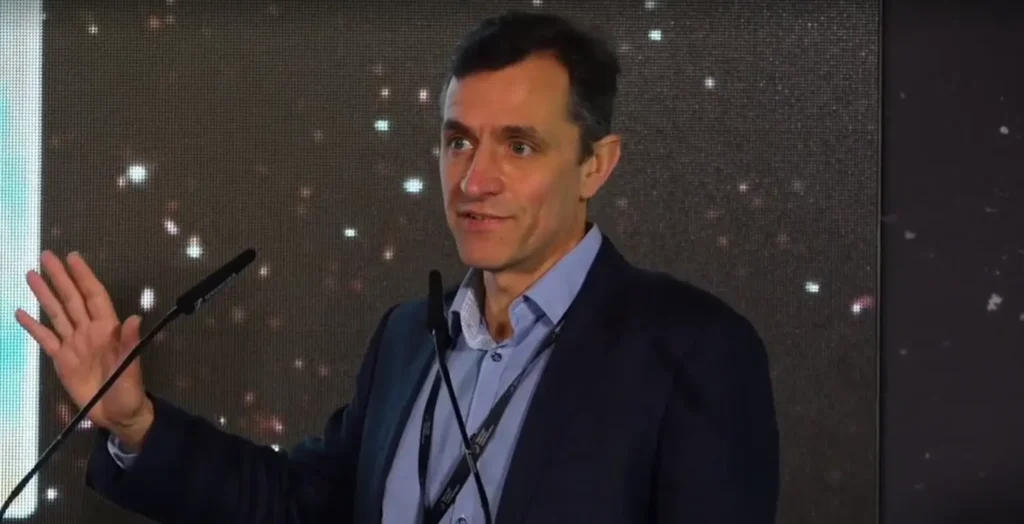
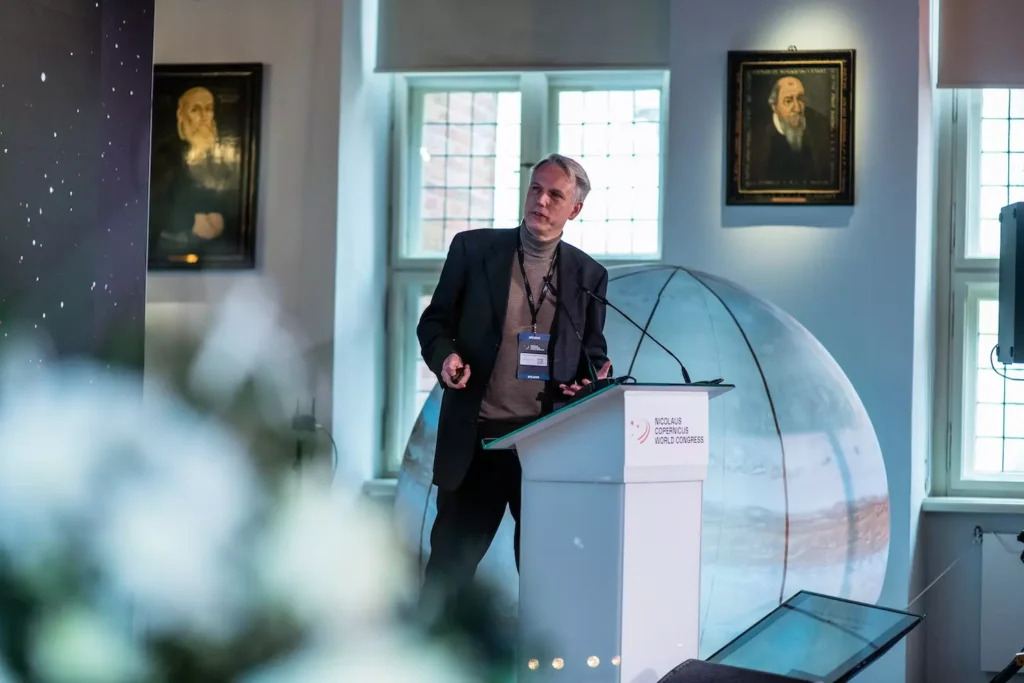
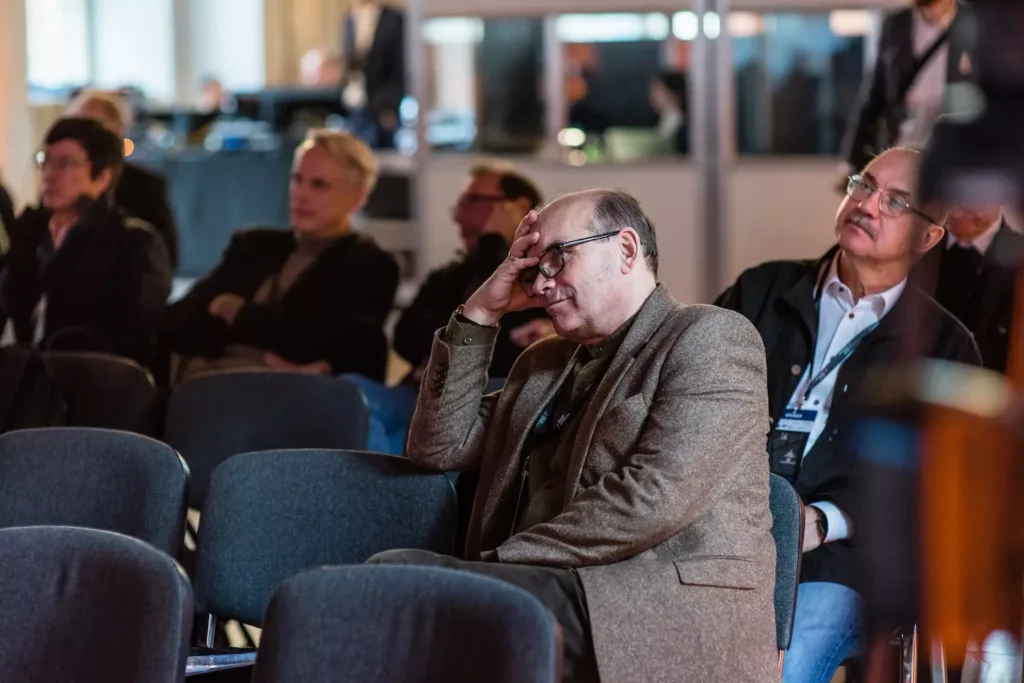
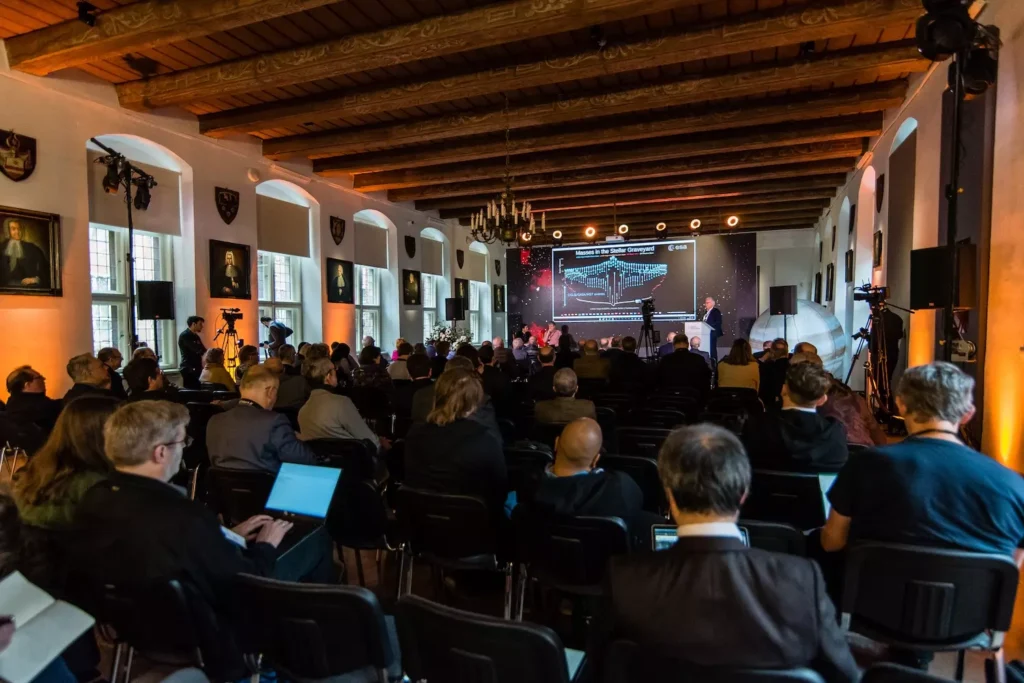
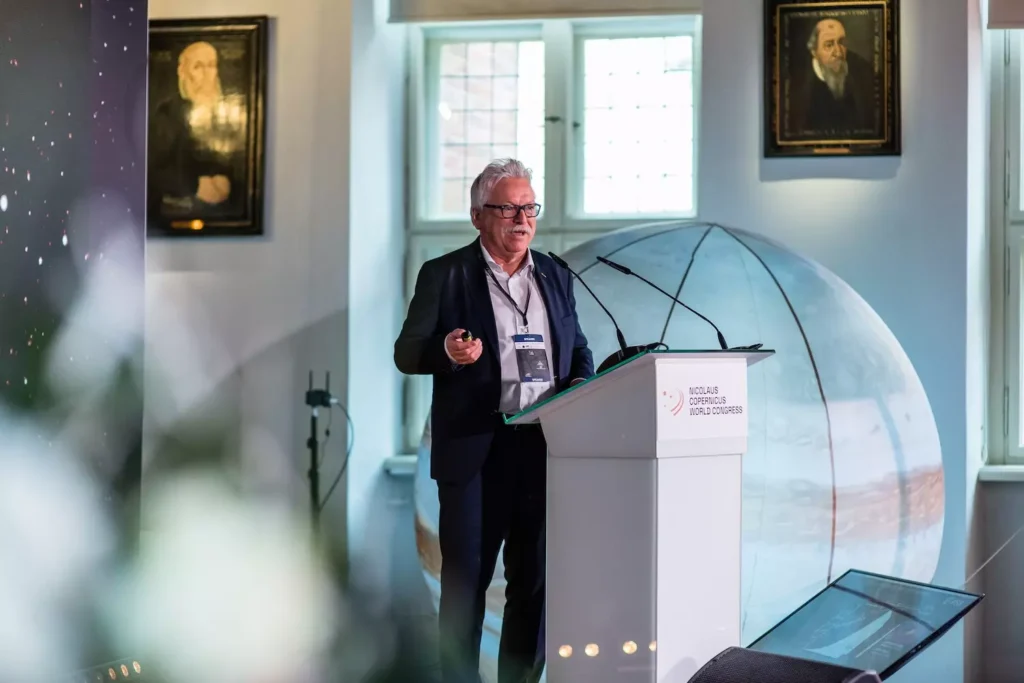
Panel Discussion: “Exploration of the Cosmic Microwave Background – The Future”
Hosts:
Dr. Graça Rocha
Jet Propulsion Laboratory, Pasadena
Prof. Marc Kamionkowski
Participants:
Prof. Marc Kamionowski
Johns Hopkins University, Baltimore
Prof. John E. Carlstrom
University of Chicago
Prof. Masashi Hazumi
High Energy Accelerator Research Organization – KEK, Kavli Institute for the Physics and Mathematics of the Universe, Tokyo University
Prof. Lyman A. Page
Princeton University
Prof. Rafael Rebolo
Institute of Astrophysics of the Canary Islands
Prof. Jens Chluba
University of Manchester
Dr. Charles Lawrence
Jet Propulsion Laboratory, Pasadena
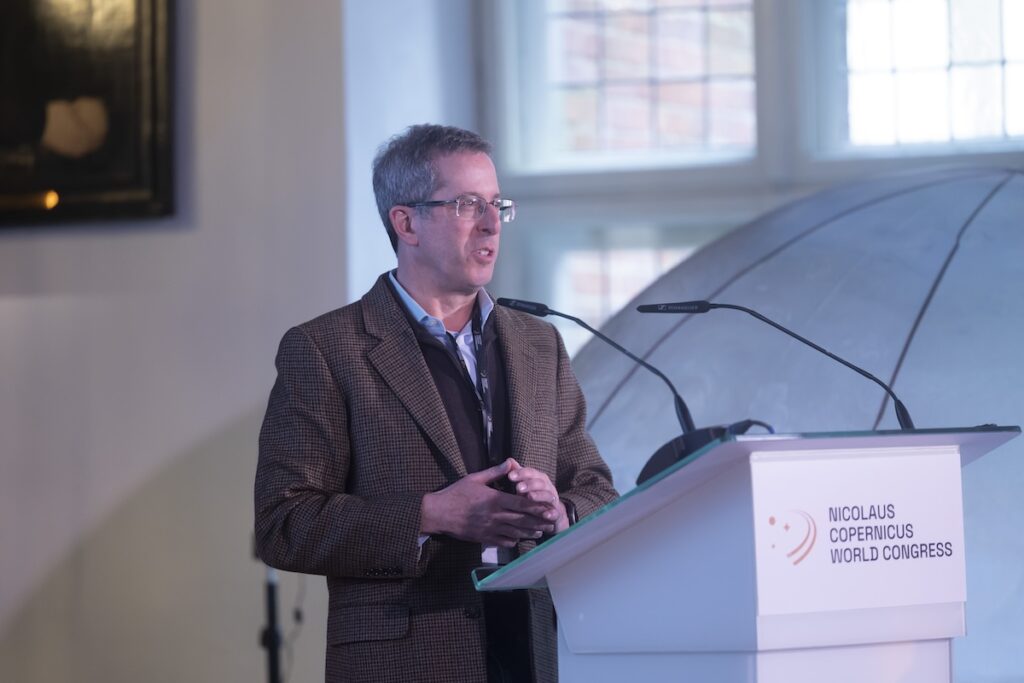
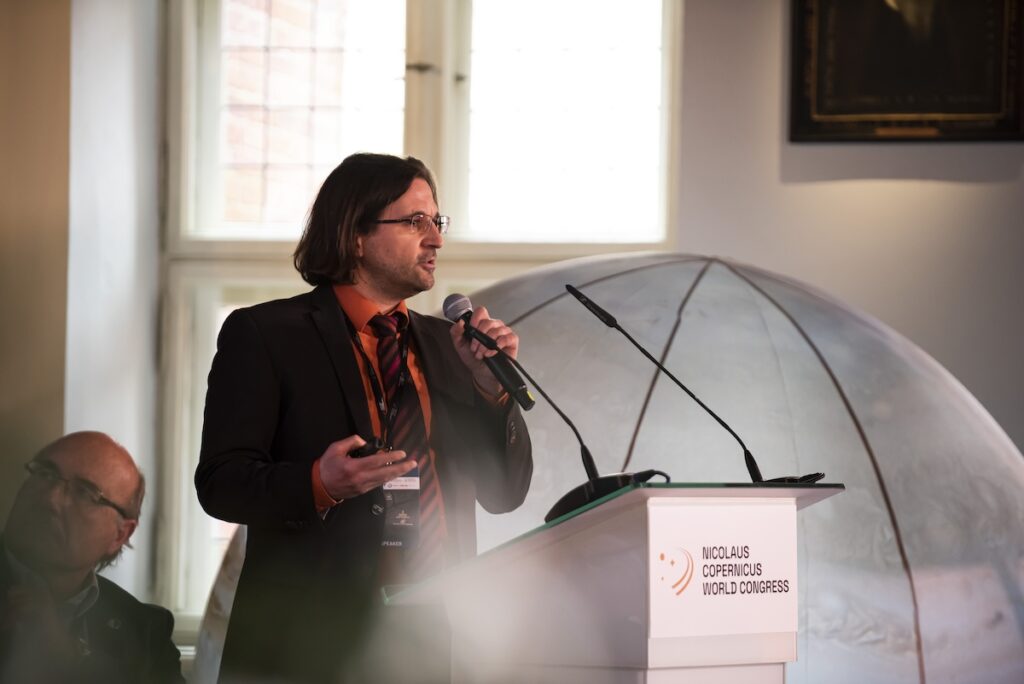
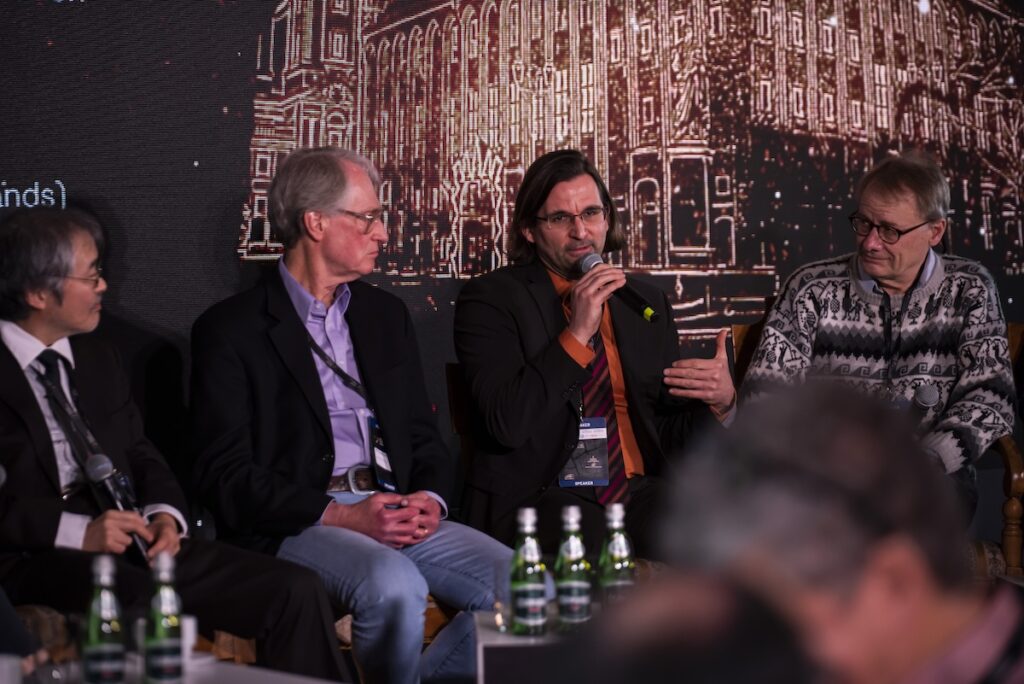
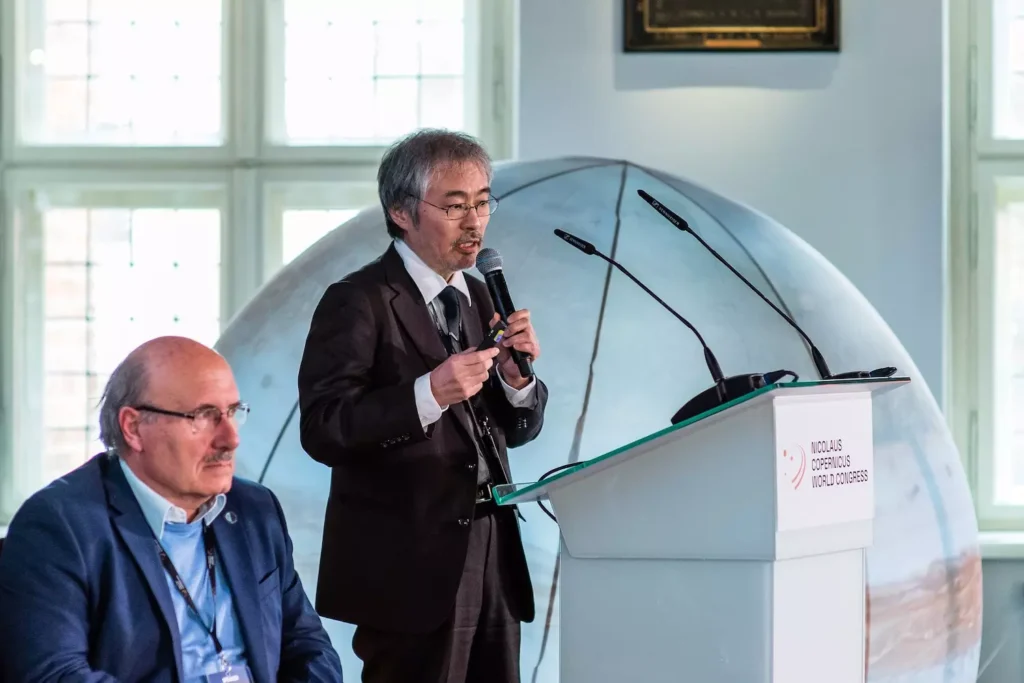
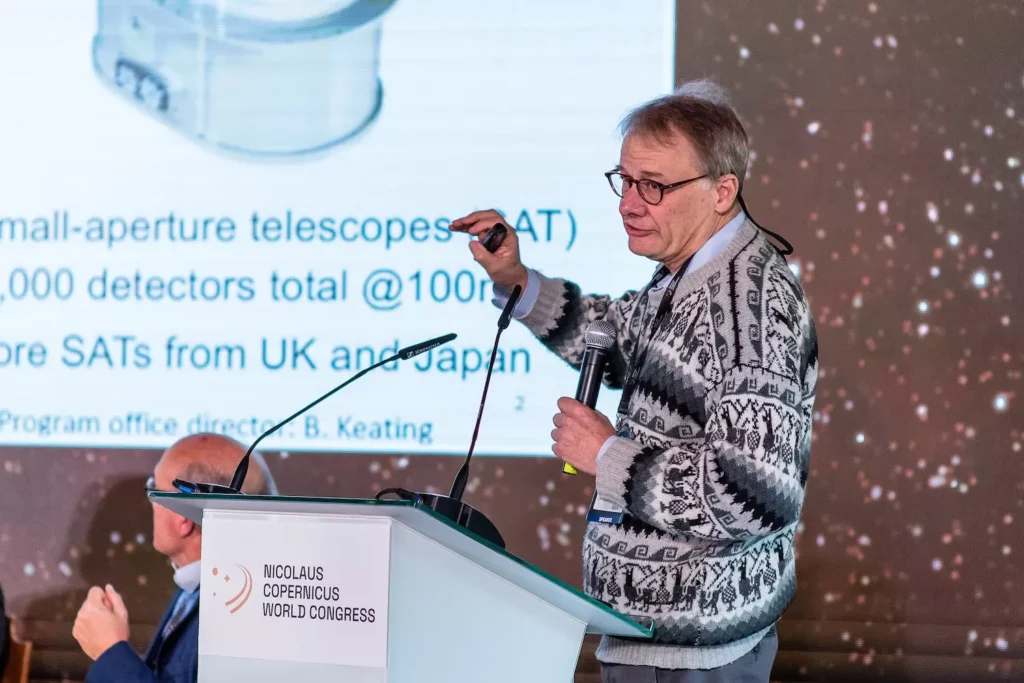
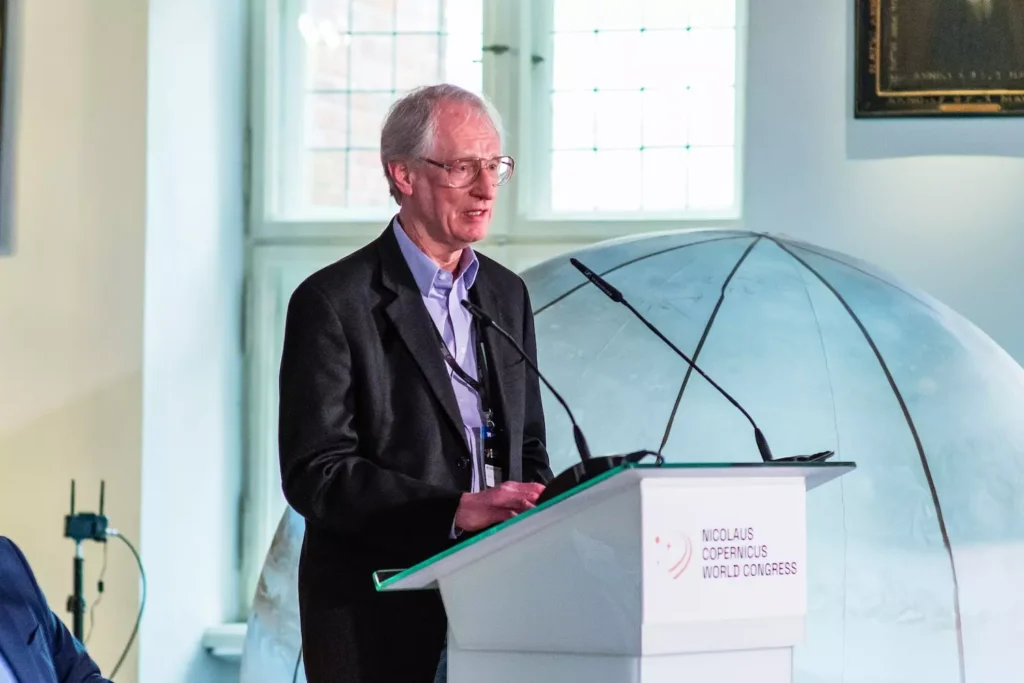
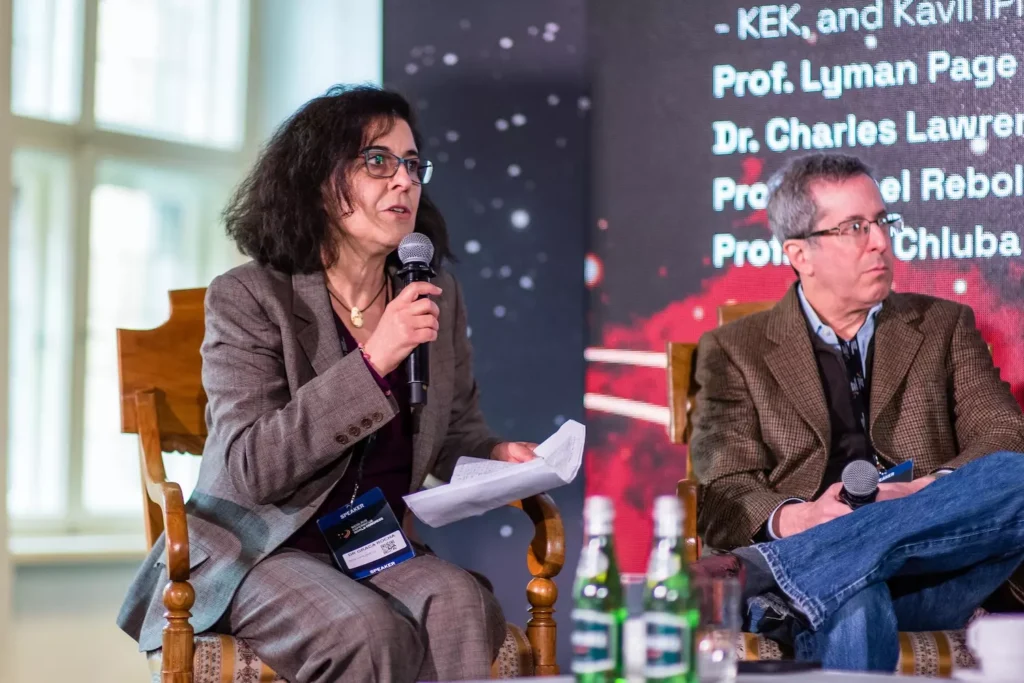
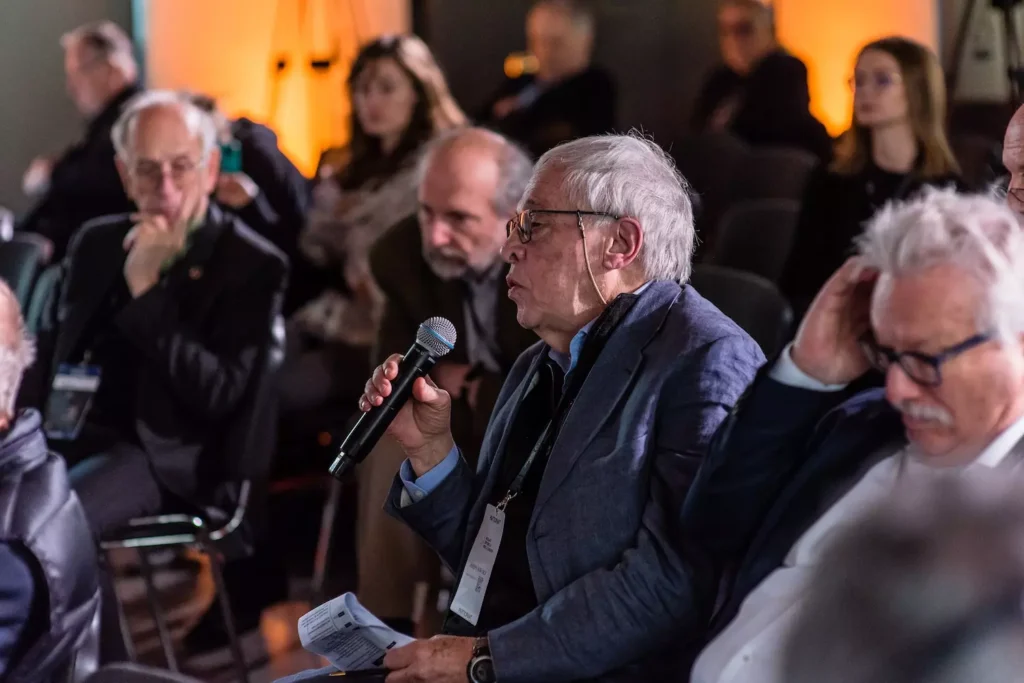
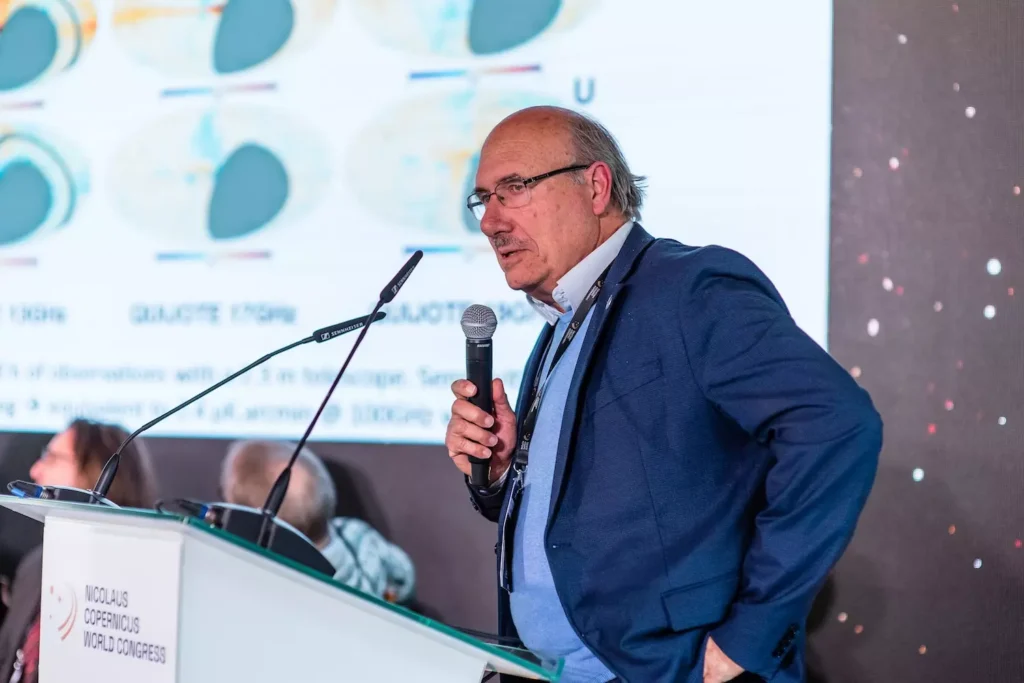
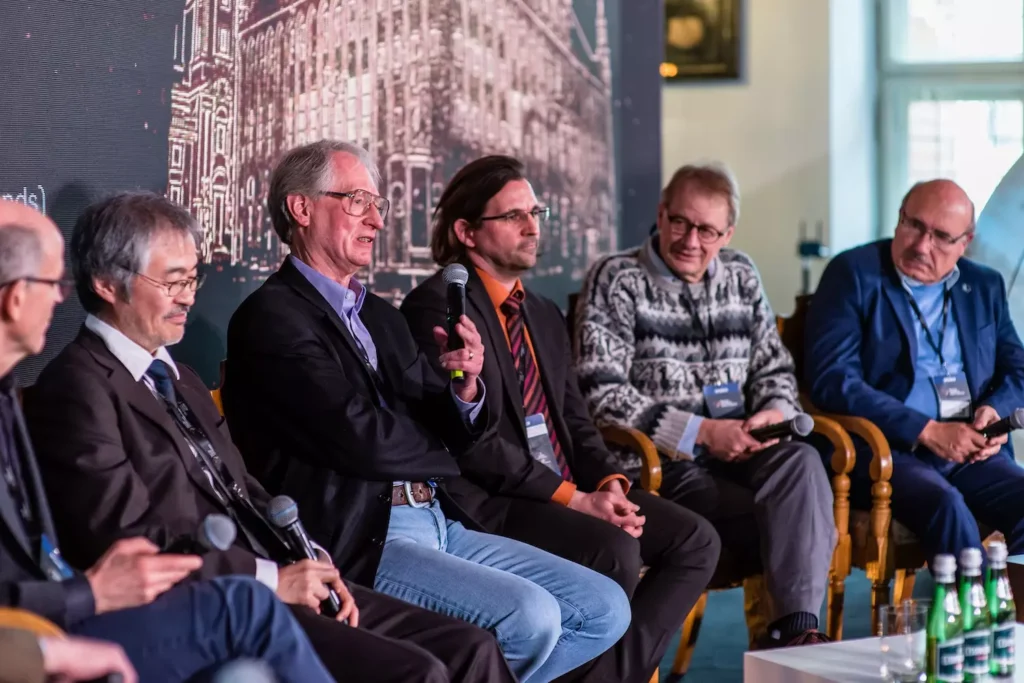
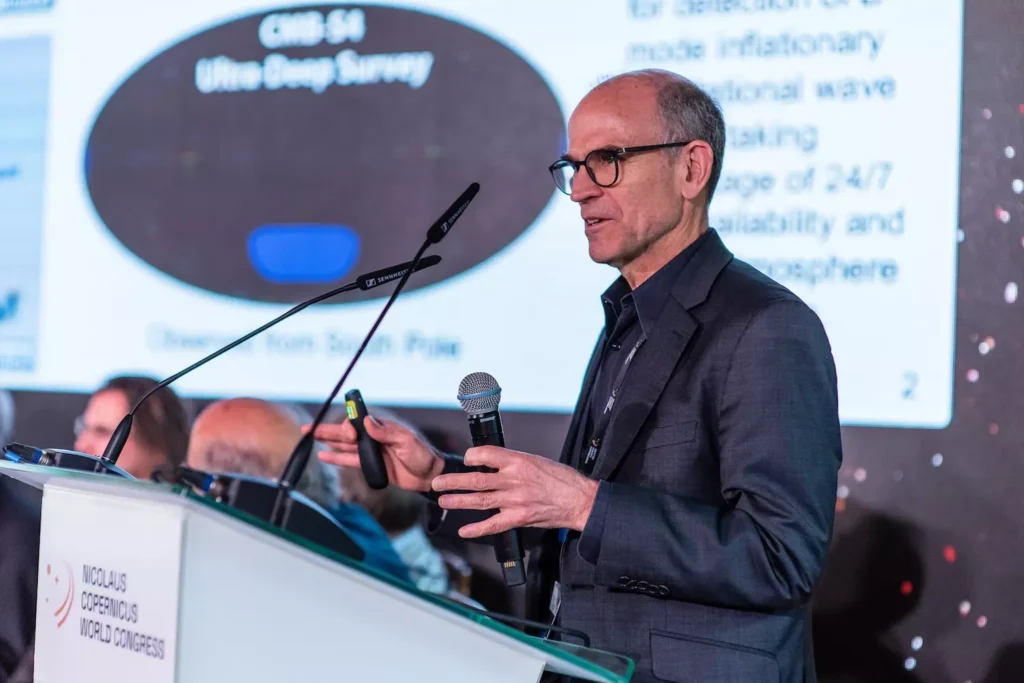
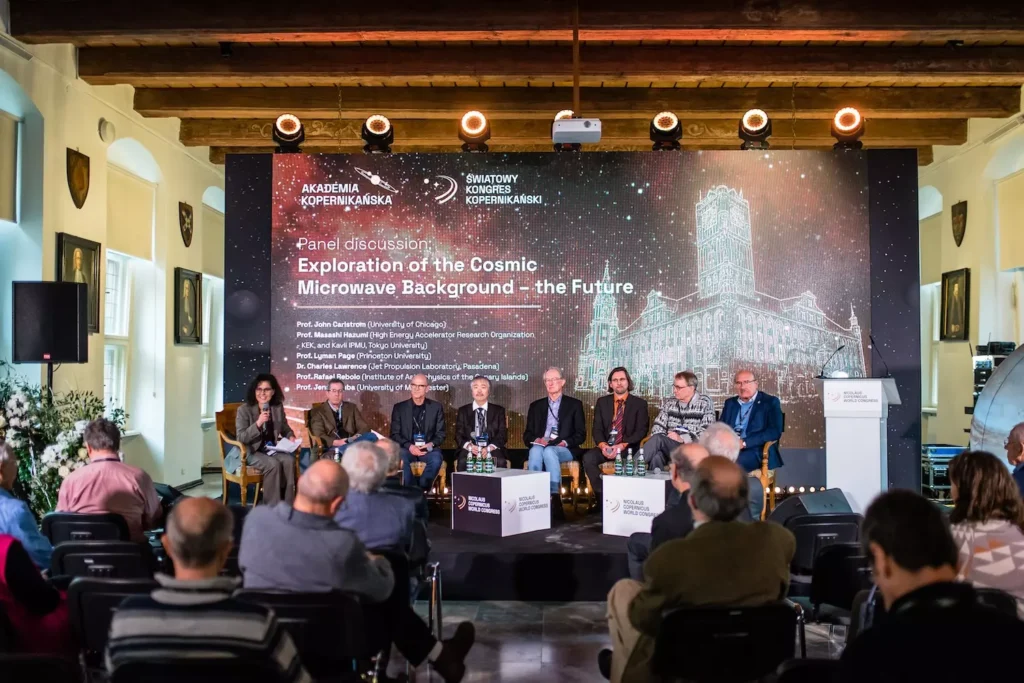
Session No. 4 “Universe – the Near – side”
Astronomy / Natural Sciences
Hosts:
Prof. Tsvi Piran
HUJ, Racah Institute of Physics
Prof. Hans Kristian Eriksen
Participants:
Dr. Grzegorz M. Madejski
Kavli Institute for Particle Astrophysics SLAC, Stanford University
Dr. Łukasz Stawarz
Dr. Maciej Wielgus
Max-Planck Institute for Radio Astronomy, Bonn
Prof. Włodzimierz Kluźniak
Ruchi Mishra, PhD student
Fatemeh Kayanikhoo, PhD student
Prof. Bharat Ratra
Kansas State University
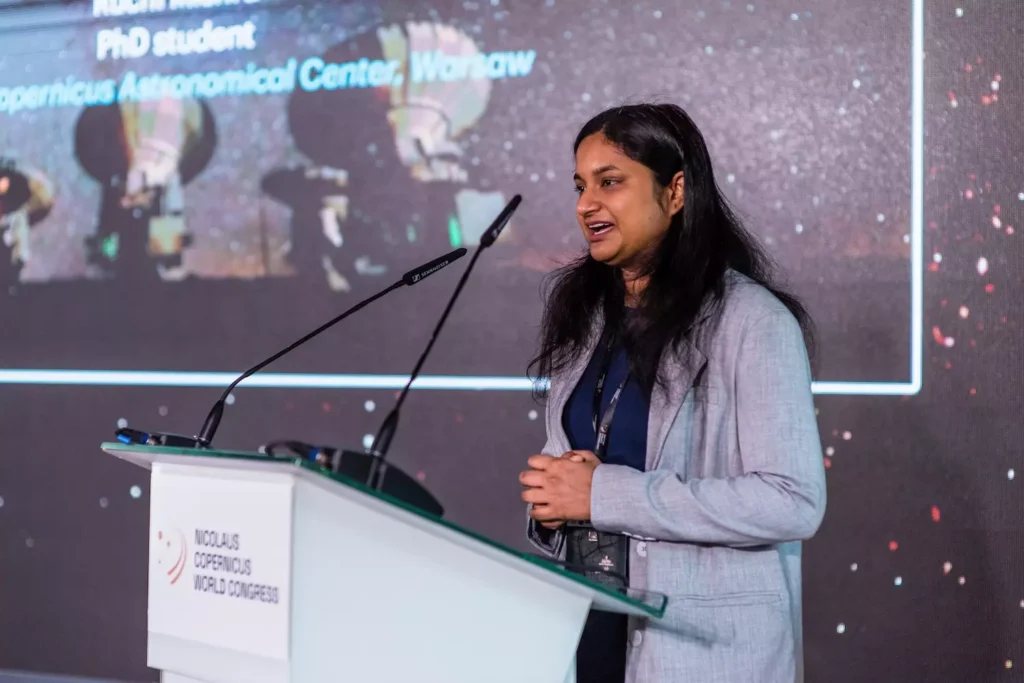
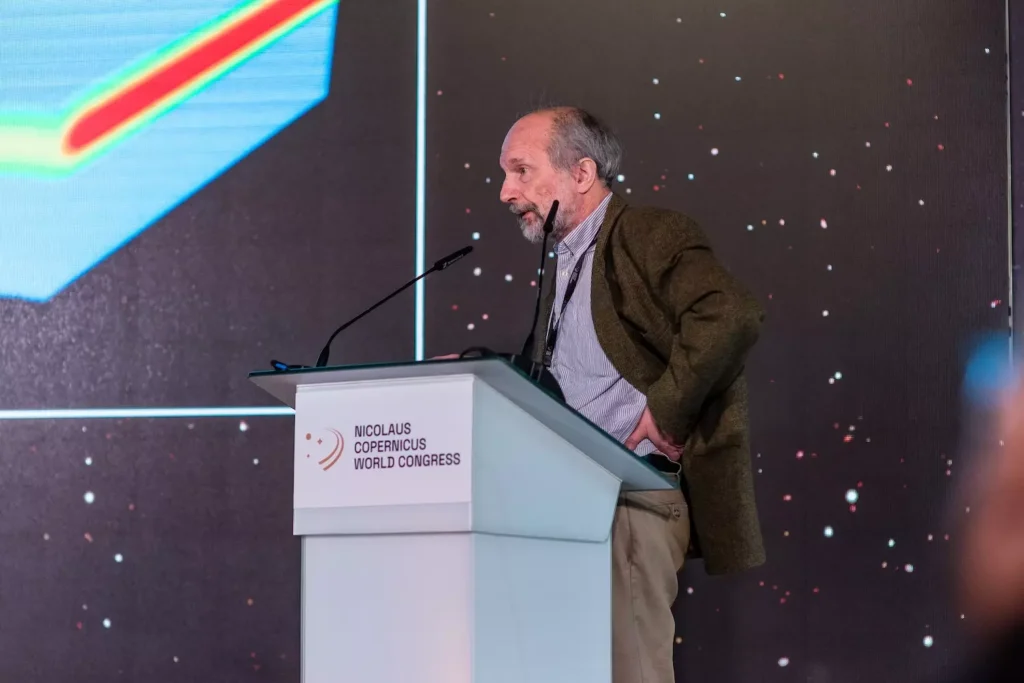
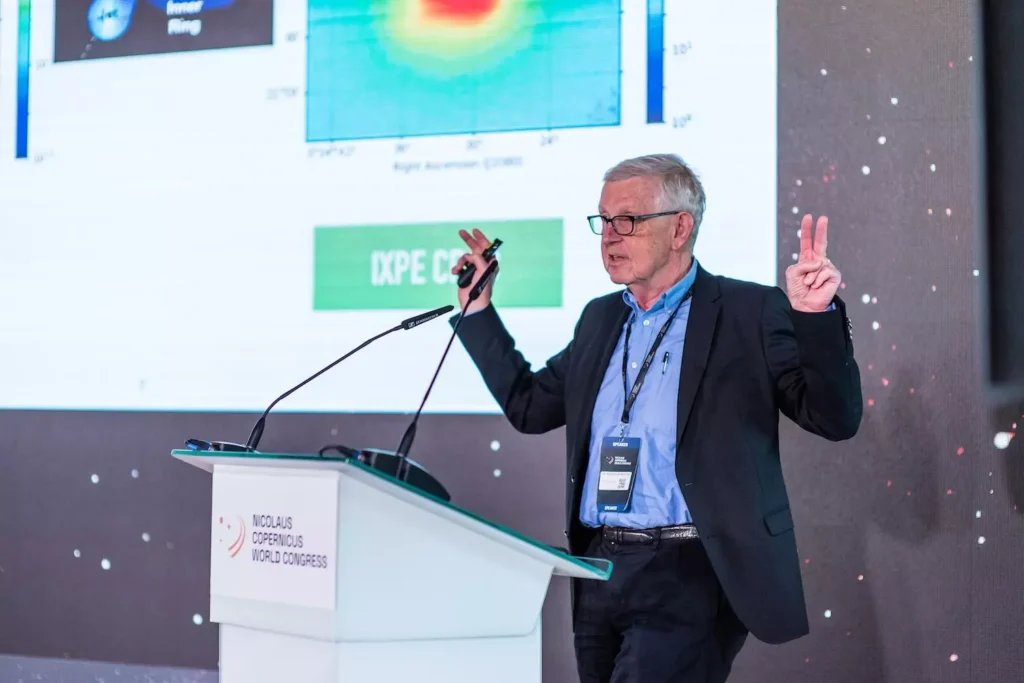
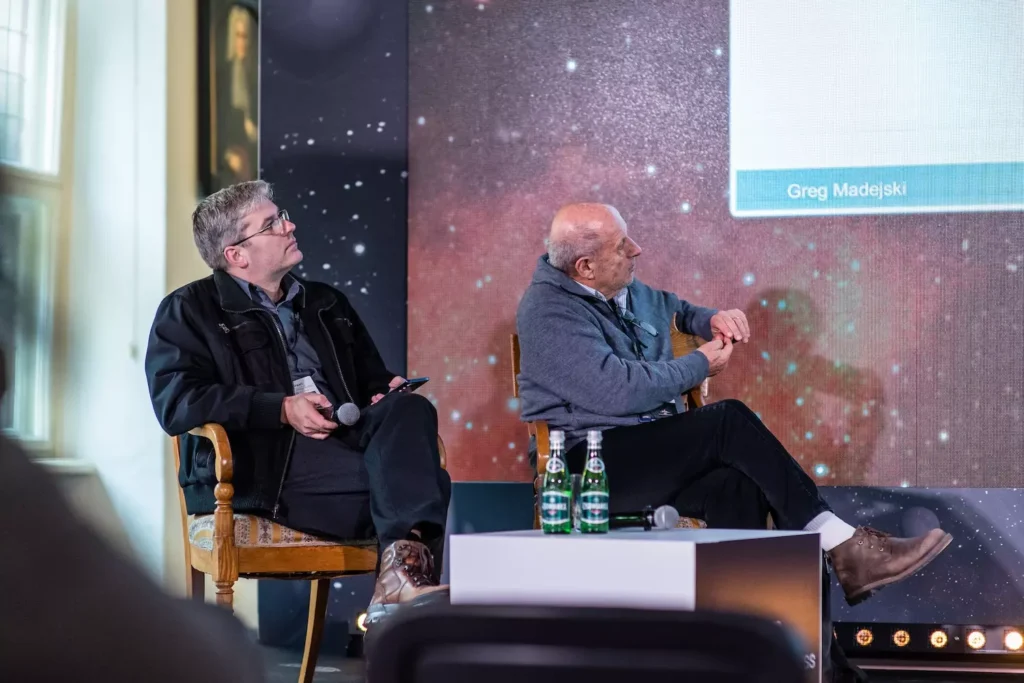
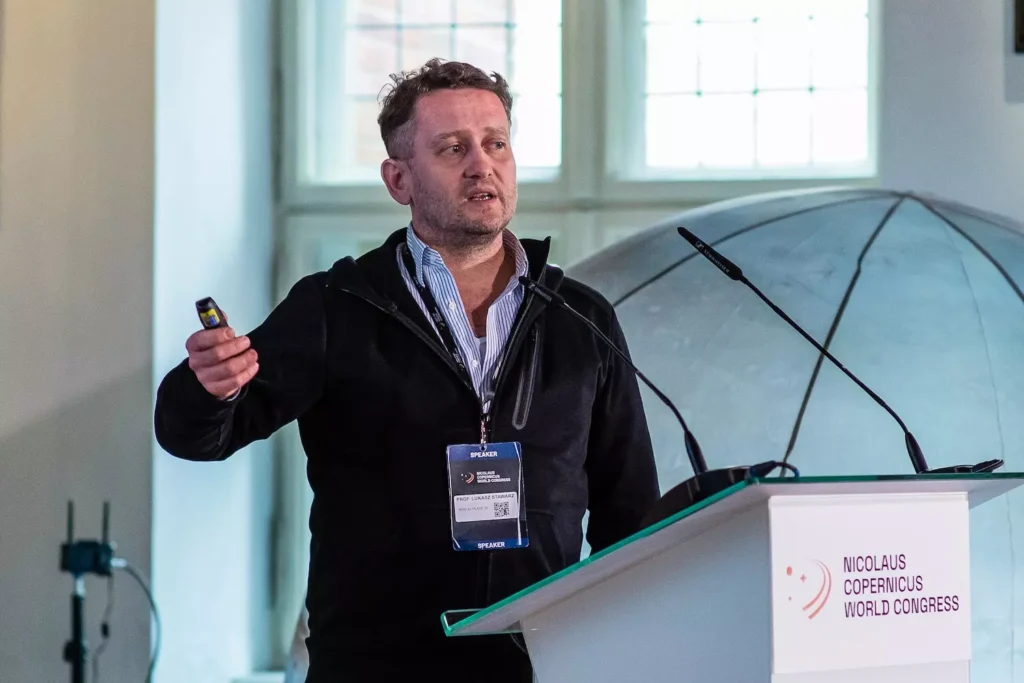
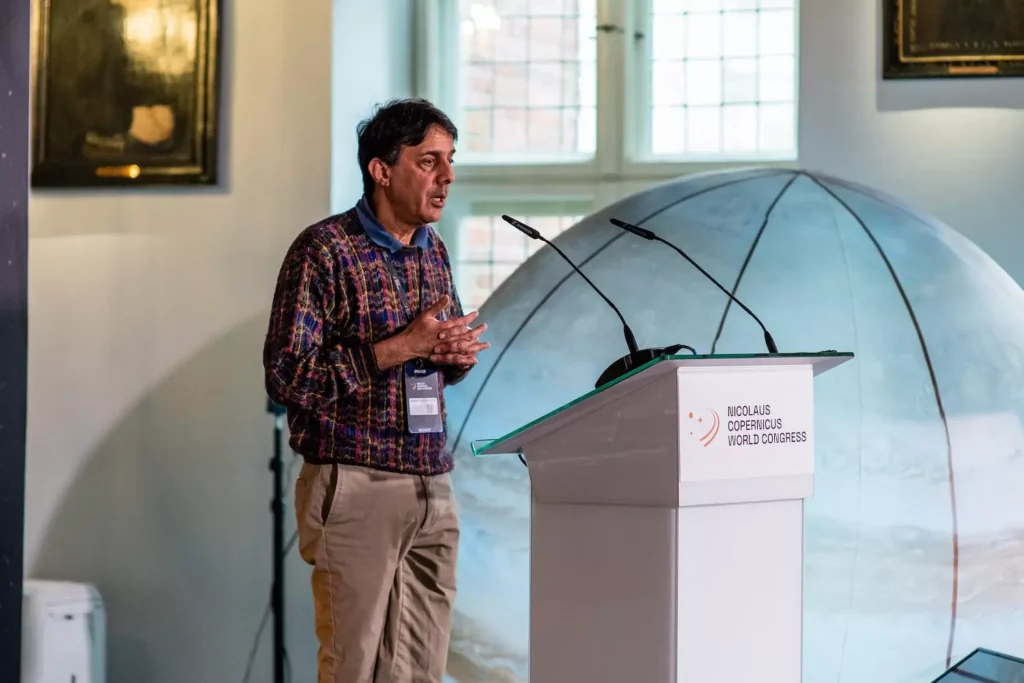
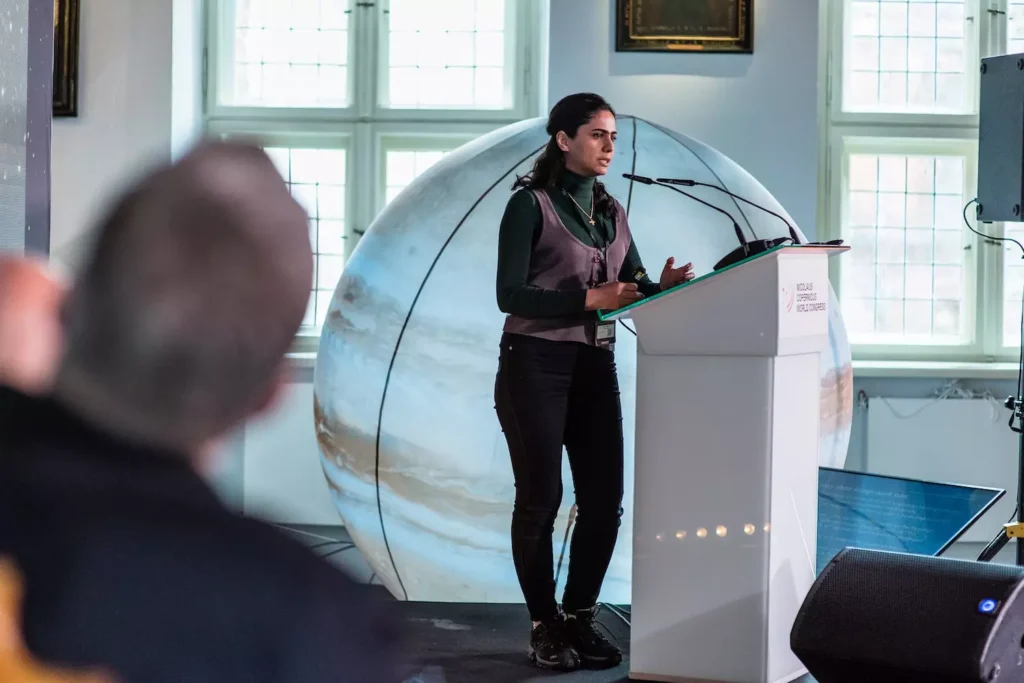
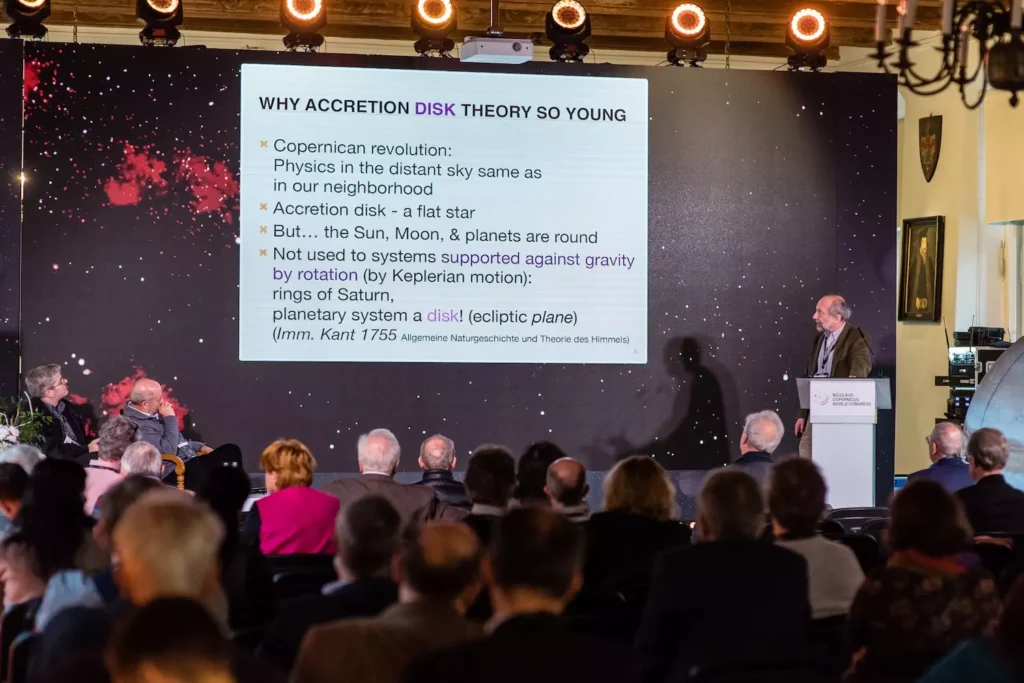
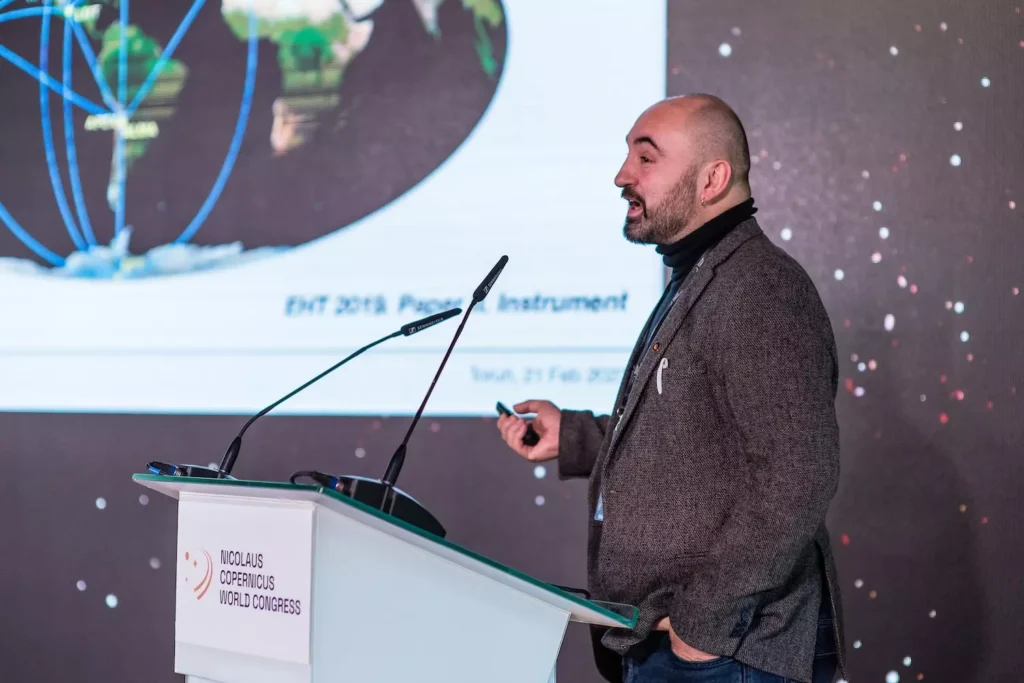
Session No. 5: “Multimessenger exploration of the Universe – searching for new clues”
Astronomy / Natural Sciences
Hosts:
Prof. Antoine Kouchner
Laboratoire AstroParticule et Cosmologie, Univ. Paris Cite
Prof. Lyman Page
Princeton University
Participants:
Prof. Joao Magueijo
Imperial College, London
Prof. Marc Kamionkowski
Johns Hopkins University
Prof. Peter Quinn
International Centre for Radio Astronomy Research, Perth
Prof. Cristiano Galbiati
Princeton University
Prof. Leszek Roszkowski
Dr. Andreas Haungs
Karlsruhe Institute of Technology, Astroparticle Physics European Consortium
Prof. Joseph Silk
Institut d’Astrophysique de Paris, Johns Hopkins University
Prof. J. Richard Bond
Canadian Institute for Theoretical Astrophysics in Toronto
